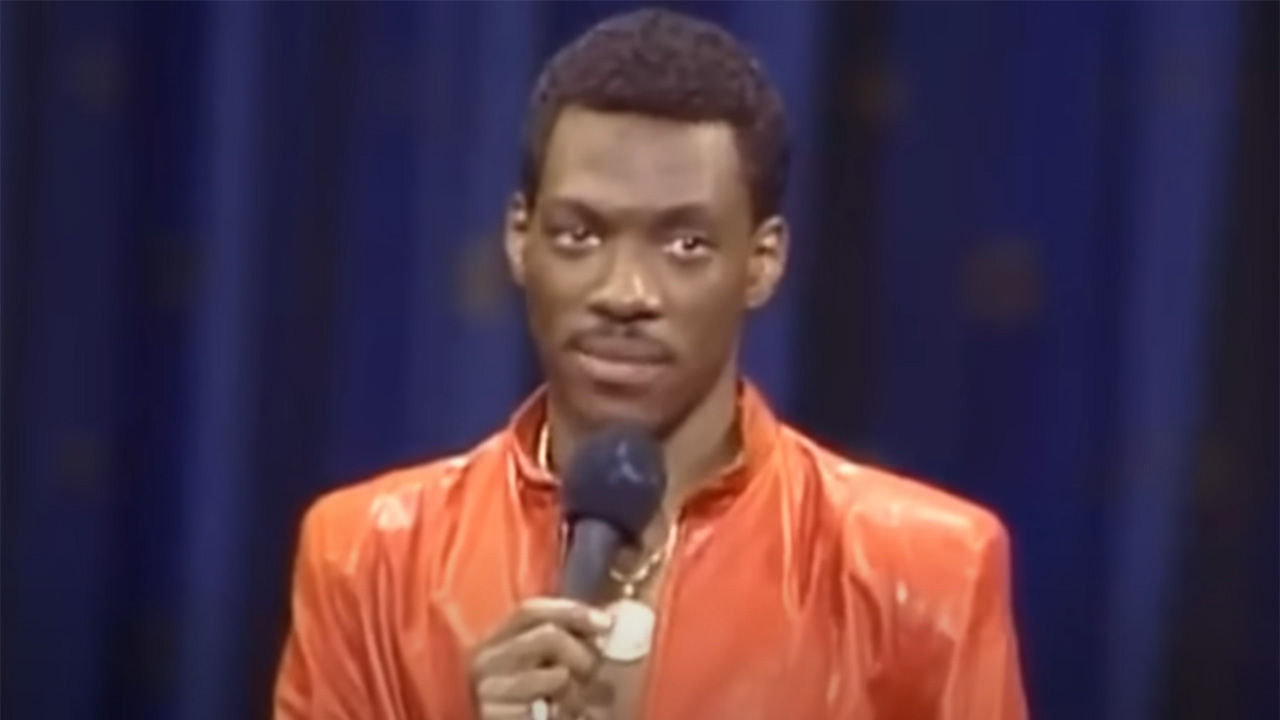The 100 Best Movies Of The 1990s
Grab your Fight Club soap-shaped popcorn tin.
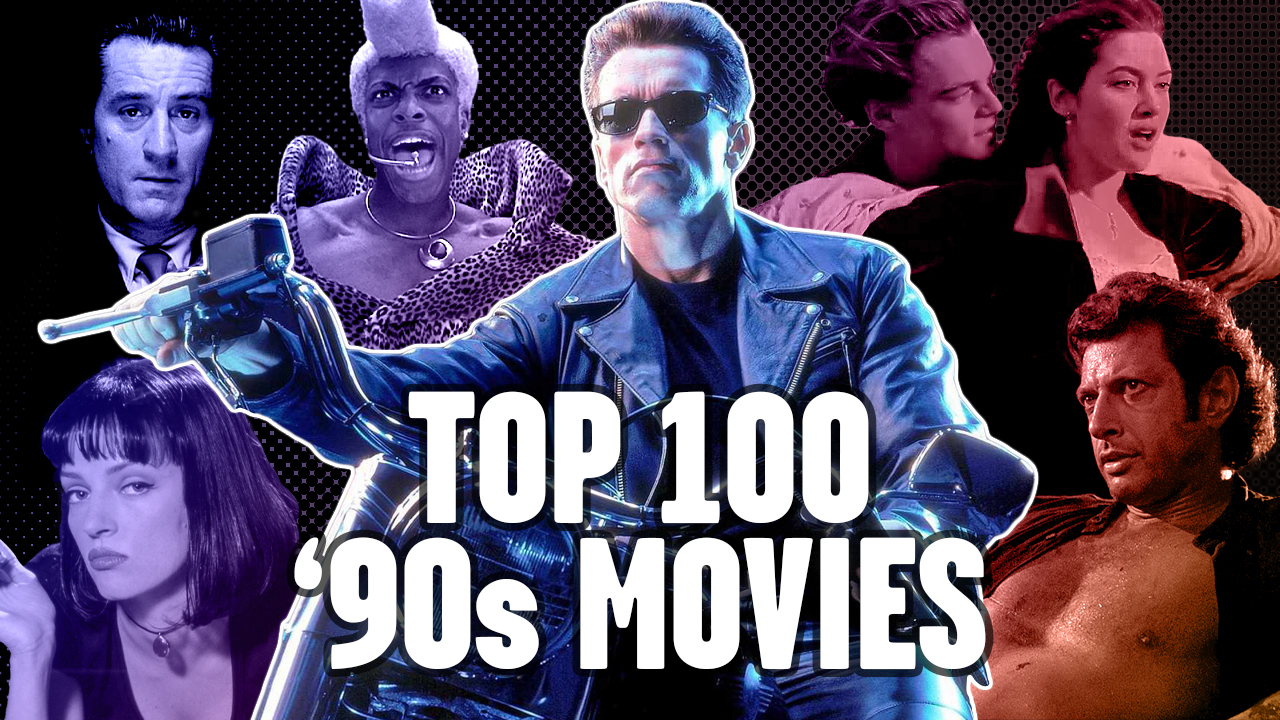
Before the best movies from the 2000s were allowed to run, the cinematic classics from the 1990s had to walk. (Well, except for Forrest Gump.) The 20th century closed out with a decade of cinematic spectacles as Hollywood embraced bigger budgets, the early days of CGI, and a new breed of superstars like Brad Pitt, Reese Witherspoon and Keanu Reeves.
From great ‘90s sci-fi movies like Jurassic Park to beloved ‘90s family films like Toy Story to chilling thrillers and hilarious comedies, just about any genre fan can feel represented by the era's best. Can the same be said for music, TV and literature? (I'll be too busy watching Speed again to research that.) So grab your long-dead Tamagotchis and scented markers and join us in celebrating the best of the best that the ‘90s had to offer.
- This list was compiled by the bulk of CinemaBlend's editors and writers, who gave 0-5 scores to an overall list of around 300 movies, with all of the final scores averaged out to determine the final ranking of 100.
How We Put This List Together
- Around 300 entries from a vast variety of 1990s films , which fit the bill of being culturally relevant and critically respected, were gathered using a combination of staff recommendations, movie guides and further research. The entries were tracked in a spreadsheet, where the majority of our staff then went through a multi-level voting process, with scores assigned based on personal opinions. A base number of viewers was also required for entries to make the cut, and lowest scores were then eliminated, in the style of scoring figure skating. The movies were then ordered from 1-100 based on the final average scores, with a variety of staff members writing the movie-celebrating entries.
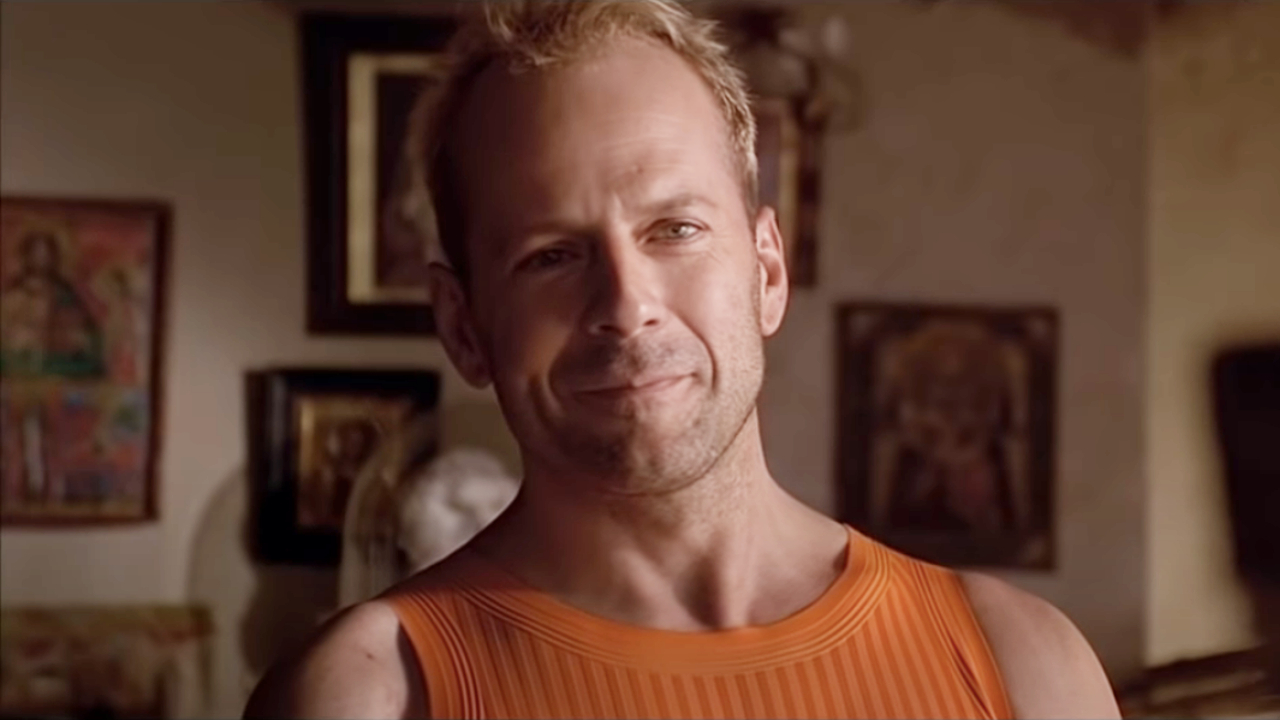
100. The Fifth Element (1997)
Luc Besson's The Fifth Element is a seriously wild movie. The sci-fi adventure has become a bona fide genre classic. Even though parts of the film were frustrating to make, those efforts clearly paid off, leaving us with one of the most fun space rides to date with an A-level cast including Milla Jovovich, Bruce Willis, Gary Oldman, and Chris Tucker in arguably his spaciest performance. Anyone who may have forgotten how fun and bonkers it is should grab a multi-pass and return immediately.
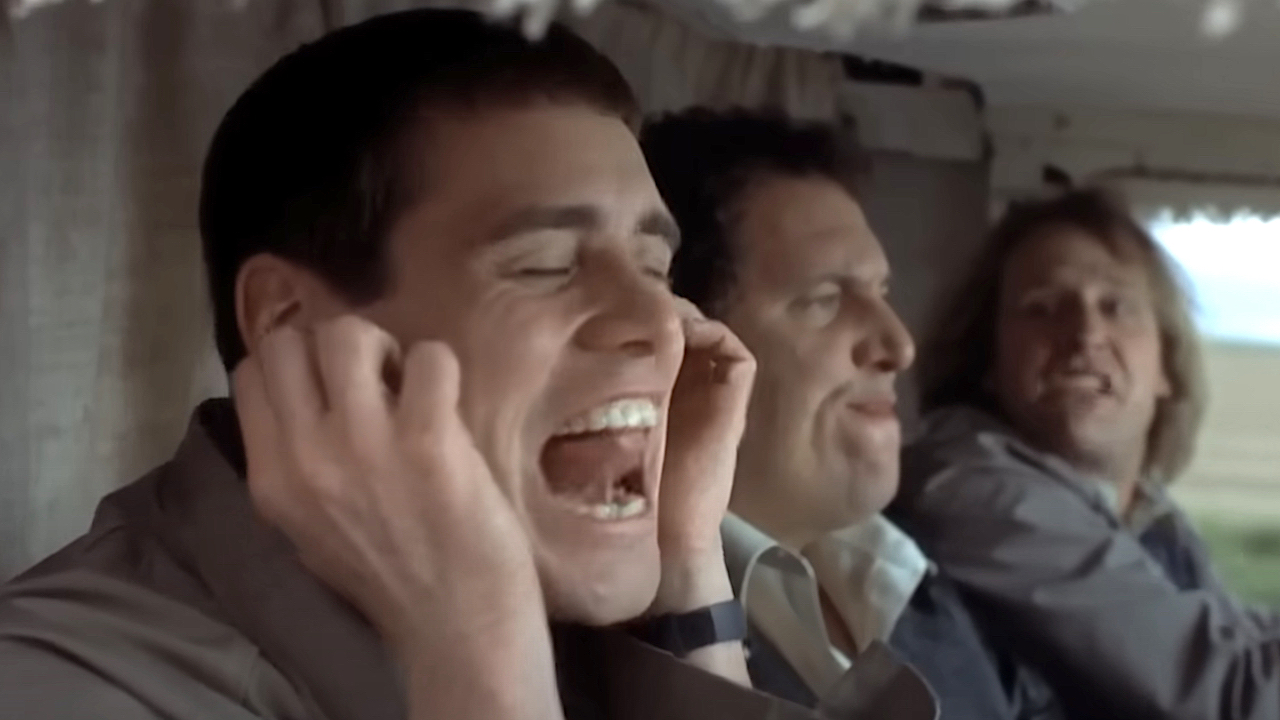
99. Dumb and Dumber (1994)
Jim Carrey may have enjoyed the most successful year for any comedian in 1994, and Dumb and Dumber is a major part of that unprecedented run. After the wildly successful Ace Ventura: Pet Detective and The Mask, the Saturday Night Live reject gave an iconic performance as Lloyd Christmas in the Farrelly Brothers’ breakout comedy alongside Jeff Daniels’ Harry Dunne. Everything about the movie simply works in spite of itself. The chemistry between its stars, the balance of over-the-top humor and more subtle jokes, and the most annoying sound in the world work together to create an unparalleled and game-changing experience.
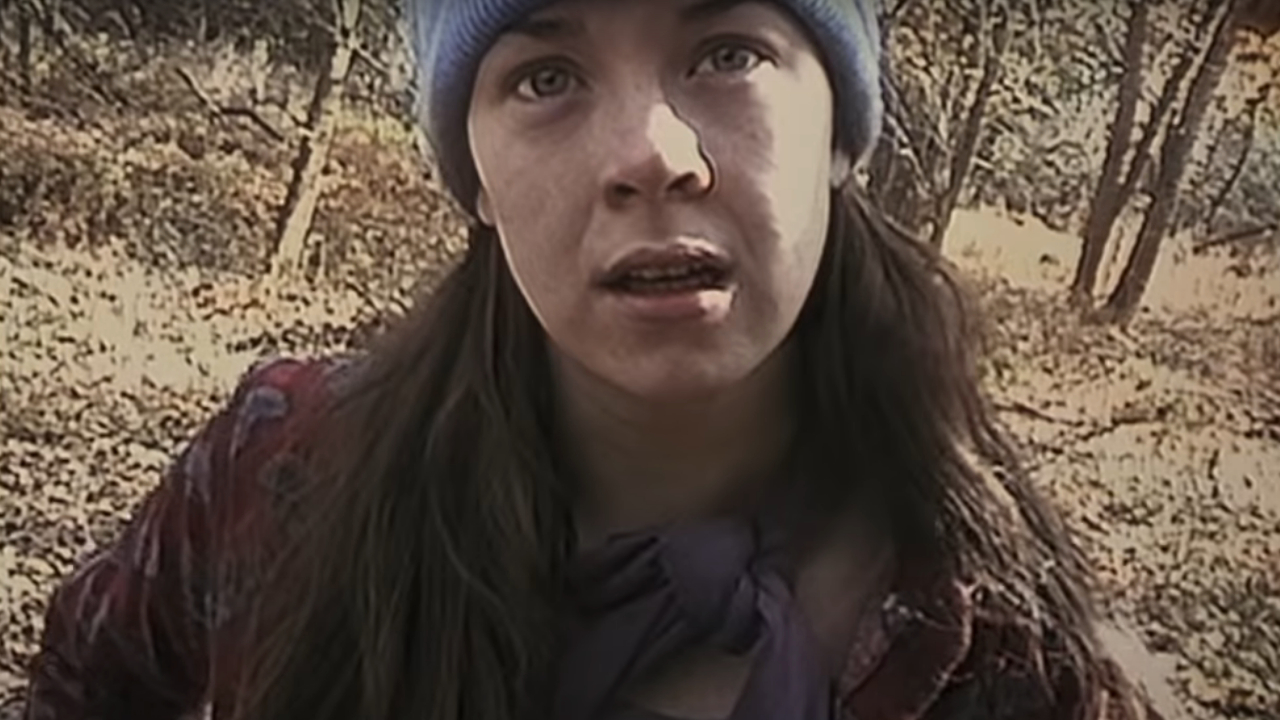
98. The Blair Witch Project (1999)
The Blair Witch Project may not have been the first to bring a cinéma vérité approach to the horror genre, but through extremely savvy marketing and lore-building, the no-budget flick became one of the most profitable films of all time, spawning a franchise of film sequels, comics, a video game, and beyond. And all without an actual “witch” to tease in the trailers. One of the ‘90s most polarizing efforts, BWP’s “something from nothing” approach makes it as influential as anything else from the decade.
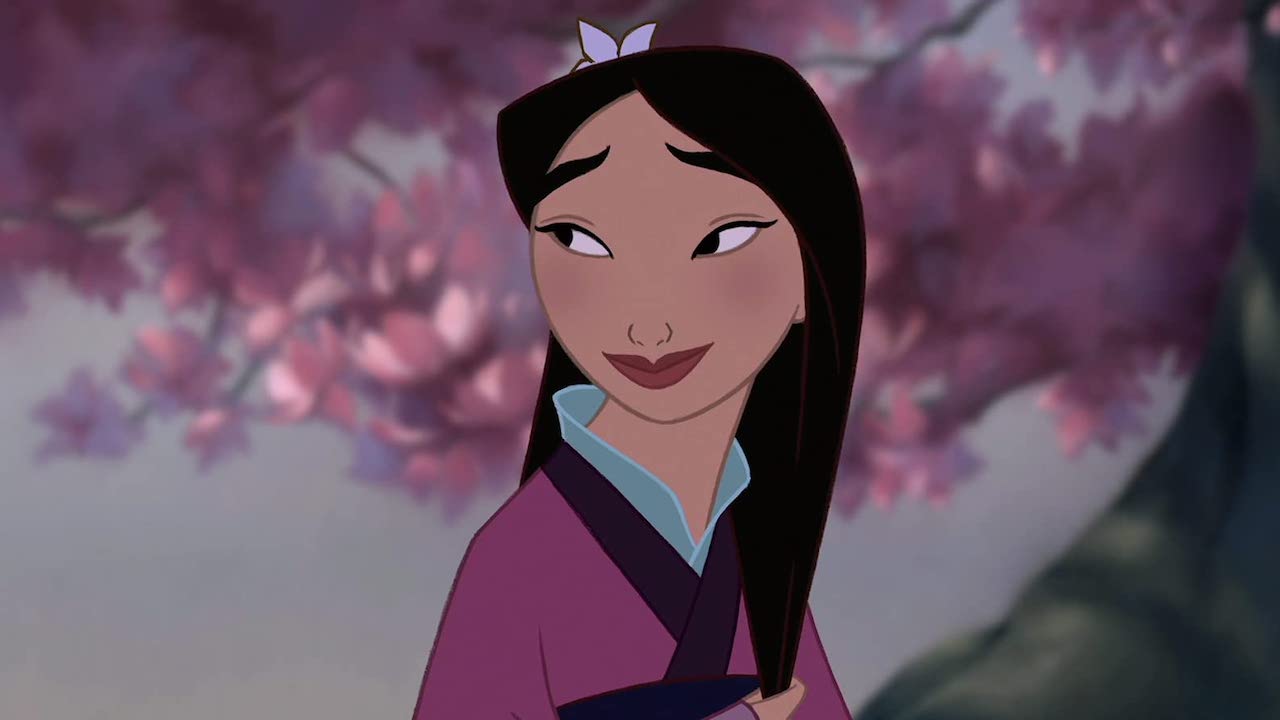
97. Mulan (1998)
What can be said about Mulan that has yet to be talked about? Released at the tail end of the famed Disney Renaissance through the ‘90s, Mulan was the animated film that defined a generation of young women, inspiring many to always fight for their honor and never back down, even when everyone in the world says otherwise. The music is excellent as the voice-acting takes you to another world, and the animation easily pulls viewers in, but it’s the themes that stay with audiences forever.
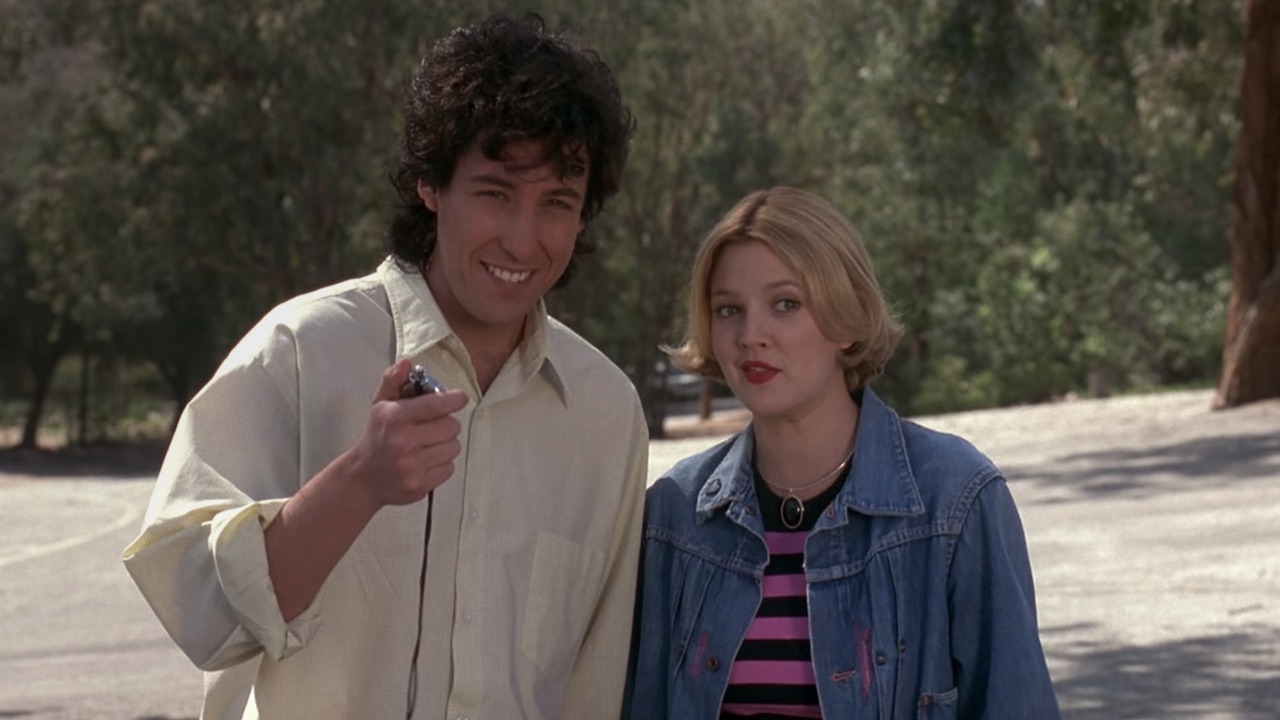
96. The Wedding Singer (1998)
More than just a wonderful romantic comedy, The Wedding Singer is a standout title in Adam Sandler’s early career. In the 1990s, Sandler was known for his goofy characters on Saturday Night Live and in goofy movies like Billy Madison, Happy Gilmore, and Airheads, but The Wedding Singer was an opportunity for him to show he could do work with a bit more gravity. There’s an argument to be made it paved the way for him excelling in films like Punch Drunk Love and Uncut Gems. And the power of Sandler + Drew Barrymore can never be denied.
Your Daily Blend of Entertainment News
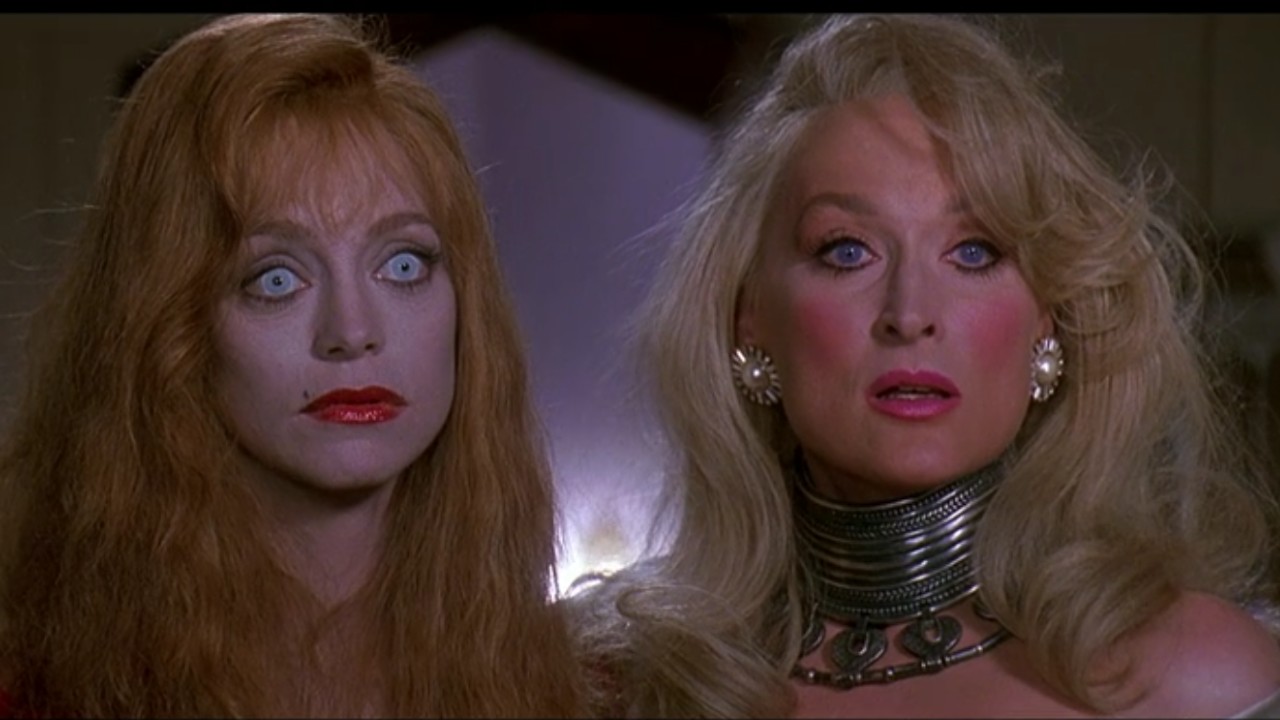
95. Death Becomes Her (1992)
There’s a scene in Death Becomes Her that pretty much sums up the Robert Zemeckis film’s greatness – as Goldie Hawn’s Helen sits and leans back, the handle of a shovel slips perfectly through the hole in her torso. Meanwhile, Meryl Streep’s Madeline gracefully takes a seat while clutching her hair atop her head, in order to keep it from flopping forward against her broken neck. It’s dark, it’s twisted, it’s hilarious, and for 1992, the special effects are impressive. Bruce Willis’ Ernest being dragged along for the ride caps off the excellent trio of characters, in this eternally underrated comedy.
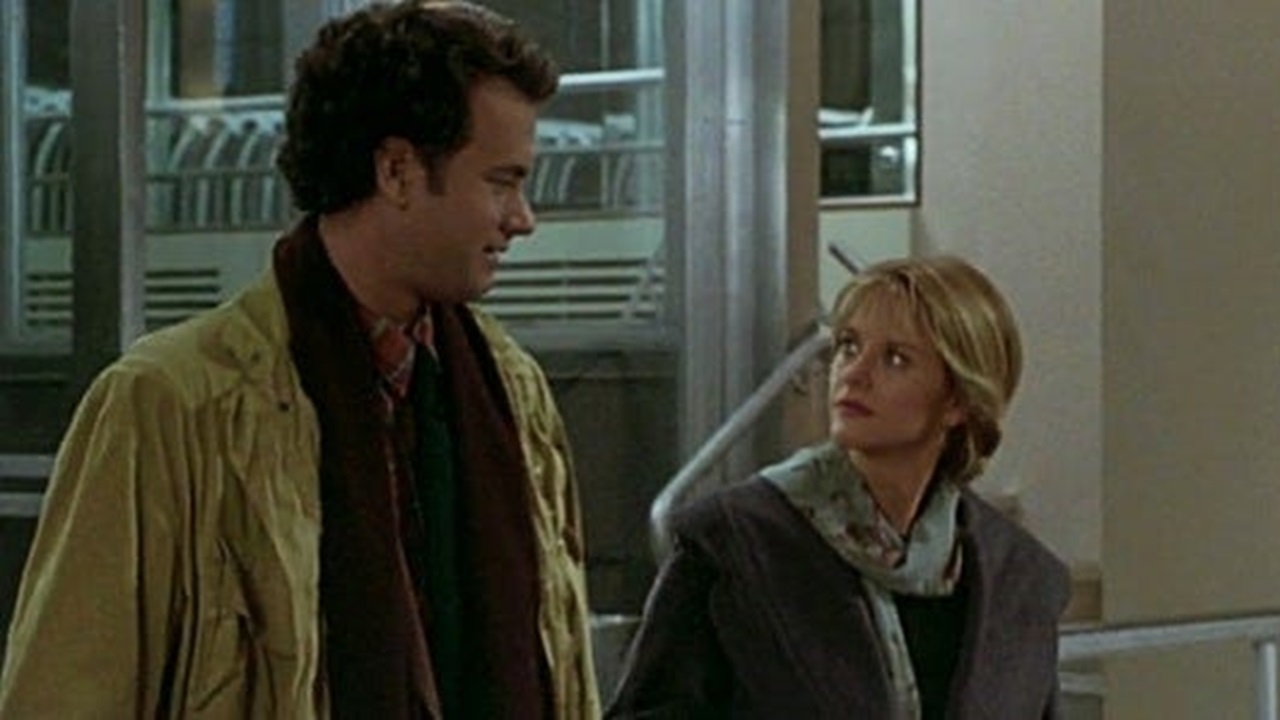
94. Sleepless in Seattle (1993)
Four years after already penning one of the all-time great romantic comedies (Rob Reiner’s When Harry Met Sally), the late Nora Ephron directed a landmark rom-com of her own with Sleepless in Seattle. The second of three movies co-starring Tom Hanks and Meg Ryan, this genre staple features an incredible story about a woman who goes to great lengths to be with the man she loves, a man whom she’s never met and only knows from a call-in radio show. It’s charming, witty, earnest, and the best kind of enchanted realism.
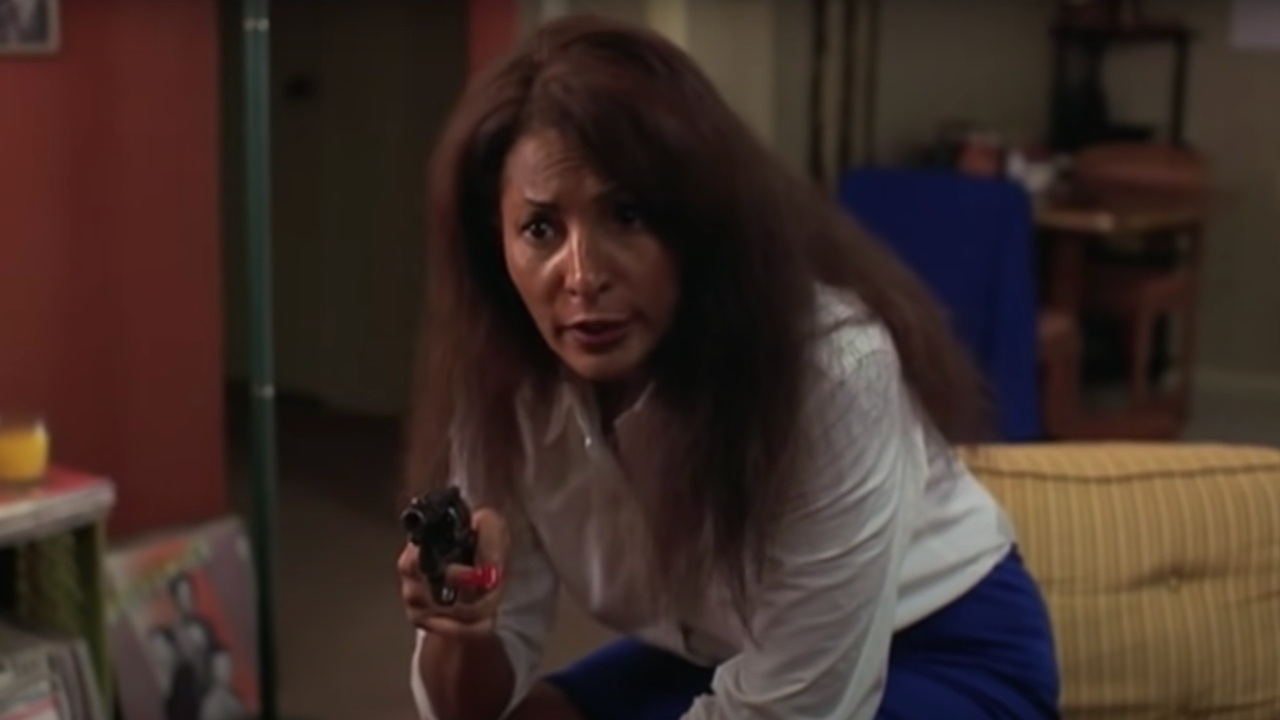
93. Jackie Brown (1997)
Quentin Tarantino’s third directorial effort, Jackie Brown kicks off with Pam Grier’s money-smuggling flight attendant trekking to work to the tune of Bobby Womack’s “Across 110th Street,” helping it stand apart from the testosterone-enhanced violence of his first two features. And while the star-studded flick does dip into the filmmaker’s favored crime genre tropes, Jackie Brown hinges more on character study than sheer plot machination, and provides career-high performances from Bridget Fonda, Robert Forster, and Grier herself. And in that way, it’s arguably the most empathy-worthy project from Tarantino’s career.
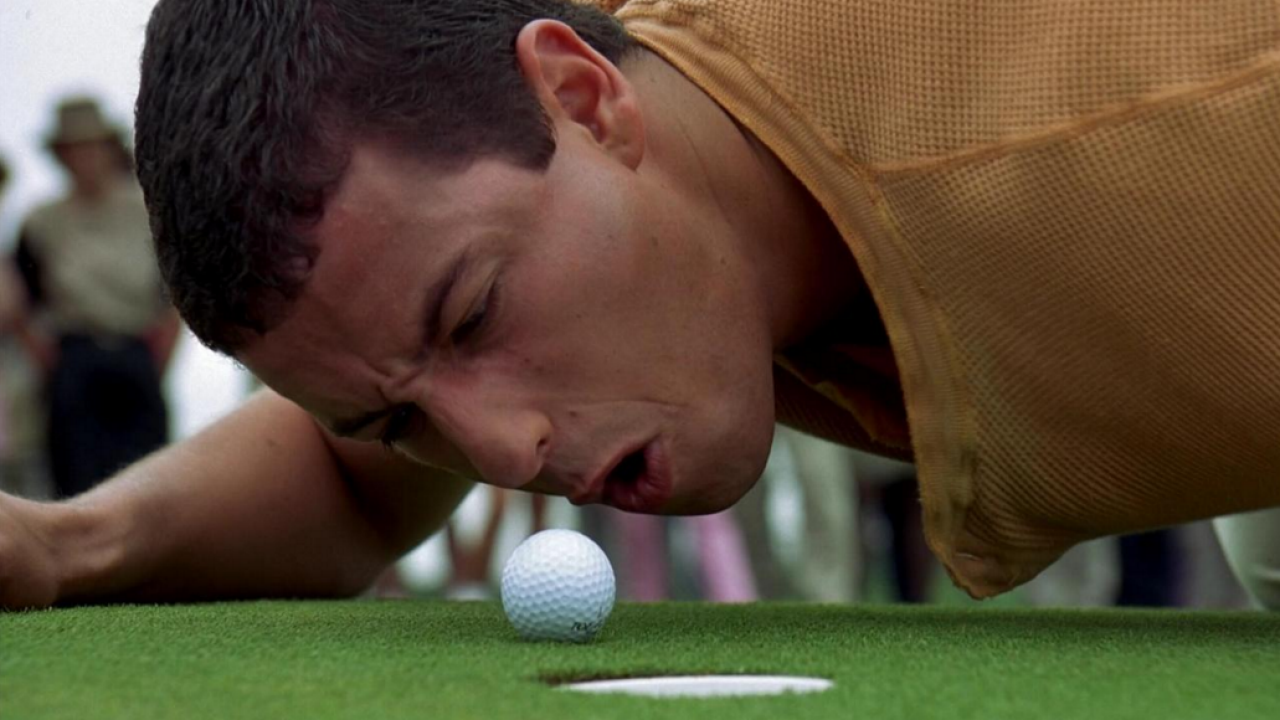
92. Happy Gilmore (1996)
Depending on who you talk to, Adam Sandler’s '90s comedies are either near the peak of the genre or near the pits of low-brow comedy. We know where Shooter McGavin's opinions would lie, but we lean toward raising our clubs and pucks to Sandler’s story about a failed hockey player taking the world of professional golf by storm, all for his grandma. I’ll always laugh at Happy Gilmore’s titular hero going toe-to-toe with the late game show host Bob Barker, and the wild story of how he got involved is as great as the on-screen fisticuffs.
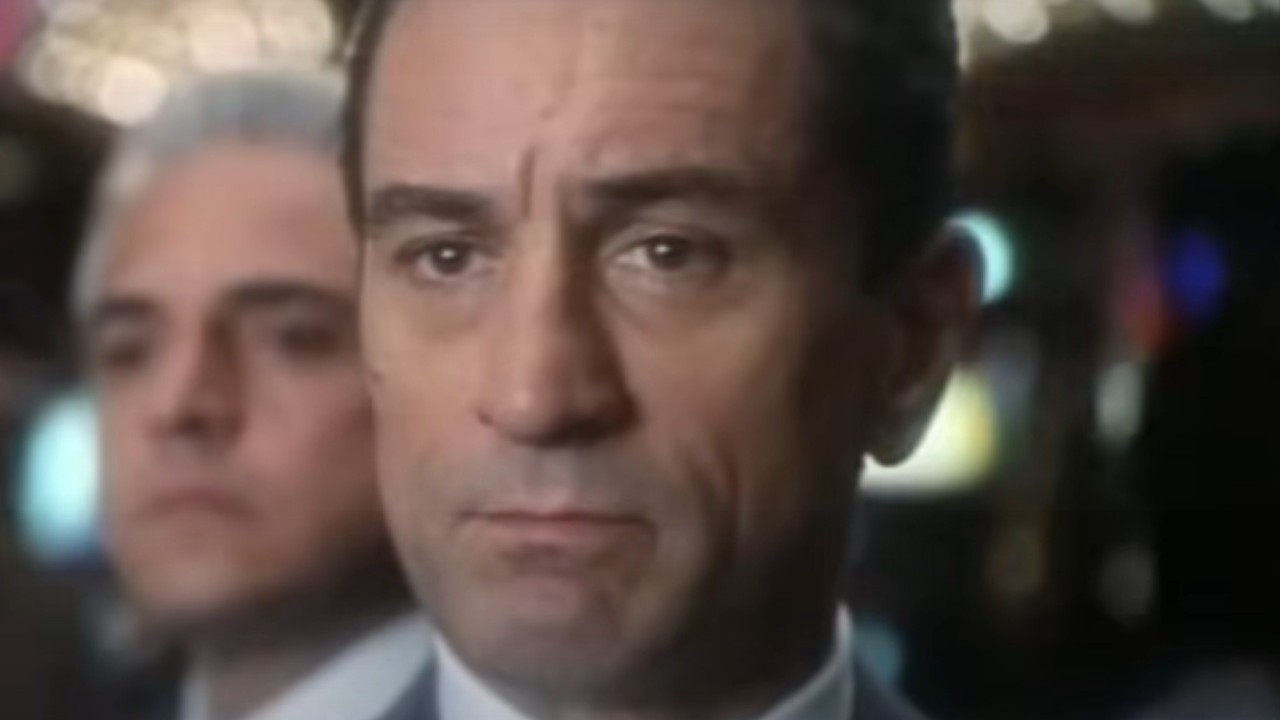
91. Casino (1995)
It’s hard to pick a favorite when talking about the best mob characters that Robert De Niro has played, though I’d argue Sam "Ace" Rothstein is as good as it gets. Unlike many other gangster movies tethered to dark alleys, Casino zeroes in on the mafia’s stranglehold of the glitzy and glamorous Las Vegas in the 1970s. It’s further bolstered by excellent directing from master craftsman Martin Scorsese and a supporting cast with legends like Sharon Stone and Joe Pesci. A fantastic movie that doesn't shy away from deeply upsetting moments.
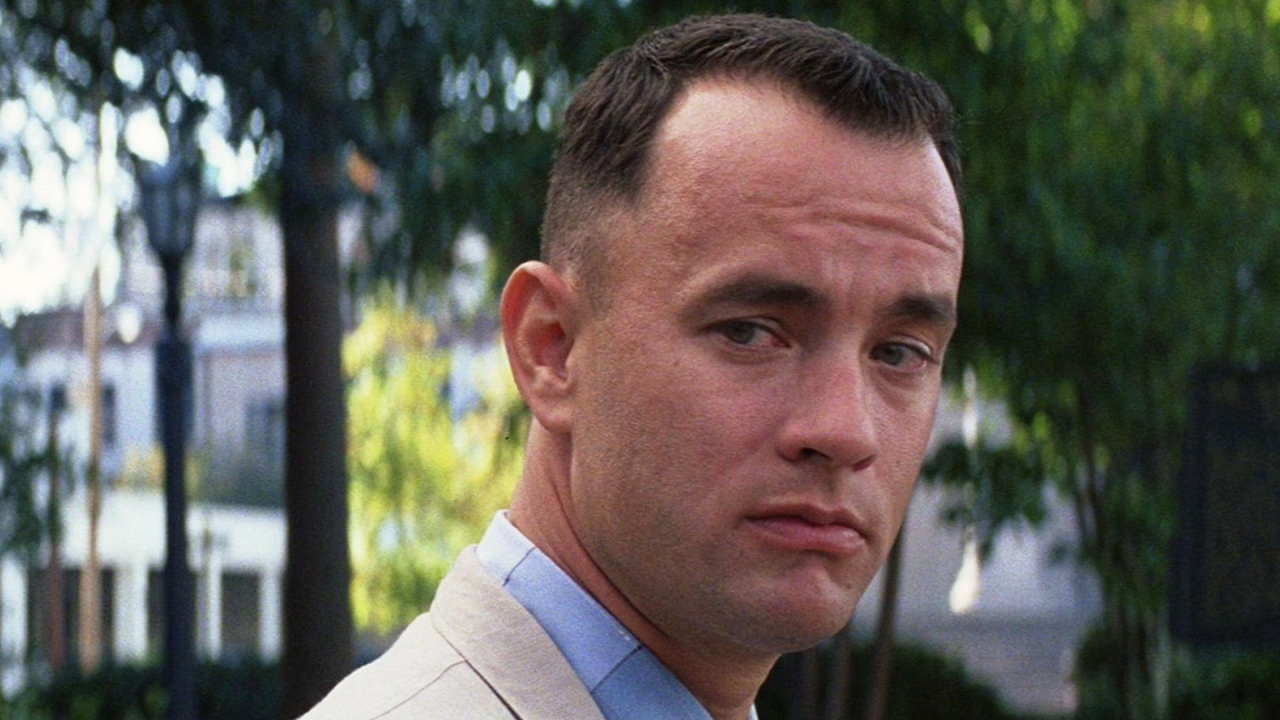
90. Forrest Gump (1994)
Despite all the cringey and parody-fueling moments in Robert Zemeckis' Forrest Gump --- never forget the Weird Al classic "Gump" --- Tom Hanks' history-making and country-crossing simpleton remains one of the 1990s most enduring movie heroes. With a stacked cast of pros, from Sally Field to Gary Sinise, Forrest Gump's popularity was evident from both its boffo box office, its huge success at the Oscars and beyond, and just how many quotes from this movie have permanently nestled themselves into pop culture.
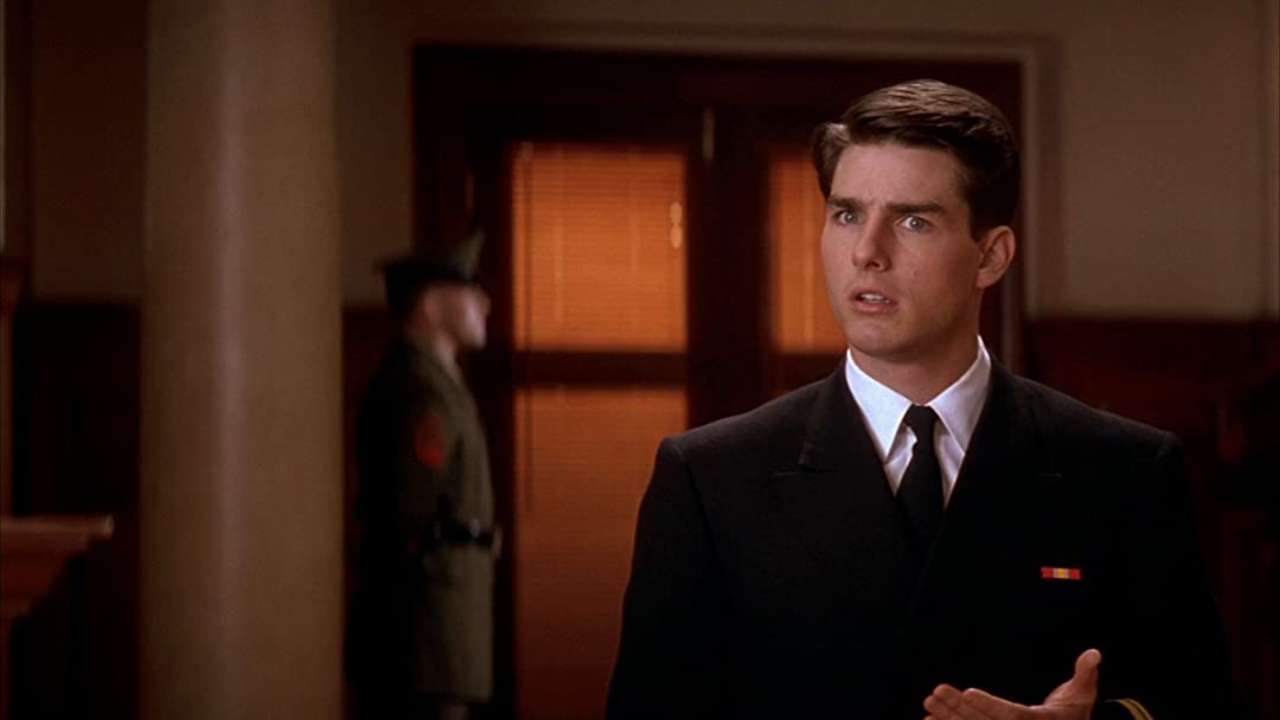
89. A Few Good Men (1992)
Courtrooms are a natural fit for high drama, and A Few Good Men has some of the best courtroom scenes in cinema history. Aaron Sorkin’s first screenplay, based on his own stage play, is missing many of the elements that would later define his writing, but that’s not a bad thing here. The battle between Tom Cruise and Jack Nicholson has become iconic, but even outside of that near-perfect scene, A Few Good Men is full of incredible characters, smart dialogue, and memorable moments. It’s perhaps one of Cruise’s most criminally overlooked performances.
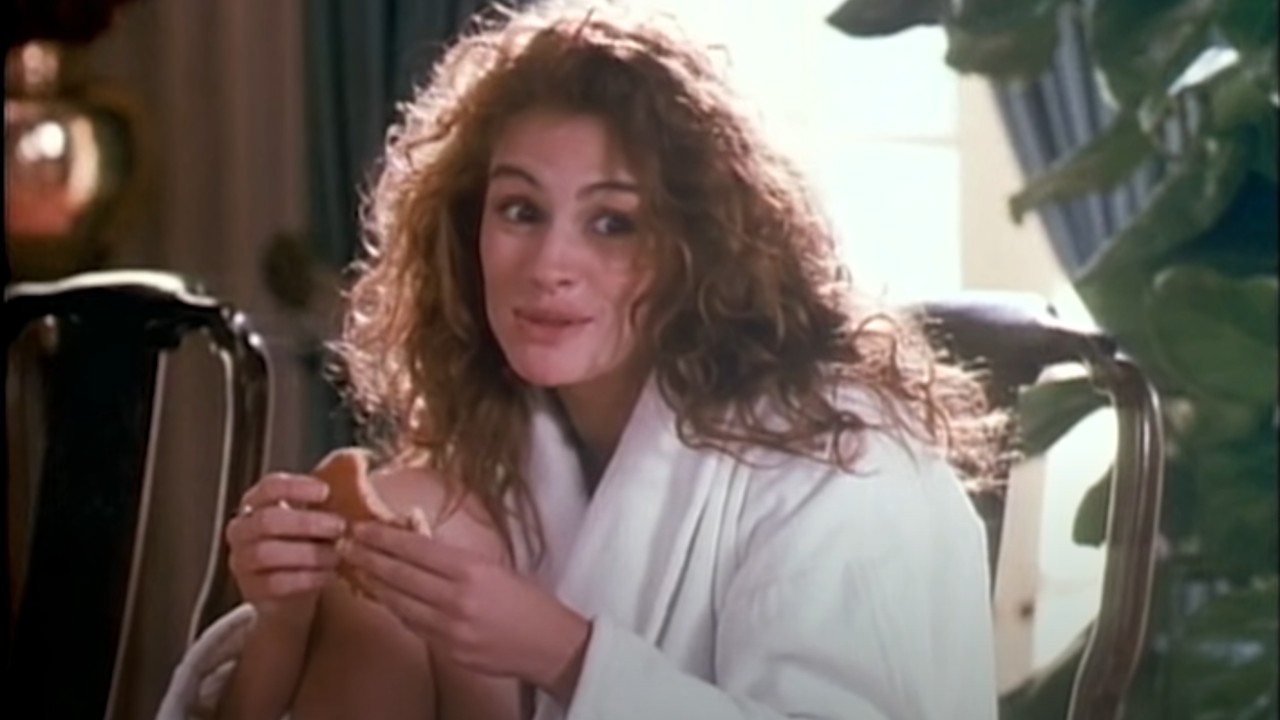
88. Pretty Woman (1990)
Pretty Woman is definitely one of Julia Roberts's best movies in a wildly impressive career, but it's also one of the best ‘90s rom-coms. The film's sleazy-on-paper tale, which follows a rich businessman hiring a Hollywood escort to be his date to several social events, is a charmer thanks to its stellar leads. The film vaulted Roberts into an even bigger star, while making romantics everywhere swoon at the idea of a wealthy millionaire like Richard Gere coming out of nowhere to sweep them off their feet – if only, amirite?
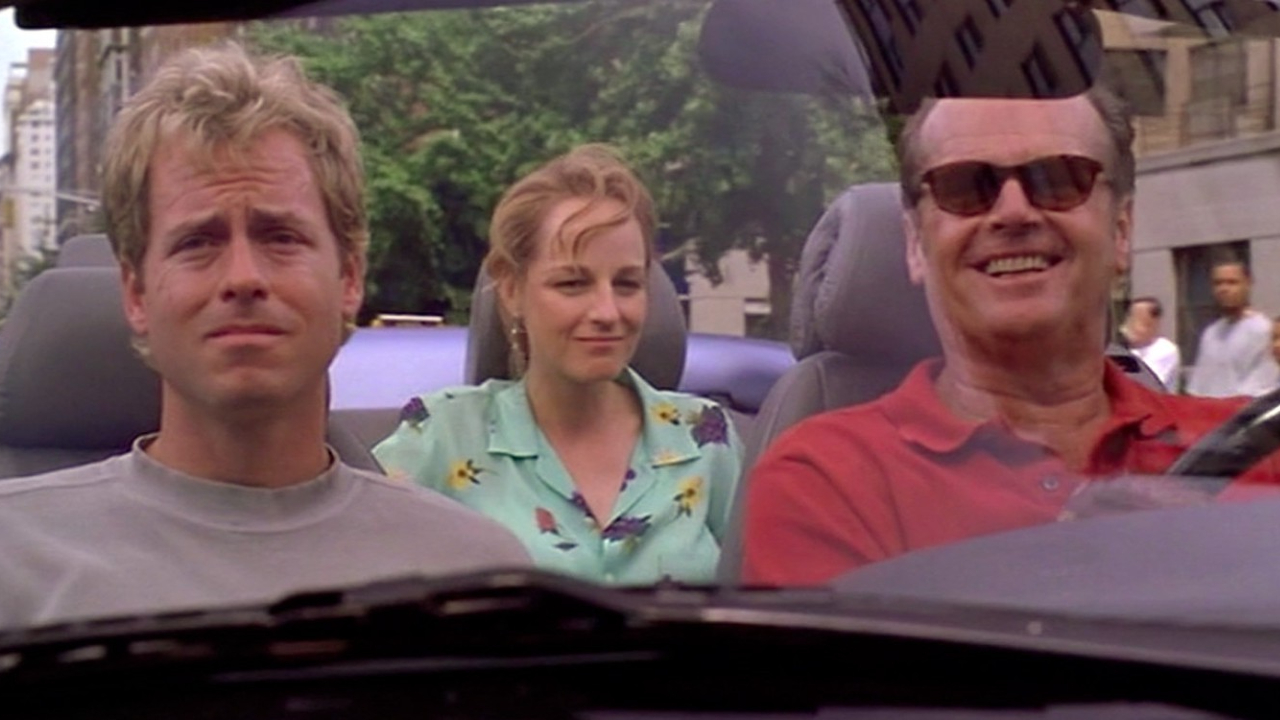
87. As Good As It Gets (1997)
I miss Jack Nicholson. I miss James L. Brooks. I miss emotional, character-driven comedies that excelled thanks to outstanding performances from A-list talent. Nicholson, Helen Hunt, and Greg Kinnear weave magic in this sweet story about strangers forming friendships over low-stakes but relatable dramas. Studios craving IP don’t back movies like this anymore. But when they did, and when actors could sink their teeth into the material, this one was as good as they got.
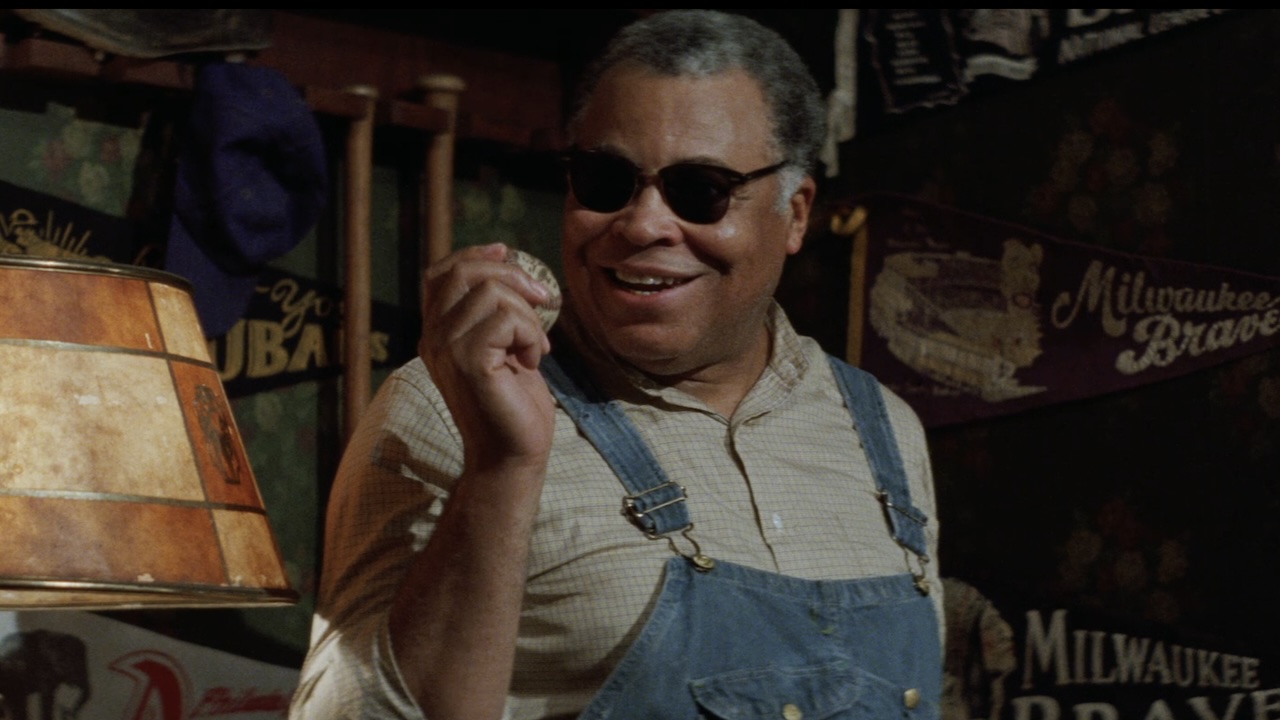
86. The Sandlot (1993)
There are ‘90s sports movies that are kid-pleasers, and then there is The Sandlot, the 1993 coming-of-age story about a ragtag group of kids living what could be the best summer of their lives. There's so much to love about this small-stakes baseball tale, from its timelessness to its life lessons to incredible characters like Scotty Smalls, Benny Rodriguez, Ham Porter, and so many others, there’s just so much to love about this classic sports film. To quote the Great Bambino, “Heroes get remembered, but legends never die.” In this case, we're calling our shot: The Sandlot is one of those legends.
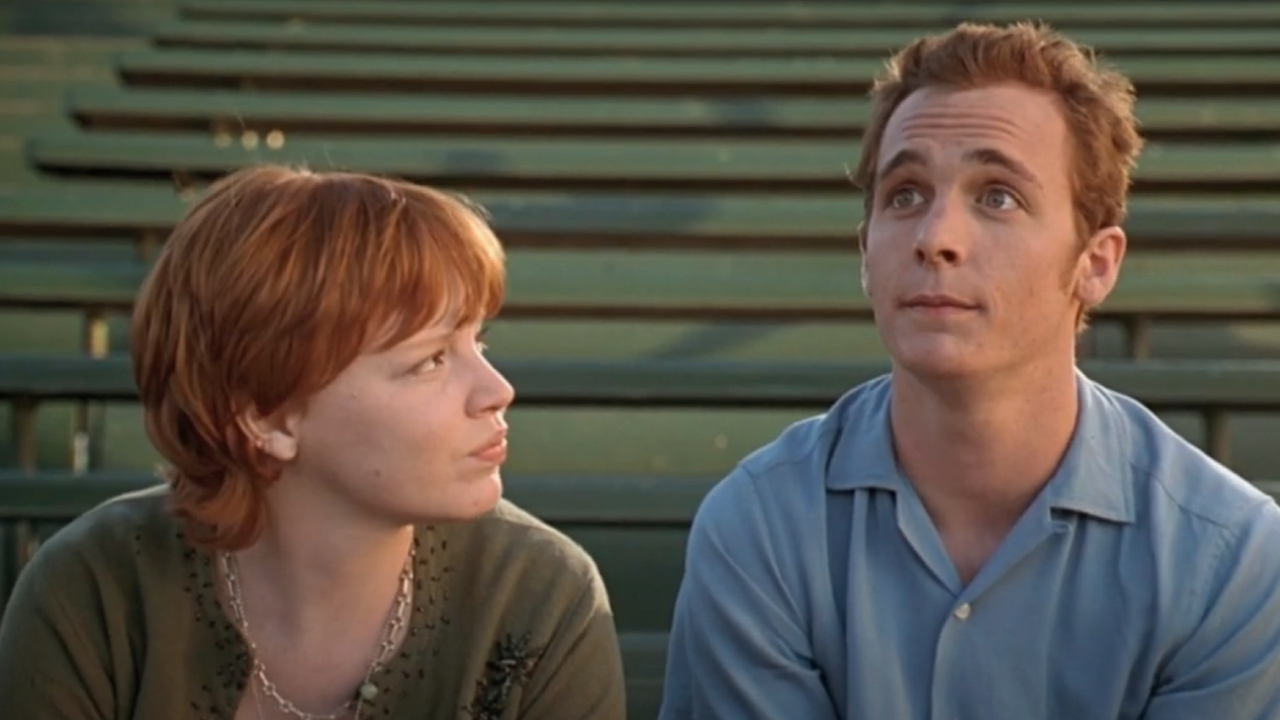
85. Can't Hardly Wait (1998)
Can’t Hardly Wait combines an "everybody's recognizable" ensemble cast with the classic house party setting and a killer soundtrack to give us one of the most epic teen movies of all time. The plot centers around Ethan Embry’s Preston, who needs to profess his love for Amanda (Jennifer Love Hewitt) at the graduation party, now that she is finally single after being dumped by Mike (Peter Facinelli). But plots are for dorks, and the 1998 comedy epitomizes the teen angst of the late 20th century in an honest and hilarious way.
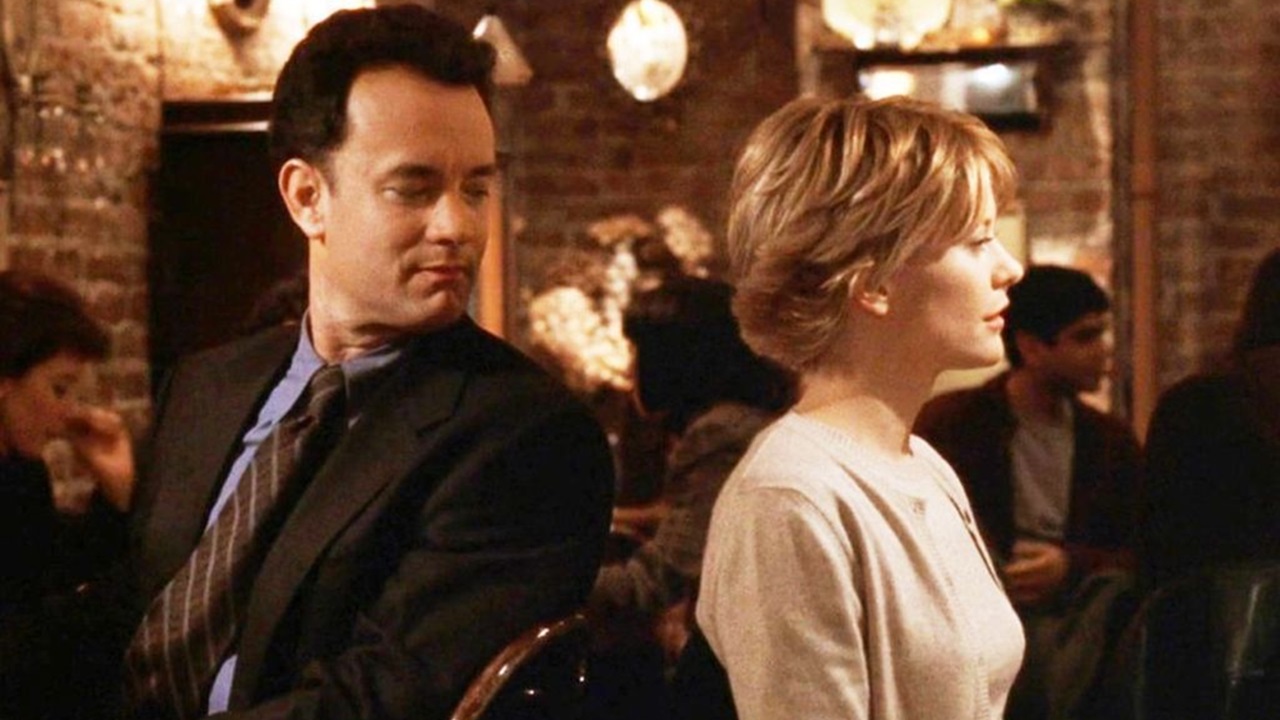
84. You've Got Mail (1998)
You’ve Got Mail arrived in 1998 when just about everybody would have recognized the title as the AOL greeting message. This was the third movie to pair Tom Hanks with Meg Ryan, with writer/director Nora Ephron bringing her magic romantic comedy touch to the story of two business rivals who unwittingly fall in love via online chat. Hanks and Ryan channel the same chemistry that was a hit years earlier with Sleepless in Seattle, and it doesn't require having lived through the AOL era to appreciate the level of classic rom-com energy that makes this a winner.
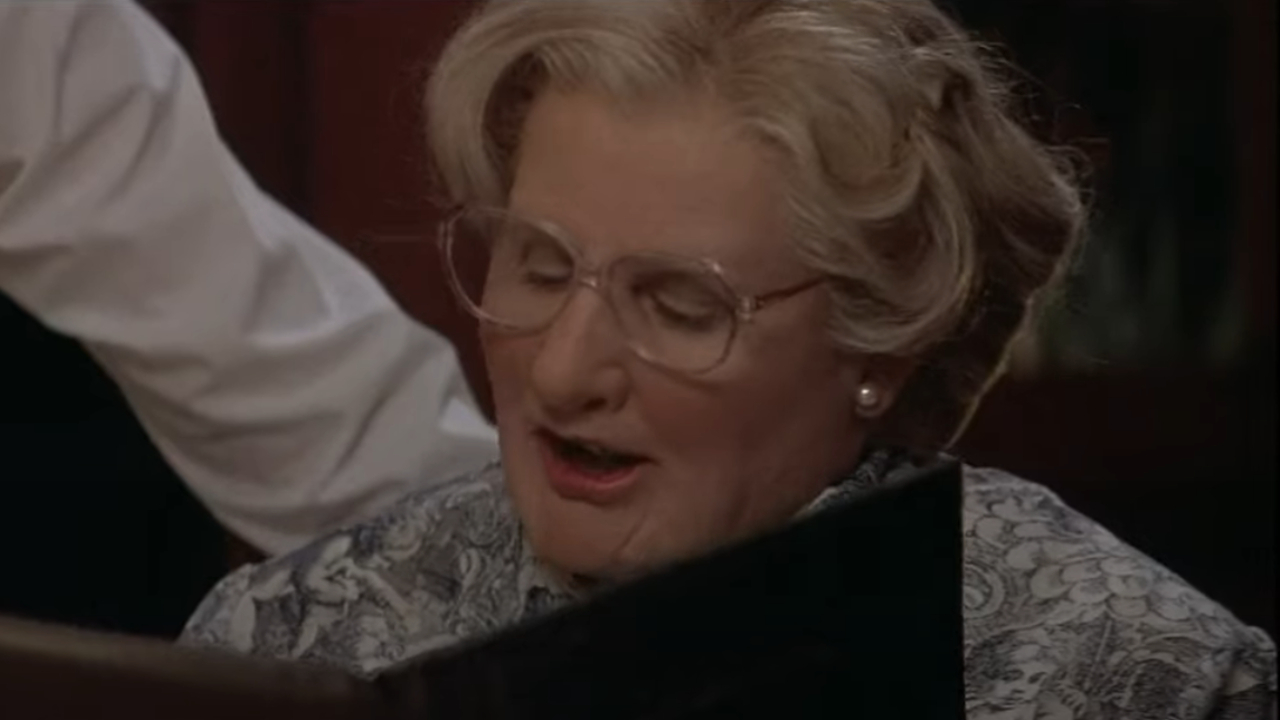
83. Mrs. Doubtfire (1993)
In a decade filled with all-time great Robin Williams movies, there’s something particularly tender and very much unforgettable about Chris Columbus’ Ms. Doubtfire. Underpinned by the heartbreak of having less time than ever with his three kids as his divorce looms, voiceover actor Daniel Hillard hatches a plan to form a new character in an elderly housekeeper named Mrs. Doubtfire to get more time with them. Not only does his new secret identity make for some hilarious moments that very much play to Williams’ strengths as a comedy actor, Mrs. Doubtfire is also a touching film that takes a grounded approach to parent separation.
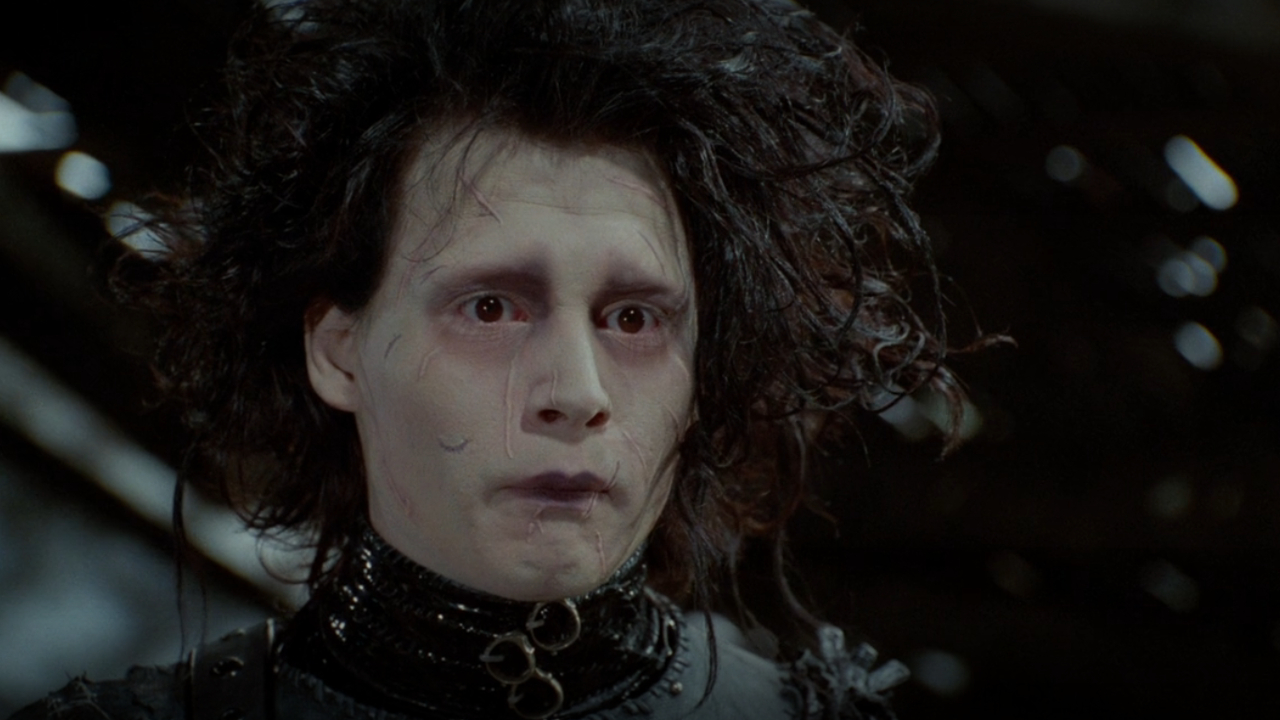
82. Edward Scissorhands (1990)
The most Tim Burton movie ever to Tim Burton, Edward Scissorhands is, on one bladed hand, a weirdly heartwarming horror movie, but on the other bladed hand, an endlessly frightening family film. The suburban Frankenstein homage is bolstered by stellar performances from Johnny Depp, Winona Ryder and Dianne Weist, with each bringing grounded authenticity to this wildly fantastical fable. (Yes, even the pity-provoking Depp.) The cherries on top of this macabre cake are Vincent Price, in his final major film role, and Burton-familiar composer Danny Elfman. And the eye-popping hedge art and ice sculptures don’t hurt.
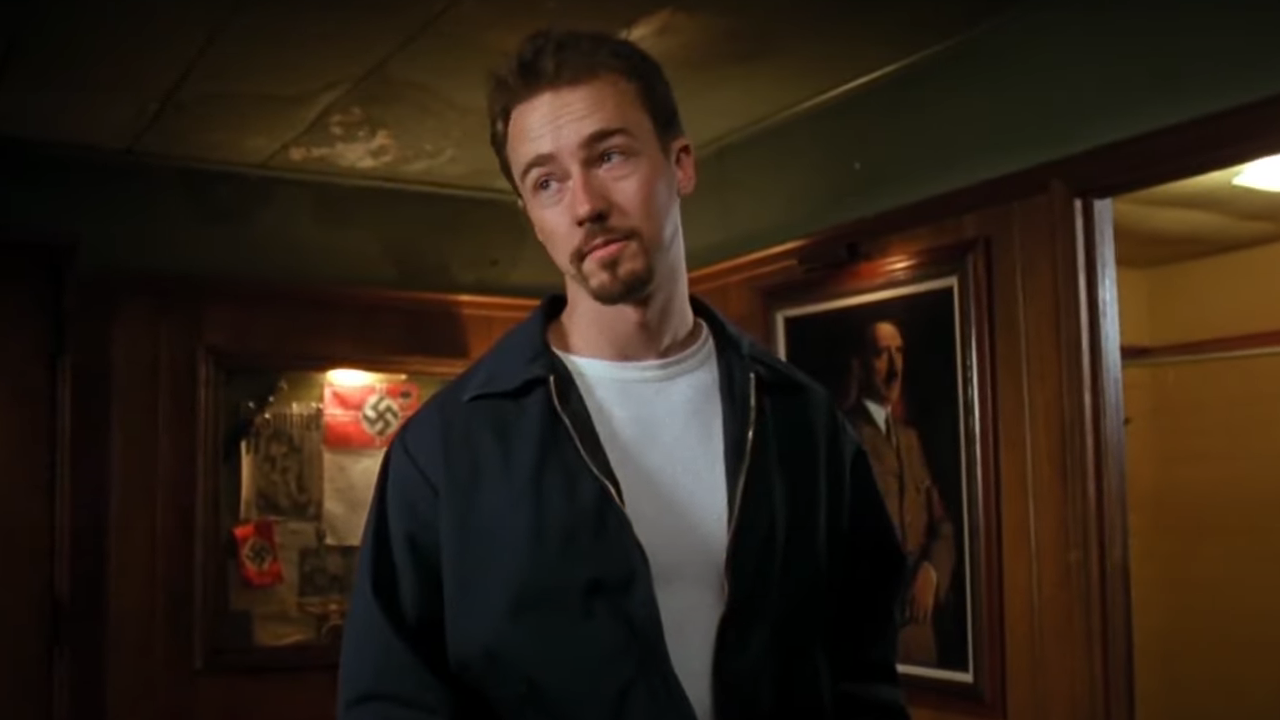
81. American History X (1998)
Long before debates about The Snyder Cut, star Edward Norton, director Tony Kaye, and New Line Cinema engaged in a very loud and sometimes public squabble over American History X. The final cut we got, which Kaye publicly disavowed, is a brutal, almost two-hour look at modern white supremacy that’s shot partially in black and white. It netted Norton an Oscar nomination and has individual moments as strong as anything on this list, but it also occasionally loses pace and has always left fans wanting to see Kaye’s original 95-minute cut, which remains unreleased following the film’s disastrous production
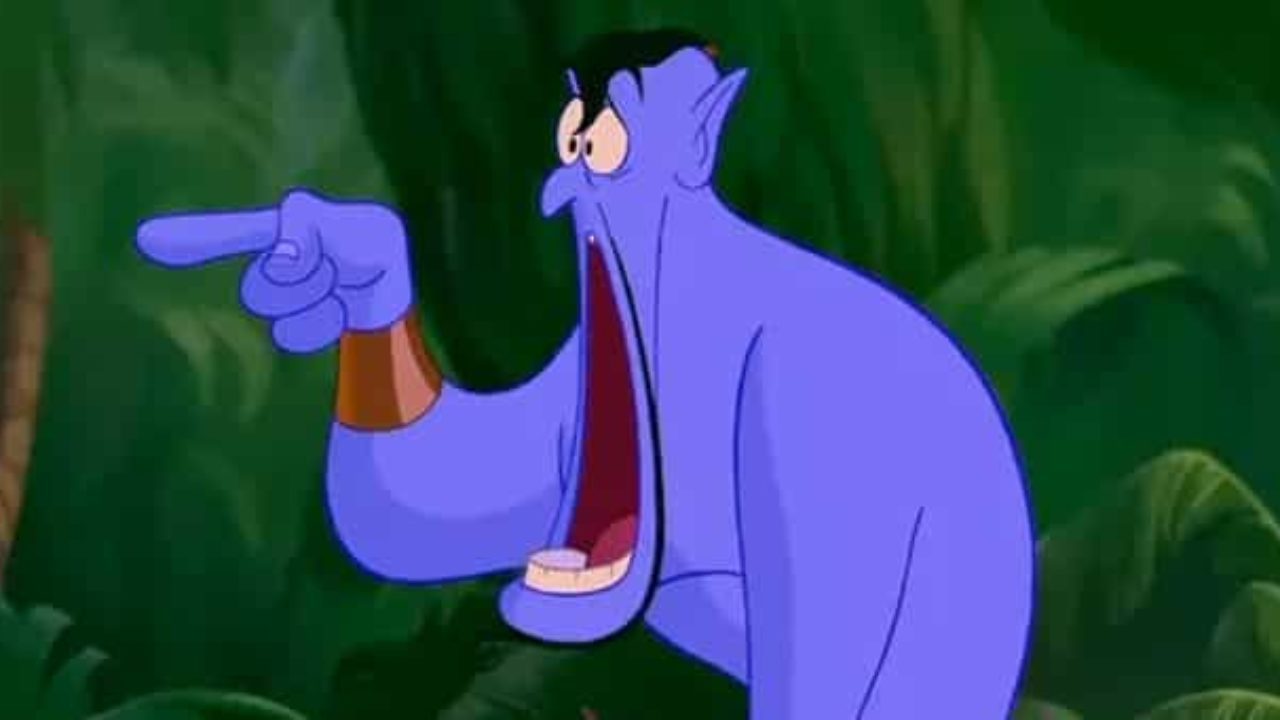
80. Aladdin (1992)
It’s easy to look at Aladdin and celebrate the work of the great Robin Williams, and justifiably so. Only animation could truly uncork the man’s absolutely manic comedy style. But focusing only on Williams overlooks the work of amazing animators who created the Genie and everything else, since it's a testament to their skill that the animation is able to keep up with Williams and the high-flying scenes. Musical sequences like “A Friend Like Me” and “A Whole New World” show another form of animated beauty and have become just as iconic on their own as the Genie himself.
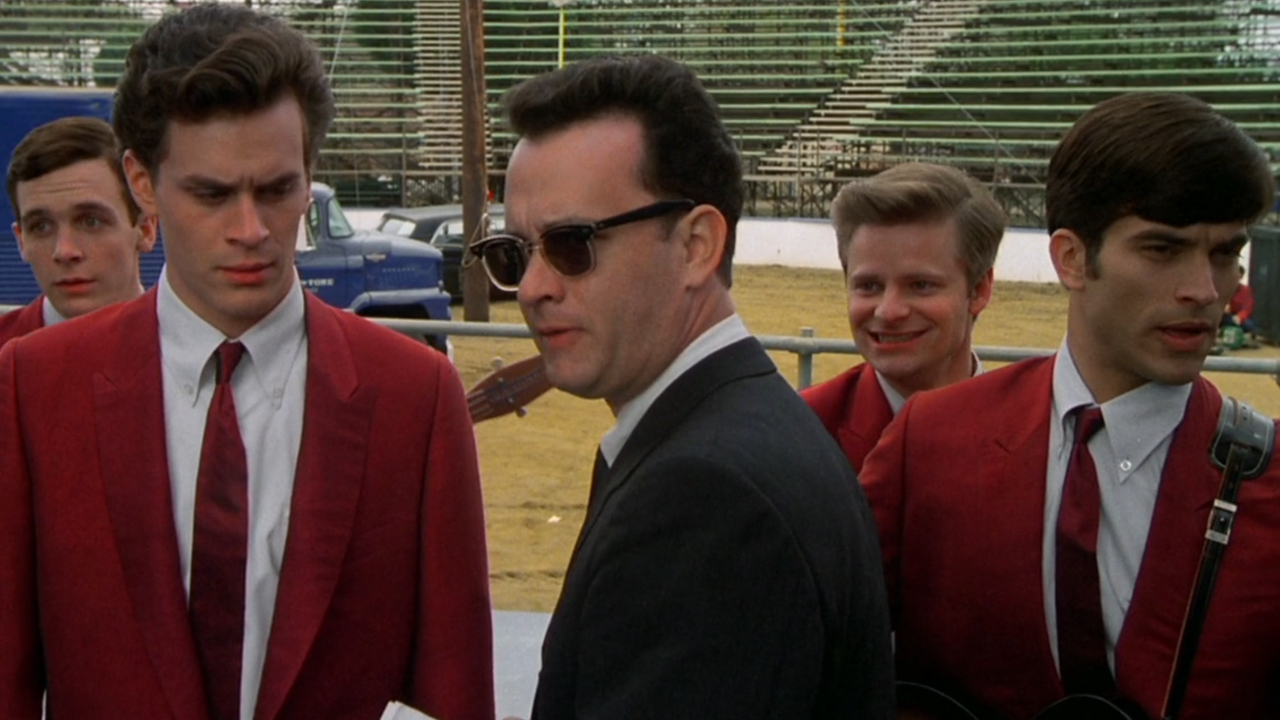
79. That Thing You Do! (1996)
By the time he wrote, directed, and co-starred in 1996’s That Thing You Do, Tom Hanks was already an acting powerhouse. So it was a bit of a surprise to see the Academy Award-winning actor delivering a tale about the wild ride that so many one-hit wonders of the ‘60s endured. Initially, the story of The Wonders (Johnathon Schaech, Ethan Embry, Steve Zahn, and Tom Everett Scott) and their roller-coaster journey wasn’t a smash success, but decades later, That Thing You Do is a well-regarded mini-cult classic that can still leave audiences with songs in their hearts.
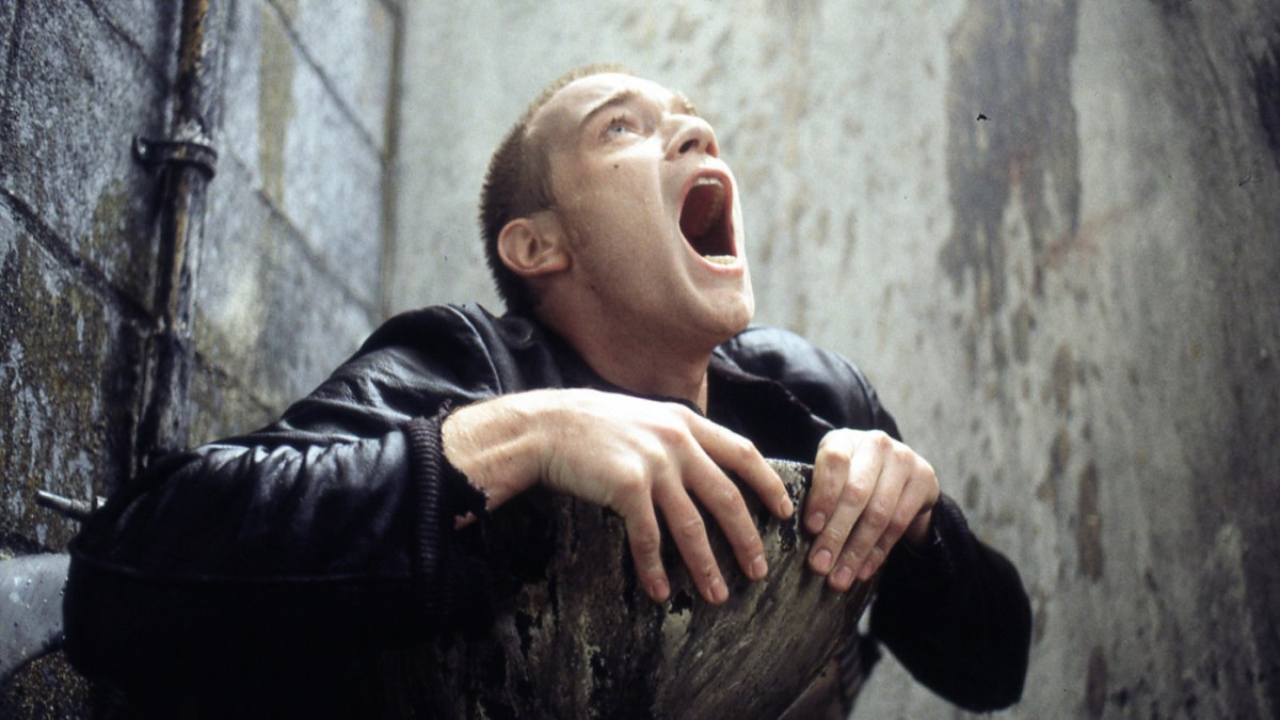
78. Trainspotting (1996)
While it wasn’t his directorial debut, Danny Boyle’s adaptation of Irvine Welsh’s Trainspotting was the flick that put the man on the map. Following the lives of a group of Scottish drug addicts and friends, a cast including Ewan McGregor, Robert Carlyle, and Kelly MacDonald landed their start as the stars of tomorrow. Through a narrative that’s both darkly comic and frightfully serious, Trainspotting ushers its heroin addicts through life's struggles in grounded and trippy ways. Establishing Boyle’s skills in telling a conventional story through unconventional means, it’s a powerful statement for its director and the message he’s trying to convey.
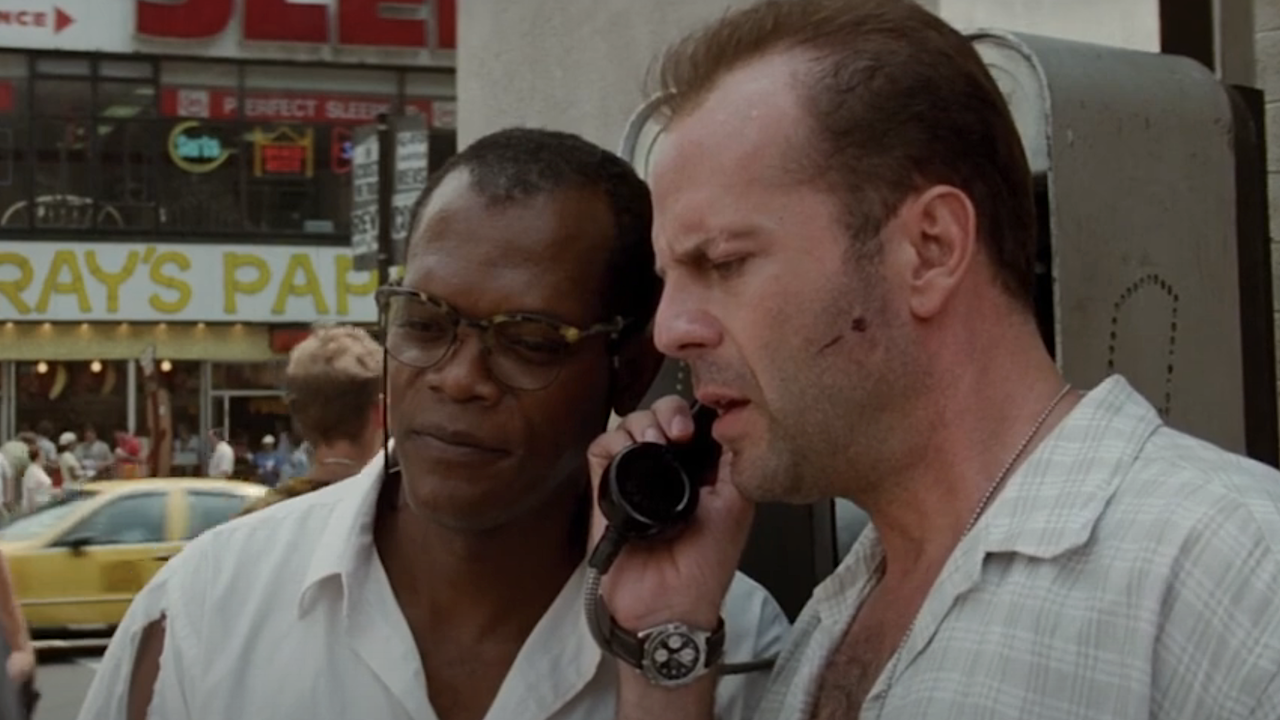
77. Die Hard with a Vengeance (1995)
The Die Hard formula survived the transition to the “buddy cop” genre (at least initially) with Bruce Willis’ iconic John McClane being forced to team up with a good samaritan (Samuel L. Jackson) and solve a bunch of riddles around Manhattan to prevent bombs from going off. Many consider With a Vengeance to be the best in the Die Hard series, though it’s blasphemy to put ANY of them ahead of John McTiernan’s original. Still, this one moves like a freight train, Willis and Jackson have remarkable chemistry, and Jeremy Irons is a sinister villain with a satisfying twist of a motivation to take McClane down.
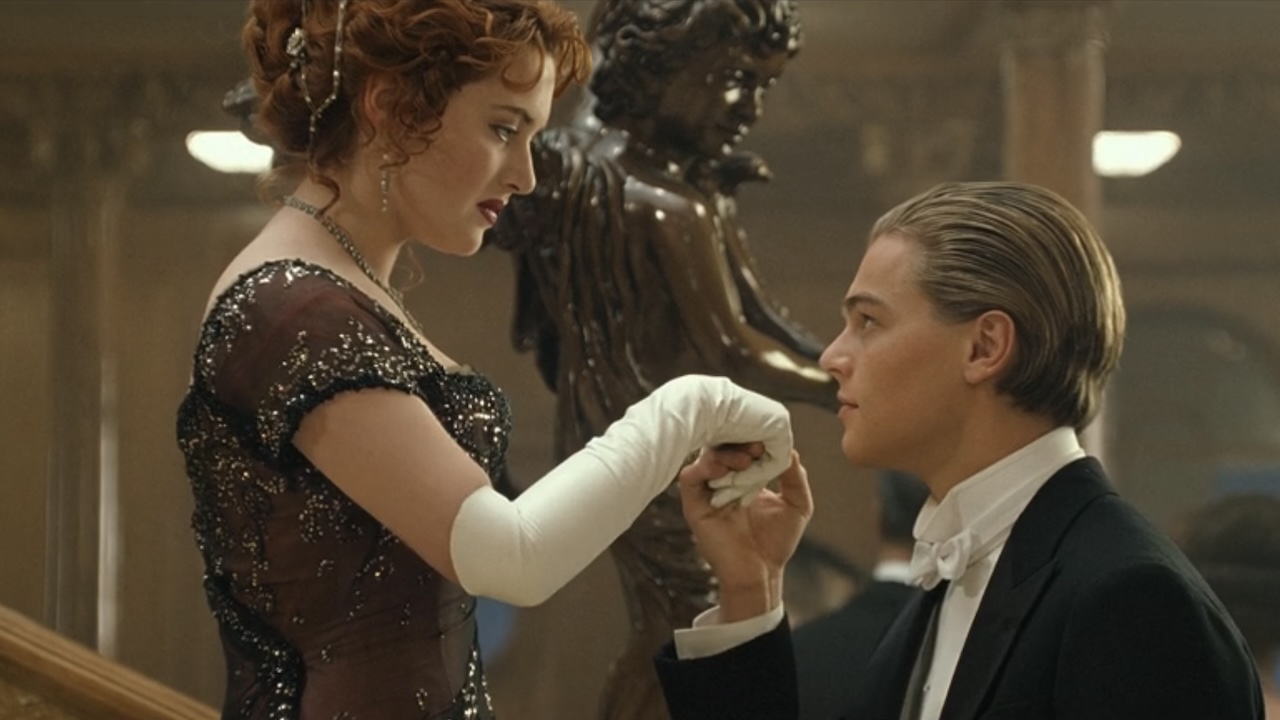
76. Titanic (1997)
Titanic was an event in itself when it arrived in theaters, with James Cameron’s film ambitiously bringing to screen the story of the ill-fated ship, depicting the journey across the Atlantic with incredible visuals that give us a sense of what it might have been like aboard the ship during that terrible night. At the center of it all is the love story of Rose (Kate Winslet) and Jack (Leonardo DiCaprio), who manage to find each other, despite their differing social classes, and never let go. Considering how many millions of dollars it earned from repeat audience viewings, its "classic" status is unsinkable.
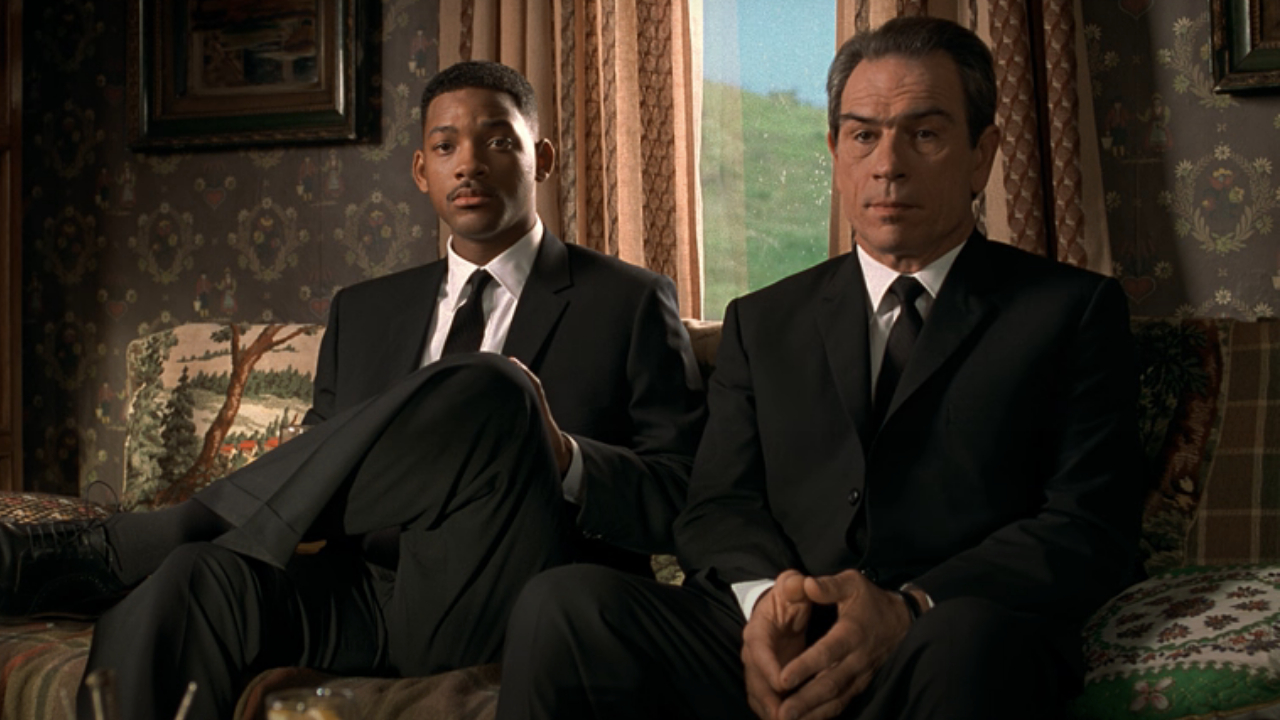
75. Men in Black (1997)
One of the biggest sci-fi hits of the decade, Men In Black holds a special place in the hearts and minds of both space and comedy nerds. Even though it initially took some convincing to land Will Smith for the role of Agent J., Steven Spielberg (as producer) managed to re-catch lightning in a bottle with the actor coming off of Independence Day. And as unpredictable as it seemed at the time Smith and Tommy Lee Jones made for an extremely fun and combative pairing in the rest of the Men in Black film franchise.
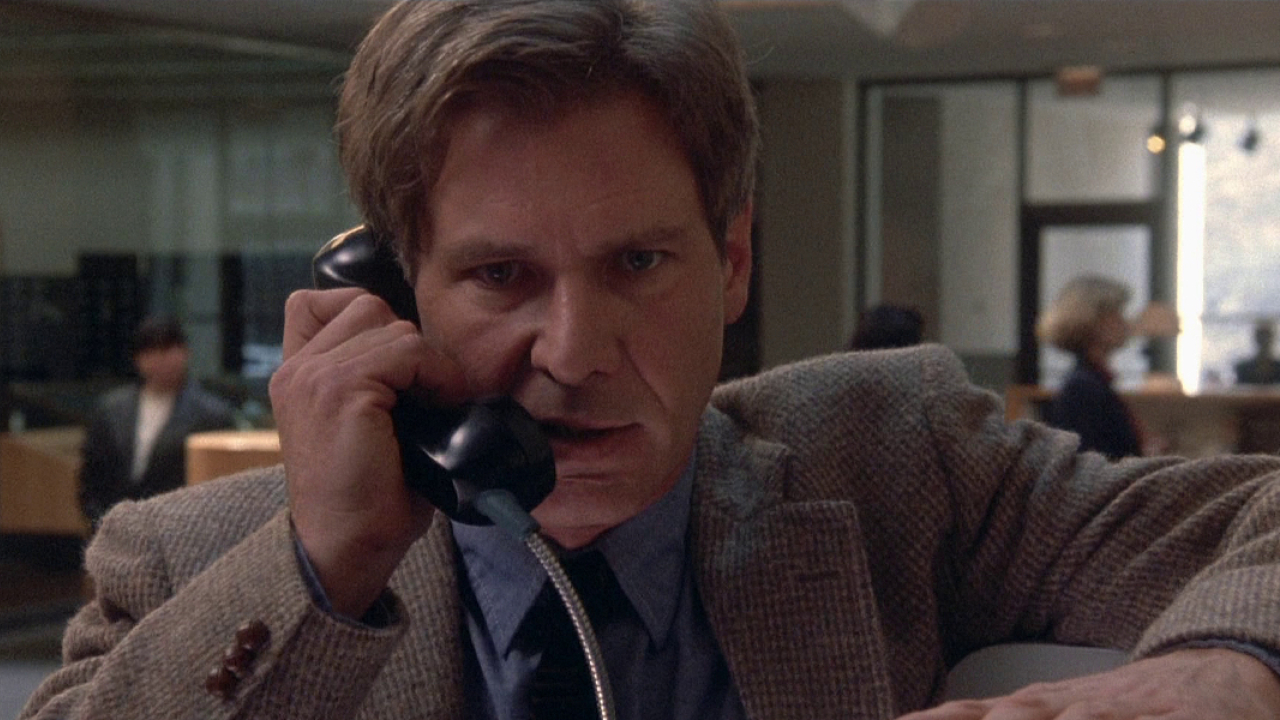
74. The Fugitive (1993)
When it comes to movies based on old TV shows, it doesn’t get much better than The Fugitive. There’s no way around it, this 1993-defining film straight-up rocks and is still just as great more than 30 years after its release. Watching one of Harrison Ford’s most iconic characters go to great lengths to clear his name after being wrongfully convicted of murdering his wife never gets hold, and the same can be said about Tommy Lee Jones’ Academy Award-winning performance as the U.S. Marshal tasked with capturing the elusive fugitive.
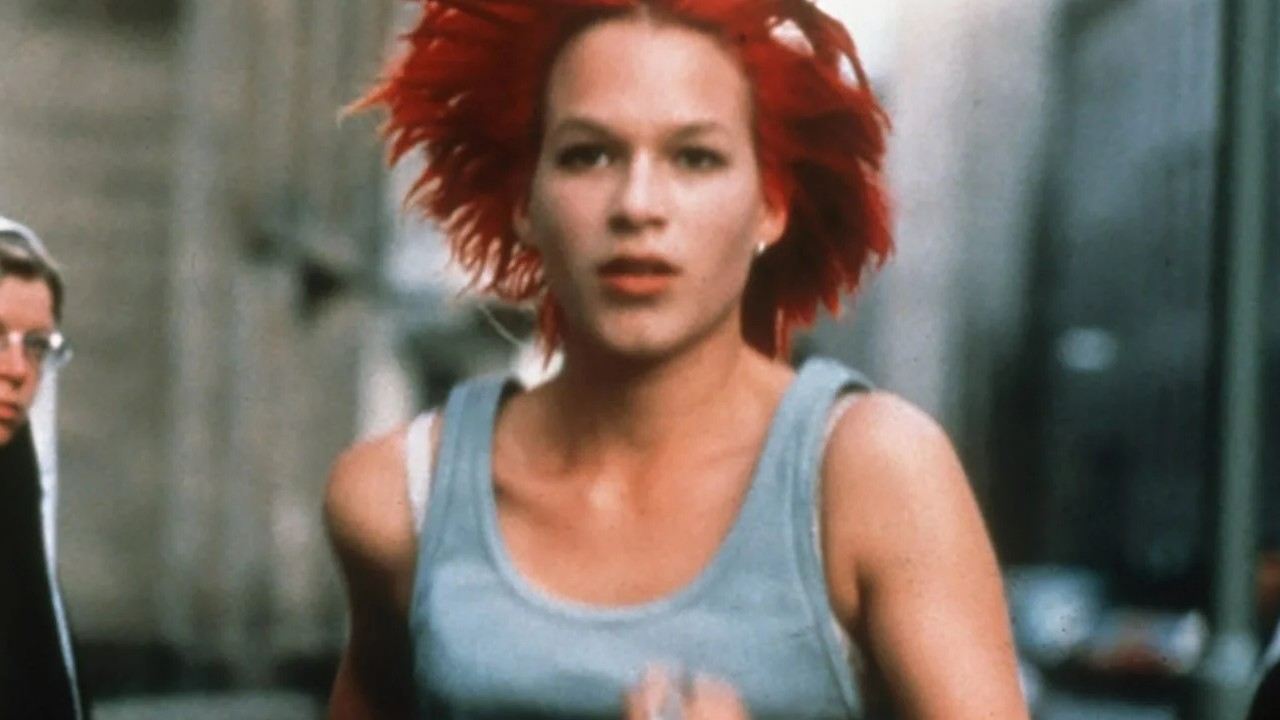
73. Run Lola Run (1998)
Outside of sci-fi adventures, time loops aren’t often used as storytelling devices, and 1998’s thriller Run Lola Run absolutely proves why this is a shame. While the story isn’t explicitly a looping band of time, we do get three different versions of writer/director Tom Twyver’s story. Centered around lovers Lola (Franke Potente) and Manni (Moritz Bleibtreu), each variation has one thing in common: they have 20 minutes to score 100,000 Deutschmarks, or Manni is dead. New twists and pitfalls arrive, keeping that premise fresh each time, right up until the end.
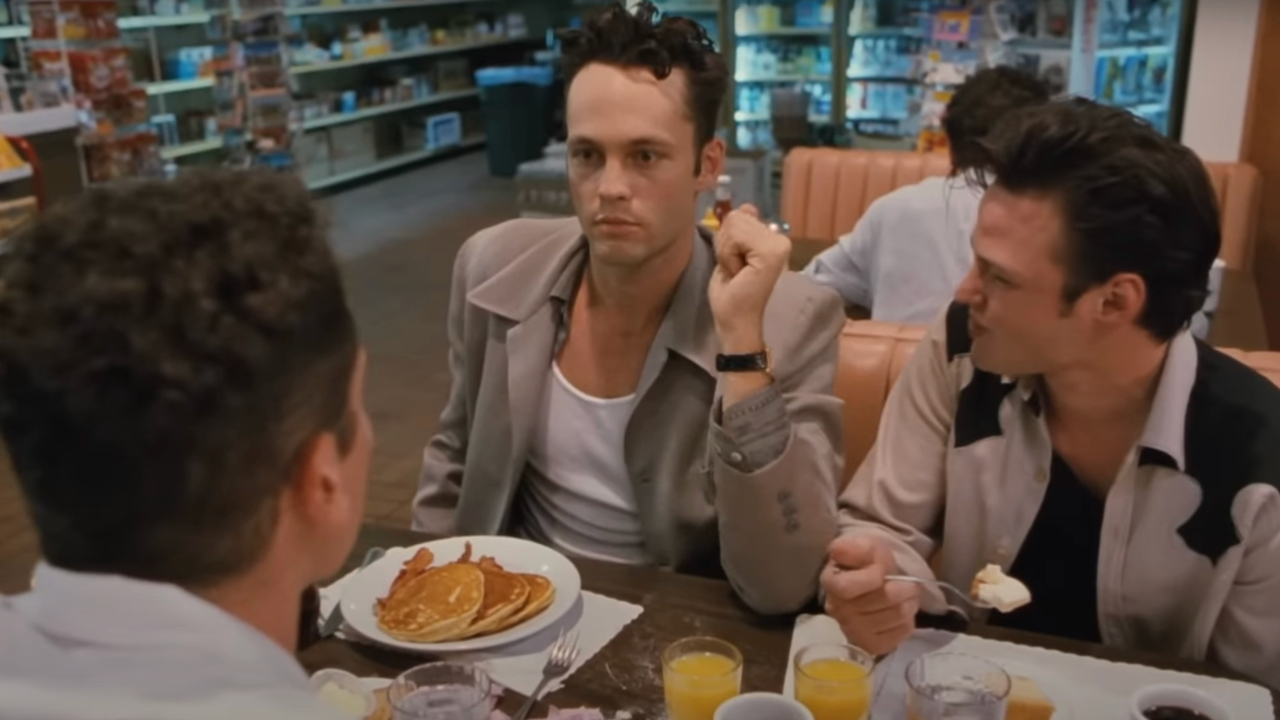
72. Swingers (1996)
Long before he directed major projects like Iron Man and The Mandalorian, Jon Favreau wrote and starred in the Doug Liman-directed Swingers. This comedy follows Favreau’s Mike Peters, a comedian who’s getting over a bad breakup and moves to Hollywood to find success in the midst of the ‘90s swing revival. The witty back-and-forth dialogue between Favreau and his co-stars, including Vince Vaughn and Heather Graham, and the simple, yet effective story of moving on to better horizons make Swingers one of the most underrated comedies of this decade. It's just so money, baby.
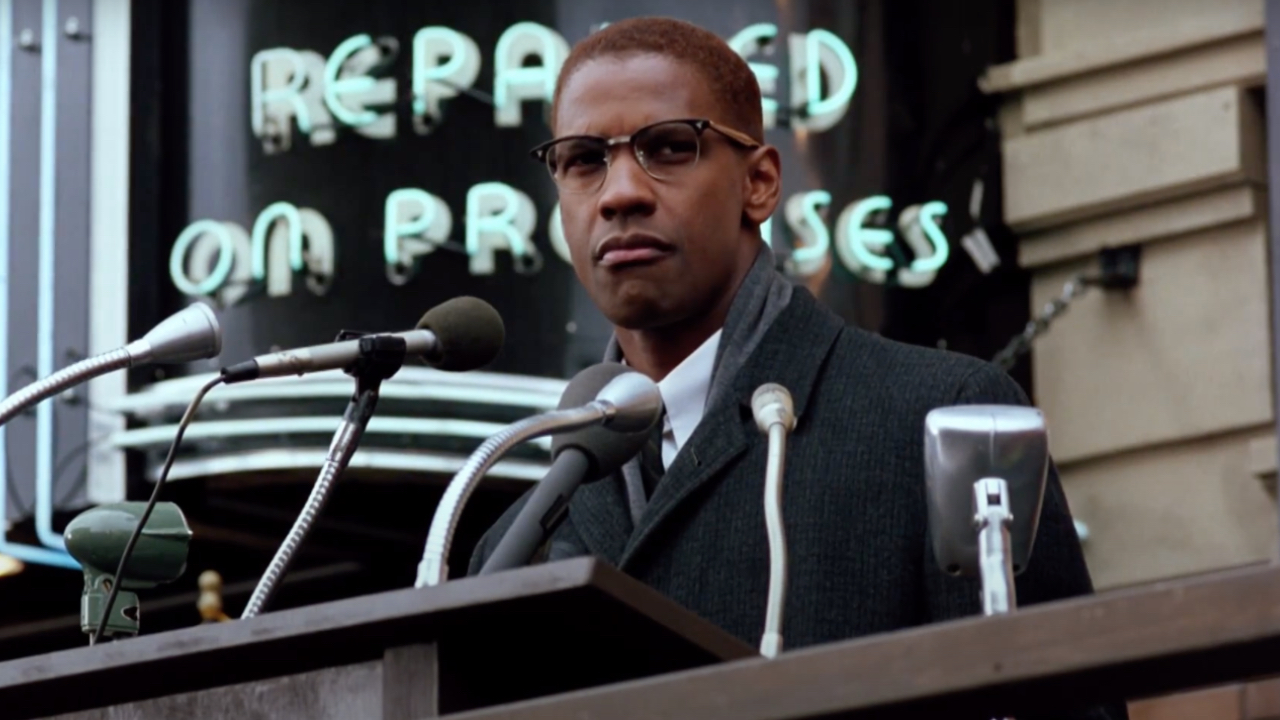
71. Malcolm X (1992)
For his 1992 “Spike Lee Joint,” the legendary Do The Right Thing filmmaker made his dream come true to make a biopic about one American Civil Rights Movement figure, Malcolm X. It not only remains among the best works of Lee’s incredible filmography, but it’s flat-out one of the best biography movies ever made. That’s all without mentioning a particularly powerful performance by Denzel Washington, who disappears into the figure and brings great intrigue and nuisance to Malcolm X across decades of his life. Spike Lee’s biopic stands tall as an enduring portrait of an important man in a pivotal moment in U.S. history.
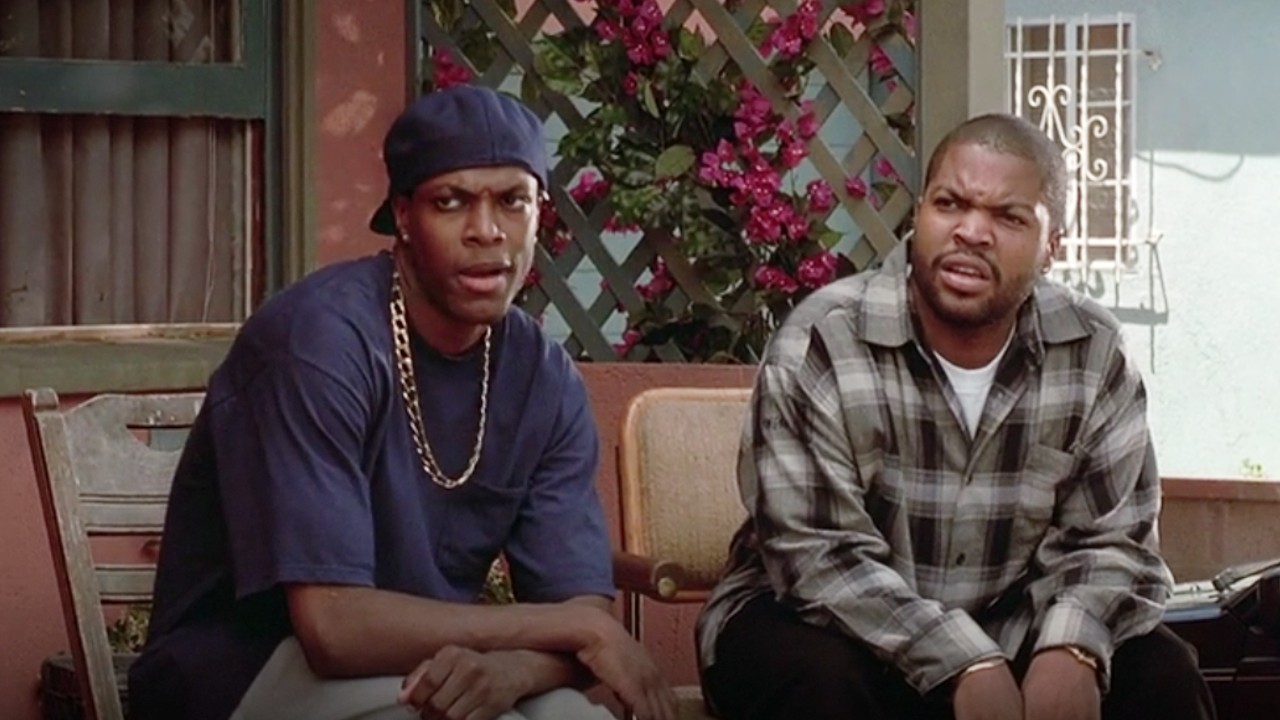
70. Friday (1995)
Franchise lead and rap legend Ice Cube teamed up with Chris Tucker to create one of the best "sit back and kick it" movies in movie history. Spawning a line of sequels, the O.G. Friday boasts an awesome cast that also includes the late John Witherspoon, and understandably caught on with a certain kind of stoner comedy-loving crowd, but has become an all-encompassing cult classic. Even beyond its on-screen greatness, Friday also turned "Bye, Felicia" into everyday jargon.
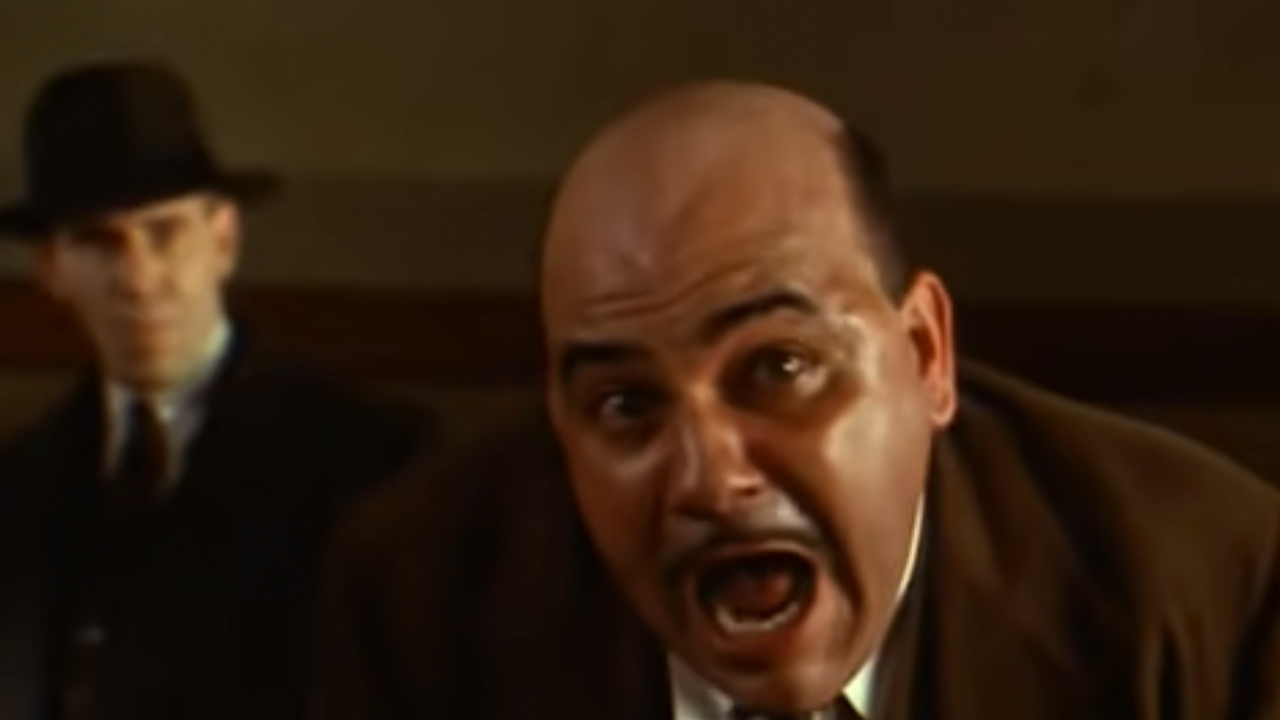
69. Miller's Crossing (1990)
Joel and Ethan Coen didn’t waste time demonstrating their eclecticism in their careers, breaking out with the phenomenal neo-noir Blood Simple in 1984 ahead of a 180-degree tonal pivot with 1987's gonzo comedy Raising Arizona. Then they kicked off the 1990s with one of the great modern gangster movies in Miller's Crossing. Gabriel Byrne’s Tom Reagan leading John Turturro’s Bernie Bernbaum into the woods to be murdered is the movie’s iconic moment, but it’s the brilliant chaos that spins out from Tom’s decision at the end of the sequence that cements this tense slice of art's place on this list.
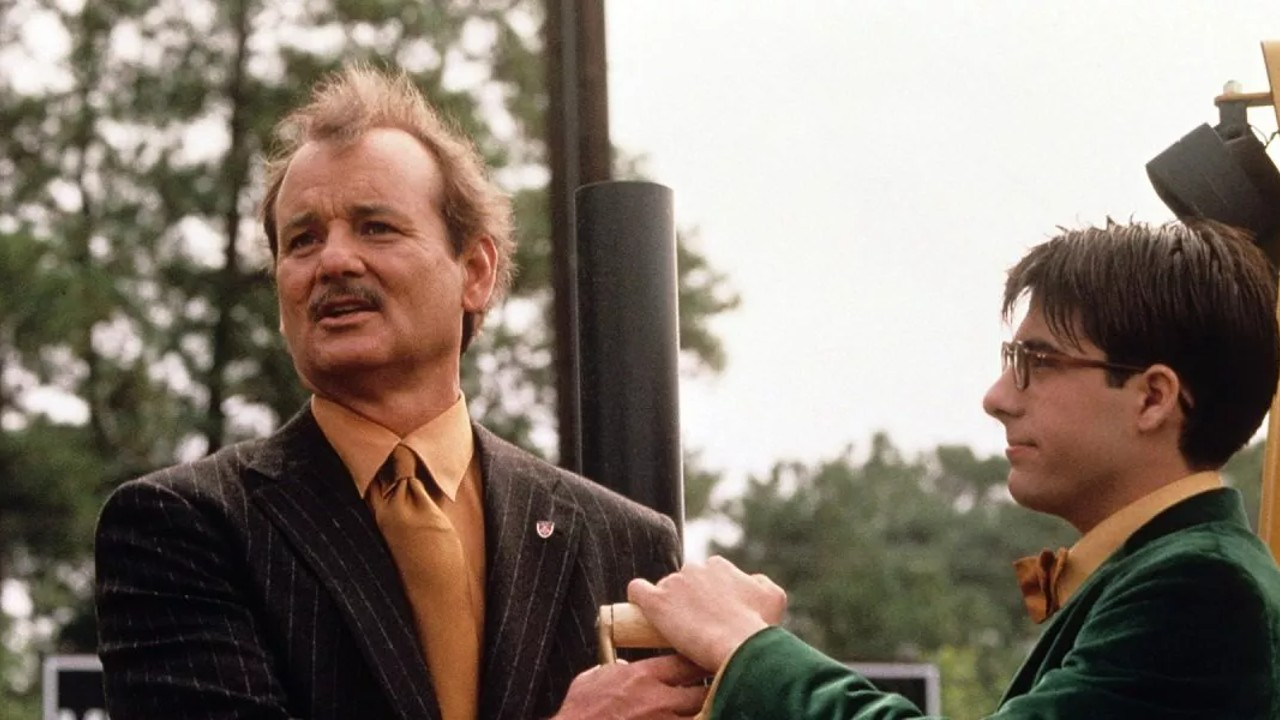
68. Rushmore (1998)
Rushmore is often referenced for a lot of things. It was the first Wes Anderson movie to find more mainstream success. The critical acclaim Bill Murray received for his performance helped push him toward the more independent, critically acclaimed movies that defined his later career. It was the debut of Jason Schwartzman. All of those are reasons to celebrate the movie, but none are reasons why it’s on this list. It’s here because it’s an endlessly watchable slice of weirdness that holds up decades later. It’s some of the best career work of everyone referenced, and in its own offbeat way, it’s downright hysterical.
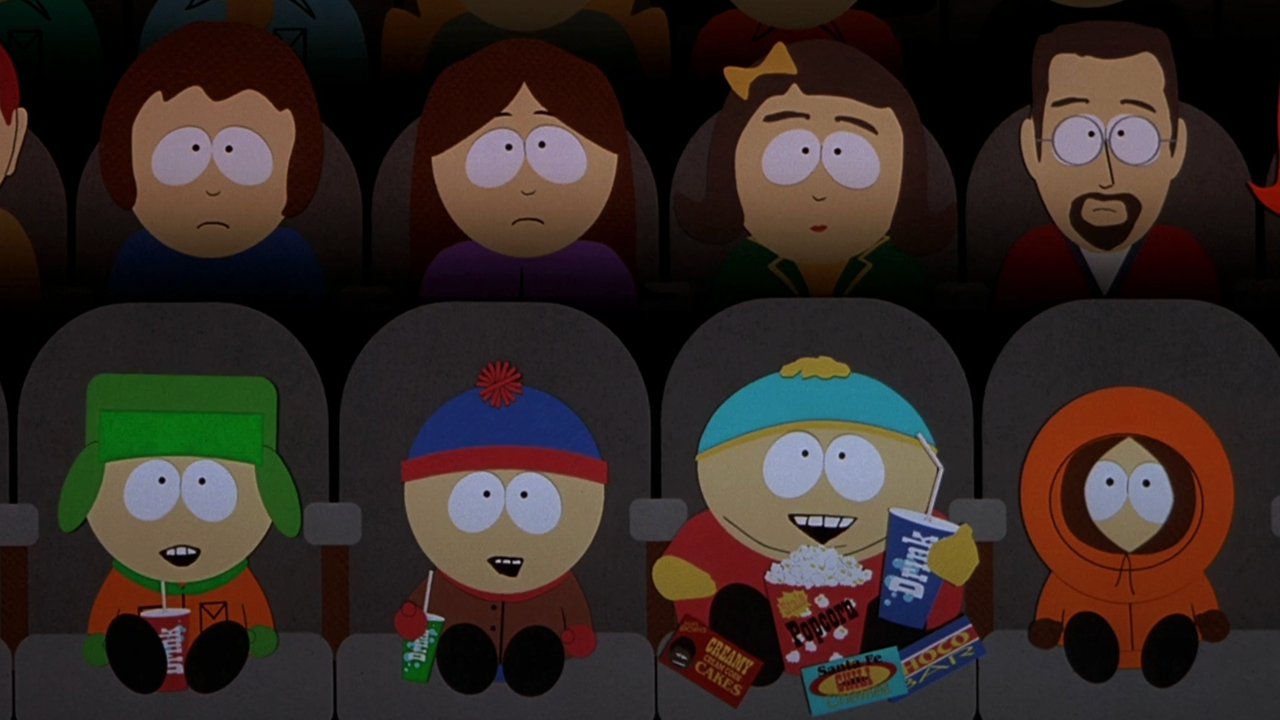
67. South Park: Bigger, Longer, And Uncut (1999)
In 1999, with South Park at the height of its cultural powers, Matt Stone and Trey Parker took one of the biggest gambles anyone could have ever imagined. Producing the R-rated, animated musical that was South Park: Bigger, Longer, and Uncut, the pair doubled down on their uniquely dirty humor. Everything from parenting culture to Les Miserables got sent up, thanks to songs that were catchy but also not safe for work. Not every TV show survives a feature-length expansion, but South Park thrived in theaters, especially when it called the very parental uproar its release would inspire to a tee.
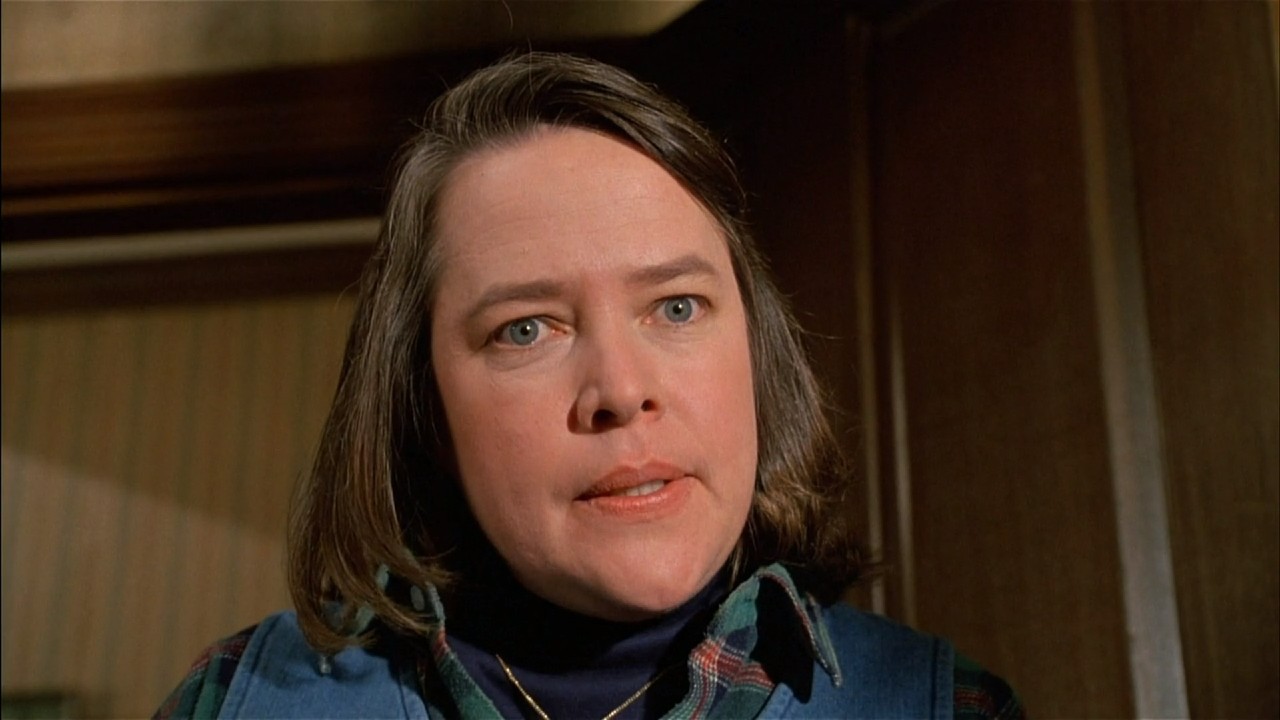
66. Misery (1990)
What does a creative owe to their fans? It’s a complex question that author Stephen King horrifyingly examined with his remarkable 1987 novel Misery, and three years later, director Rob Reiner adapted the work into a remarkable and unsettling film. The Oscars don’t typically support the horror genre, but Kathy Bates’ turn as Annie Wilkes was unignorable – as she remains one of the meanest villains of the ‘90s.. Though in Bates’ shadow, James Caan delivers an equally excellent turn as captive author Paul Sheldon, and the weaving of tension as he keeps his mind on options for escape is perfection.
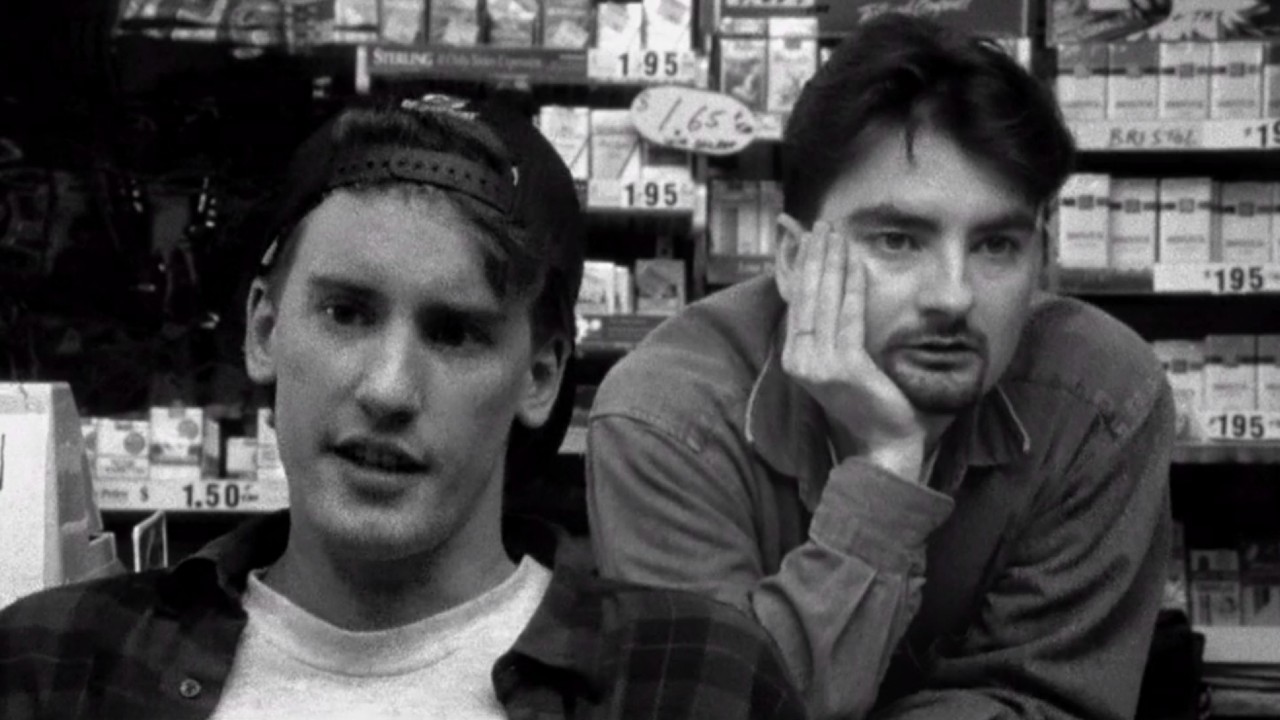
65. Clerks (1994)
Kevin Smith famously maxed out credit cards and stretched a production budget of just $27,000 to make his first movie, 1994’s Clerks. Sure, the acting is hit or miss, and the editing isn’t perfect, but that only adds to the charm of the movie. It’s also really, really funny. It’s got some of the most quotable lines of any movie from the era, and they all shine through, despite the limitations of the budget. Clerks has become the stuff of legend in Hollywood, sparking dreams of would-be filmmakers everywhere and with good reason.
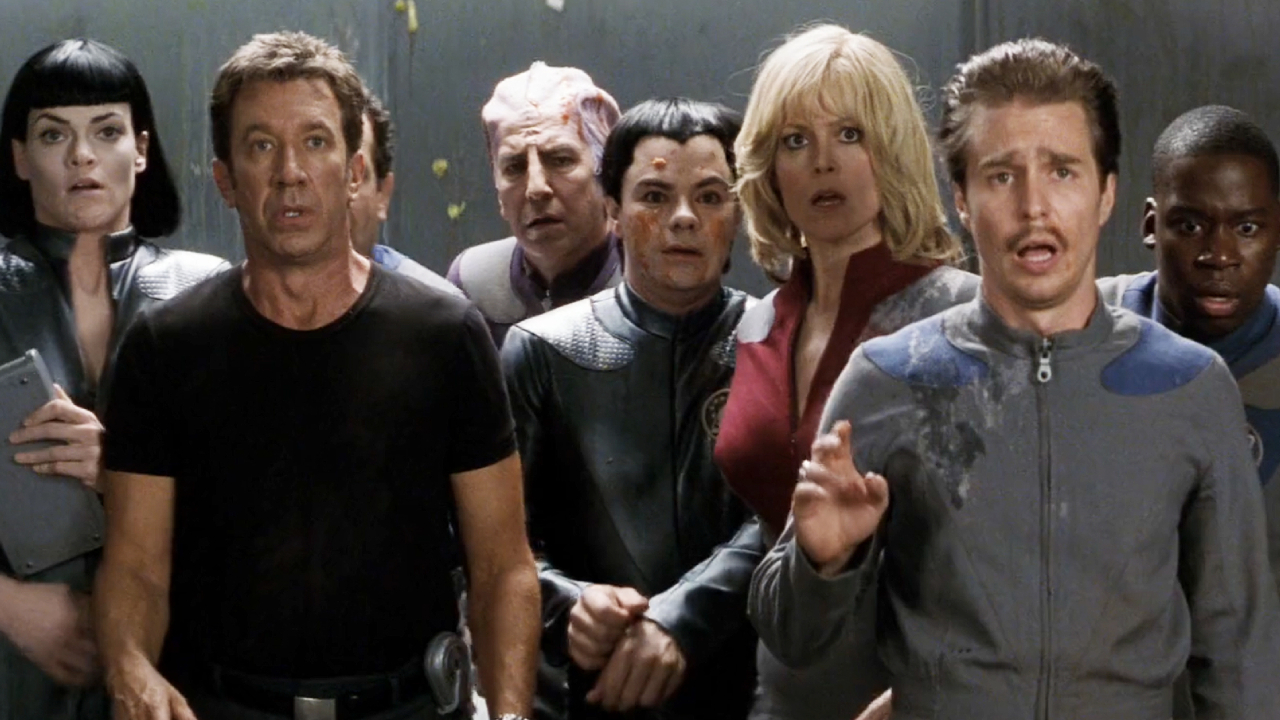
64. Galaxy Quest (1999)
What if you found out that the fantastic adventures in your favorite sci-fi TV weren't so fake after all, such as in Galaxy Quest? Tim Allen plays a washed-up actor who, along with his former co-stars (played by Sigourney Weaver, Alan Rickman, and more), experience their cancelled, cult favorite series for real, thanks to an alien race that believes their televised adventures are "historical documents" and are desperate for their help. The concept makes for a clever, hilarious commentary on Trekkie culture, but also manages to be just as exciting as any Star Trek episode or movie spin-off could ever be.
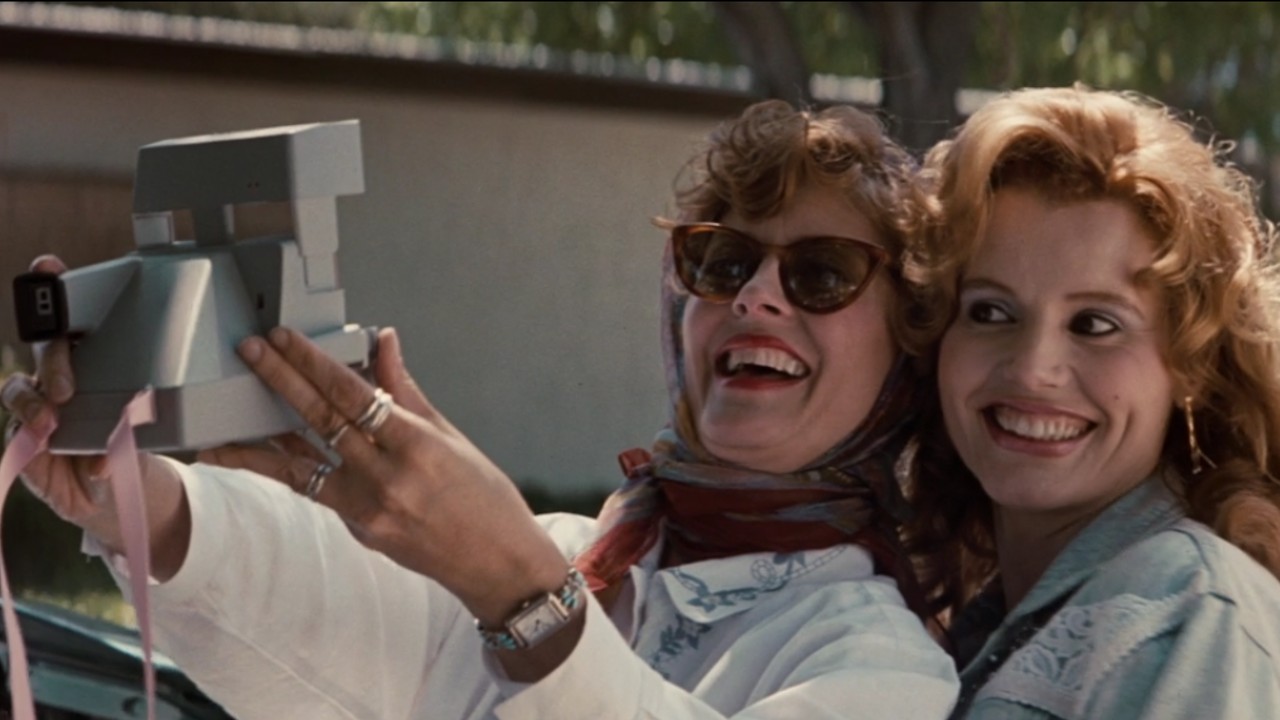
63. Thelma and Louise (1991)
Susan Sarandon and Geena Davis have made dozens of memorable movies, but even if they had just made Ridley Scott’s Thelma & Louise, they’d have a space carved out for them in cinema history. It’s regarded as a keystone title in the history of feminism in film, and it makes you fall in love with the titular leads as they go on the run from the law. And it should go without saying that the final moments will forever be remembered as an indomitable moment of 1990s pop culture.
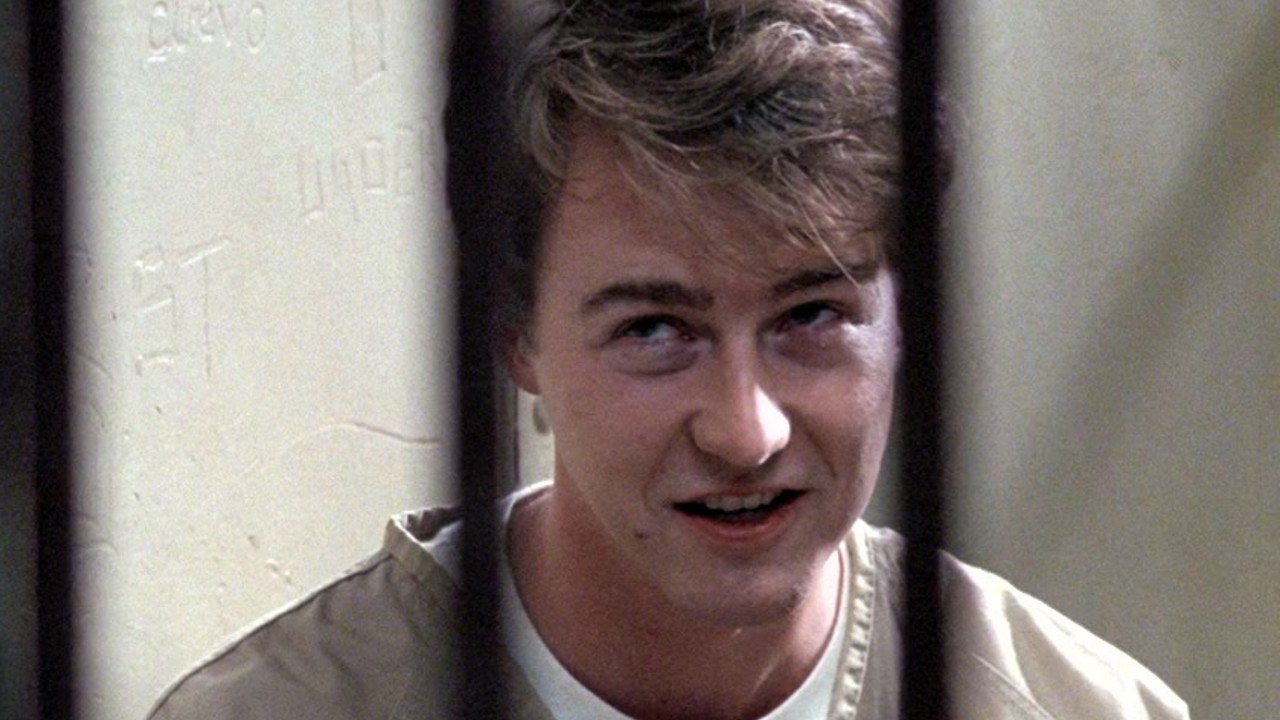
62. Primal Fear (1996)
Courtroom dramas were big in the ‘90s, and Primal Fear in 1996 is a prime example of why. Richard Gere plays the pompous attorney Martin Vail, who volunteers to represent a young Aaron Stampler (Edward Norton in his first screen role) after he is accused of brutally murdering a beloved archbishop. The movie takes an unexpected turn when Aaron is discovered to have a split personality named Roy, and the dark twist that comes to light after an explosive courtroom scene remains one of the wildest movie endings ever.
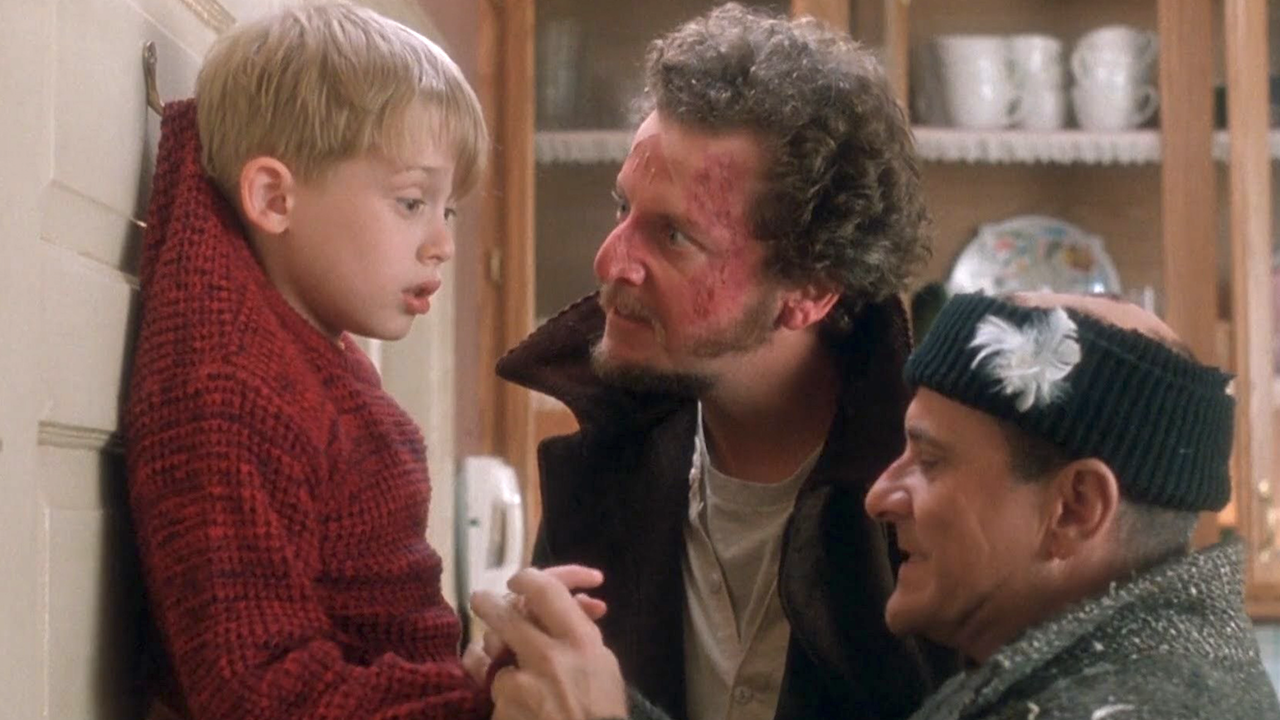
61. Home Alone (1990)
I'm pretty sure Home Alone has hit classic Christmas movie territory because you always know it's the holiday season when this movie is causing a clatter on your TV screen. Following a child accidentally left home alone during Christmas and who has to defend his home from burglars, Home Alone captures the happiness of the season while adding a bit of chaos – especially with all those serious injuries that probably would have killed Marv and Harry in the real world. It'd be a fun time even without Catherine O'Hara and John Candy's SCTV reunion, but is all the better for it.
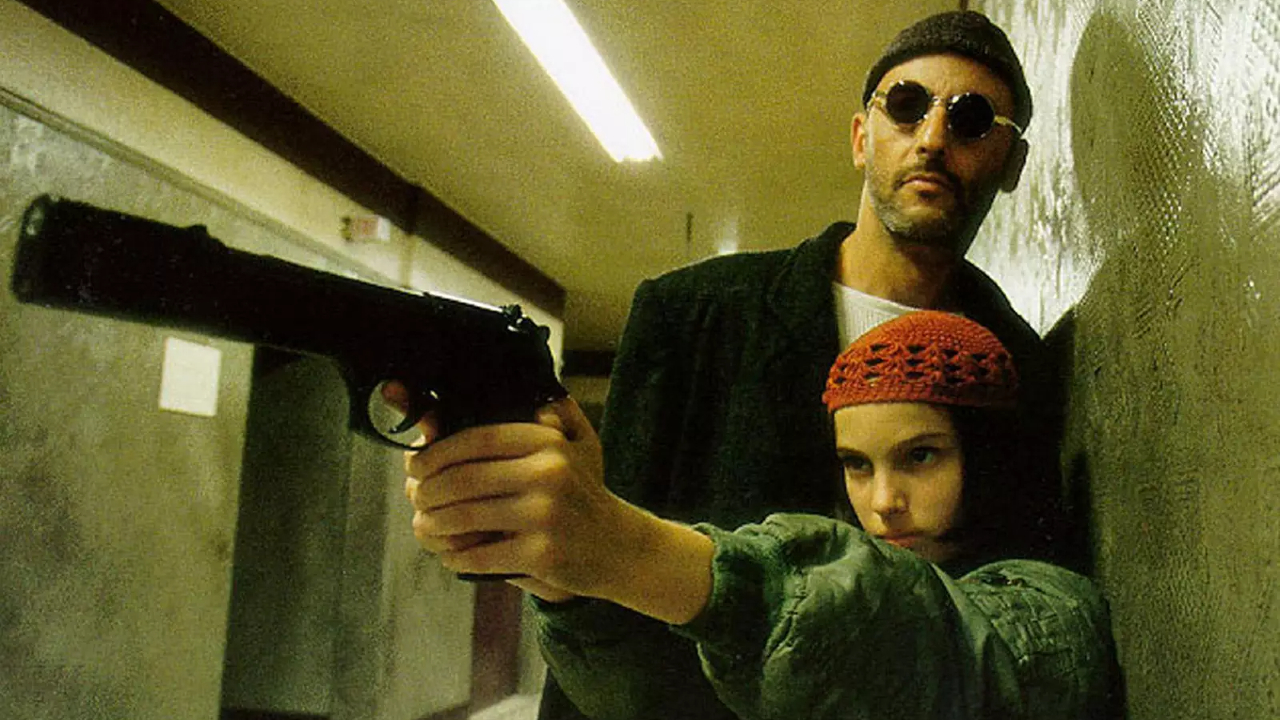
60. Leon (The Professional) (1994)
Luc Besson seems to be motivated by big sci-fi ideas in films such as The Fifth Element, Lucy, and Valerian and the City of a Thousand Planets. On the flip side of Besson’s coin, though, are these stripped-down crime thrillers (Nikita, The Family), and none were more effective than Leon. The film heralded the arrival of young Natalie Portman, who proved she could appear convincingly as basically anything on screen. But also, Gary Oldman walks away with the picture, playing an unhinged and drug-addicted DEA agent looking to kill Portman’s character, much to the chagrin of professional hitman Jean Reno.
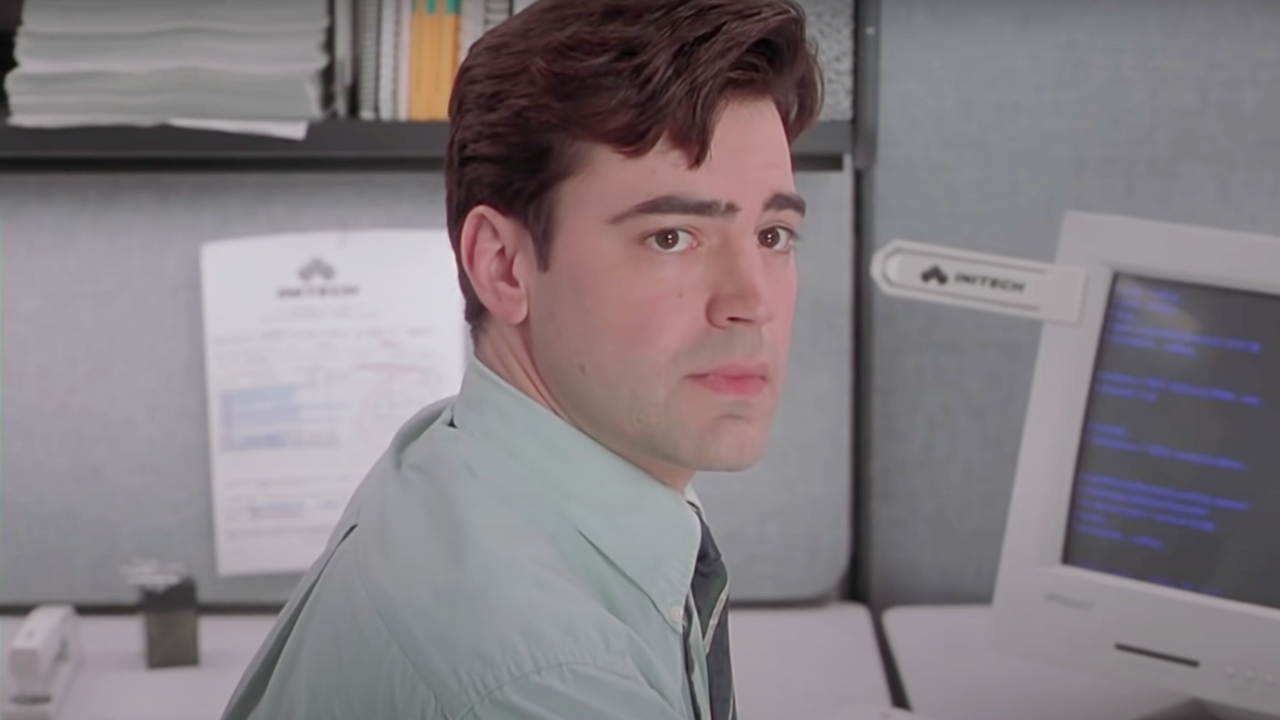
59. Office Space (1999)
There’s a scene in Office Space where all the workers are assembled for an all-hands meeting. Above the boss’ head, there’s a banner printed that says Is This Good for the COMPANY? The question is underlined and COMPANY is in weird light blue font for unclear reasons. It’s somehow both utterly ridiculous and one of the most relatable things I’ve ever seen. In a way, it’s a perfect explanation for why some people, myself included, love Office Space so much. It’s one long series of hysterical if-you-know-you-know-moments, and watching other people live through and comment on that same misery feels so cathartic.
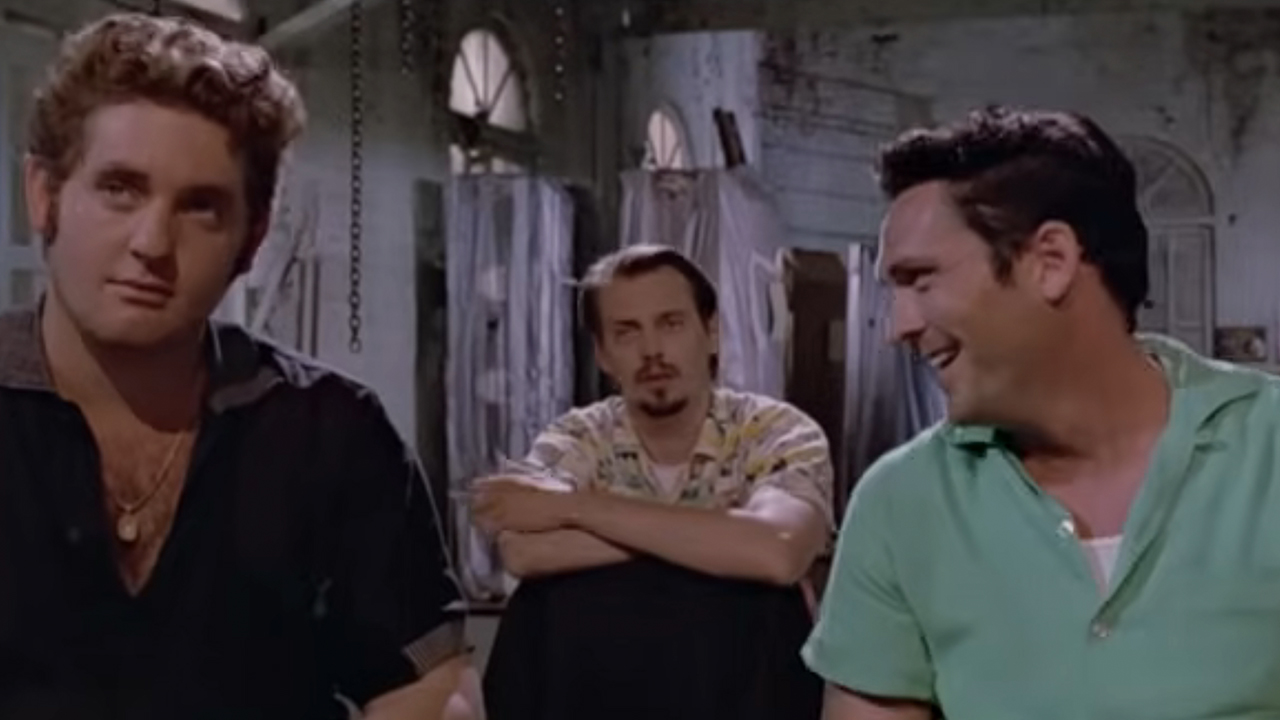
58. Reservoir Dogs (1992)
There are few filmmakers in cinematic history who made as an audacious splash with their first feature as Quentin Tarantino, who was immediately recognized as a tremendous upstart talent following the premiere of Reservoir Dogs at the 1992 Sundance Film Festival. With its spellbinding non-linear storytelling, sharp-as-knives dialogue, and violent shocks, it is recognized as a perfect archetype of Tarantino’s strengths as a writer/director, and it is remembered for inspiring a whole generation of filmmakers and its lasting impact on genre cinema.
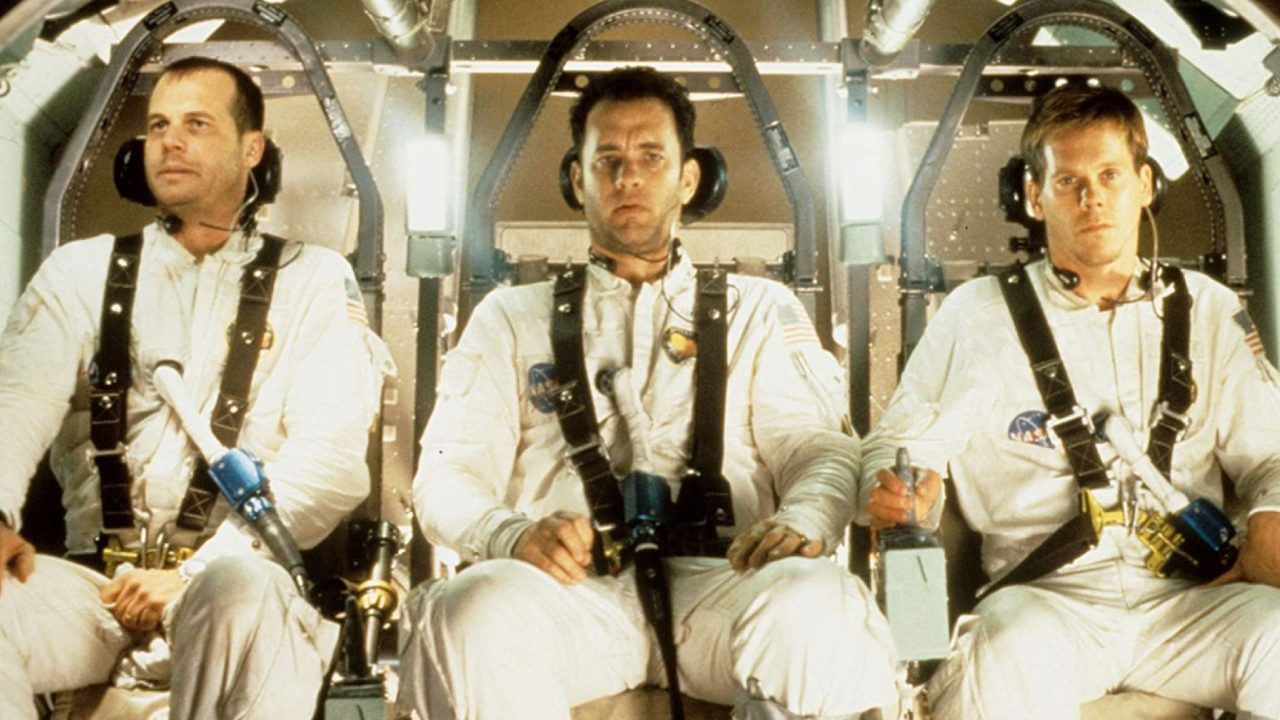
57. Apollo 13 (1995)
Apollo 13 may be best remembered in pop culture for the iconic line “Houston, we have a problem," but the 1995 film accumulated nine Academy Award nominations for a reason. Boasting a stacked cast that includes Tom Hanks, Kevin Bacon, Gary Sinise, Ed Harris, and Kathleen Quinlan, the movie dramatizes the true story of the failed 1970 lunar mission, and the ending sequence is no less suspenseful nearly thirty years later than it was in the ‘90s. The effects mostly stand up to this day; but even where they don’t, the performances sell the story entirely.
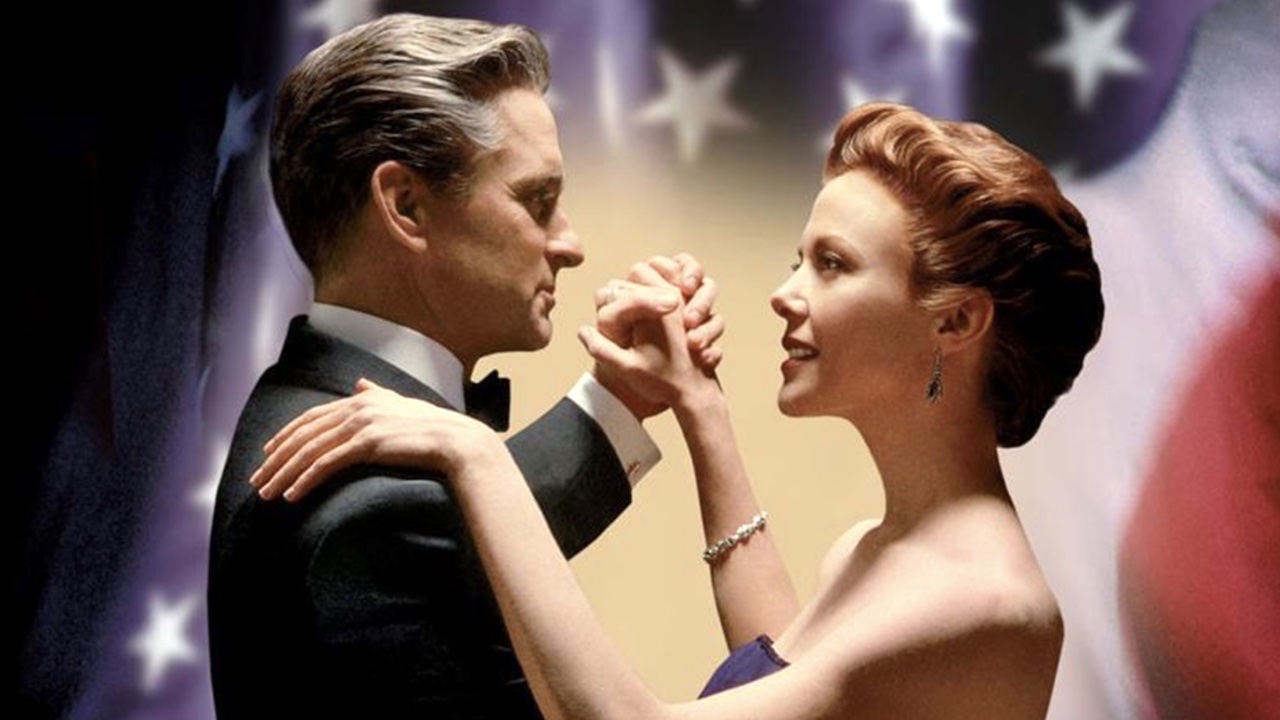
56. The American President (1995)
Before Aaron Sorkin created The West Wing, he wrote The American President, which saw one of the most respected movie presidents, Andrew Shepherd (Michael Douglas), fall for feisty environmental lobbyist Sydney Ellen Wade (Annette Bening). Could a widowed president ever court a girlfriend in an election year? Sorkin’s snappy dialogue shows why it wouldn’t be easy, as the two become tabloid fodder, and even bigger trouble awaits when their political agendas don’t align. Both lead actors give absolutely charming performances in this 1995 political rom-com directed by Rob Reiner.
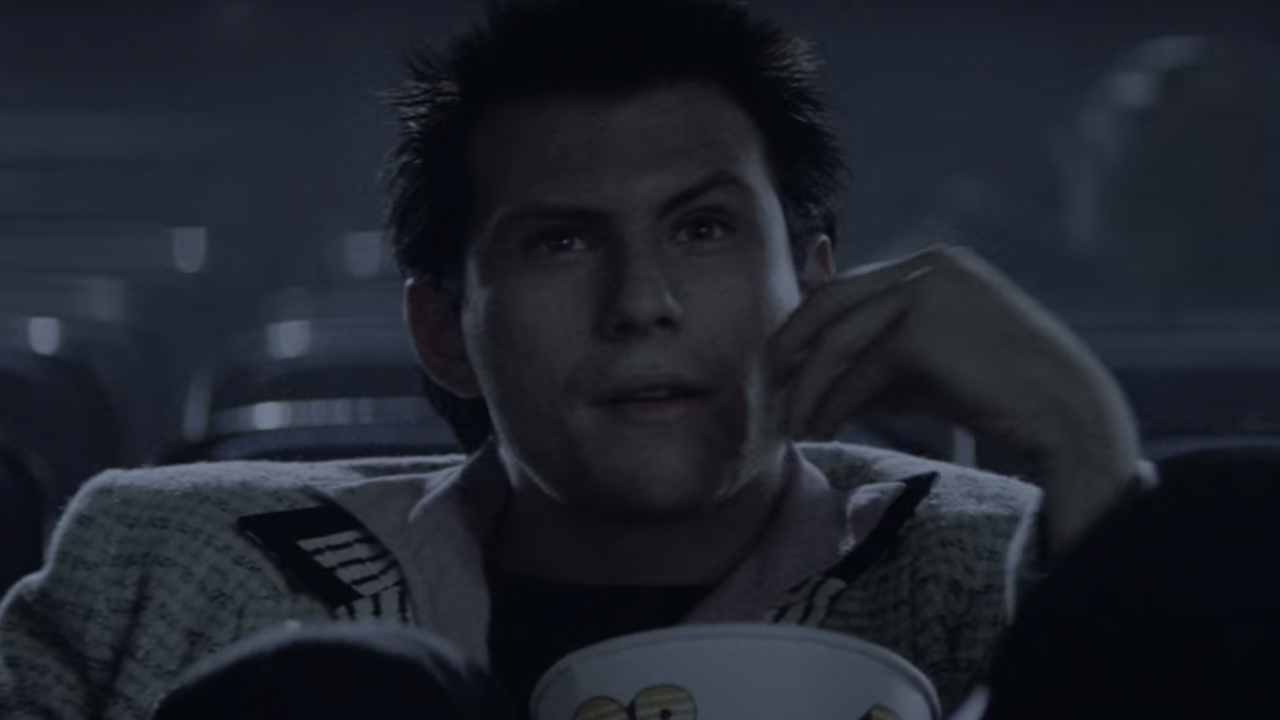
55. True Romance (1993)
The first screenplay Quentin Tarantino ever sold in Hollywood was 1993’s True Romance, and it became an offbeat cult classic when combined with Tony Scott’s slick direction. Christian Slater and Patricia Arquette are perfect as the flawed lovers and the rest of the cast, which includes Gary Oldman, Brad Pitt, Michael Rappaport, Val Kilmer, Samuel L. Jackson, Tom Sizemore, James Gandolfini, just to name a few, are all brilliant. It’s one scene, however, between Dennis Hopper and Christopher Walken, that steals the whole show and deserves its own placement in cinema history.

54. Unforgiven (1992)
This might be the quintessential Clint Eastwood Western – which says a lot when you realize that the man helped to define the genre, dating all the way back to his days on television (in Gunsmoke). With Unforgiven, an older Eastwood figured out how to comment on the evolution of the Western, and reflect on the moral quandaries several cowboys faced over the course of their lawless lives. This marked the beginning of a contemplative stage of Eastwood’s career, and redefined the boundaries of the Western for storytellers that followed.
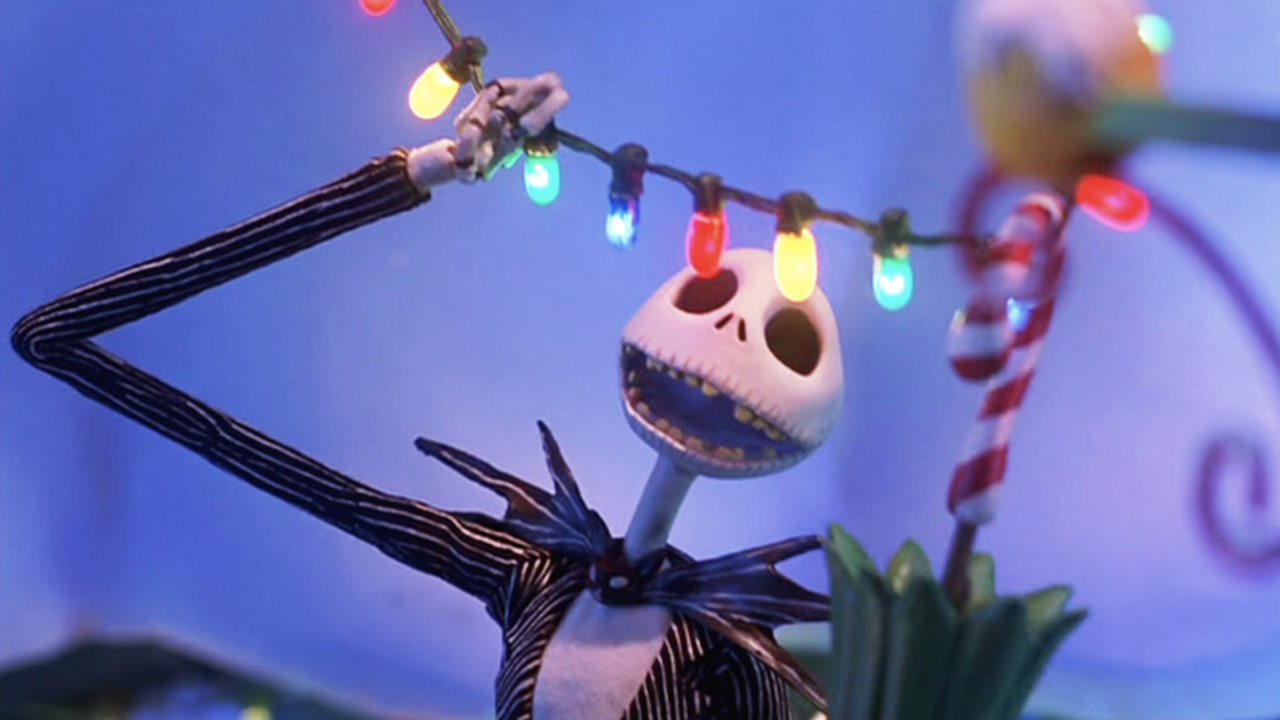
53. The Nightmare Before Christmas (1993)
Not only is The Nightmare Before Christmas one of the best stop-motion movies of all time, but it was also a game-changer within the animation industry. The movie -- following the story of Jack Skellington turning Halloween Town into Christmas Town and trying to take over the role of Santa Claus -- has become a cultural icon. Not only is the movie celebrated during the Halloween season, but it's also become one of the best animated Christmas movies and has a wildly popular fan base – go to Disney World during Halloween and Christmas and see how popular this movie is.
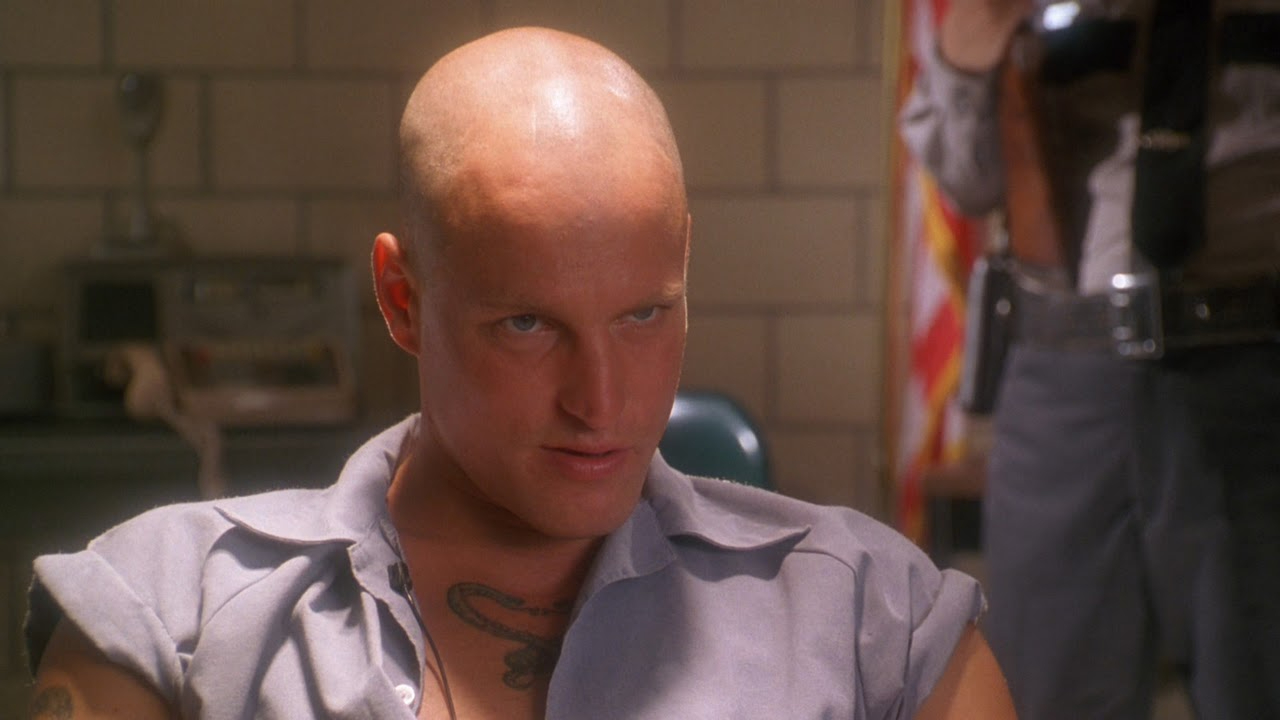
52. Natural Born Killers (1994)
Few movies in the last decade of the 20th century caused a stir quite like the big screen adventure of Mickey and Mallory Knox in Oliver Stone’s demented crime saga Natural Born Killers. Fans of the TV show Cheers got to witness a whole new side to Woody Harrelson, and he makes for one-half of an absolutely ferocious on-screen pair partnered with Juliette Lewis. Though it was only released in 1994, it is a title to point to when aiming to epitomize a certain spirit in 1990s pop culture.
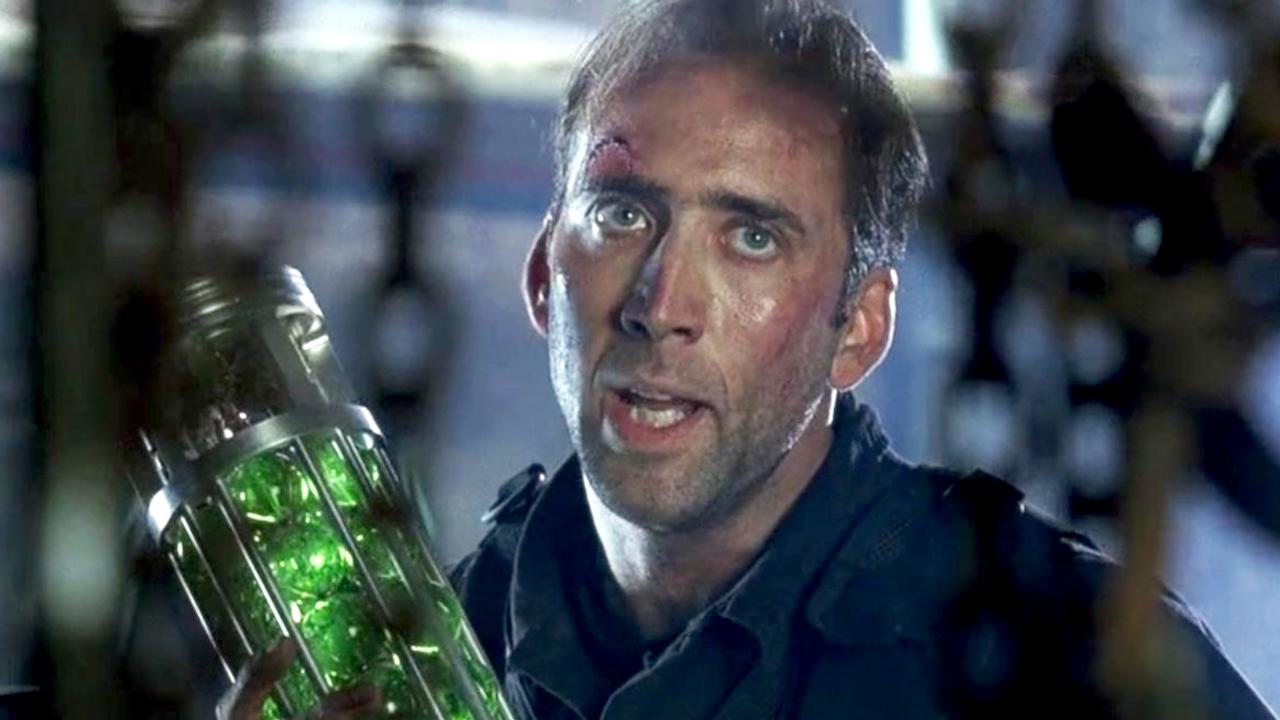
51. The Rock (1994)
It is still totally bonkers to think that the mid-’90s gave us a Michael Bay action movie in which Sean Connery and Nicolas Cage got to mesh their wildly different talents. A movie that helped pencil in the blueprint for what we know as modern Bayhem, The Rock is a solid cocktail of action, comedy, and drama tied together with a surprisingly poignant message. None of that gets lost in the shuffle, either, even as the shuffle keeps viewers glued to their seats until the very last scene. You can bet this quotable, adrenaline-charged classic is still friendly with the prom queen.
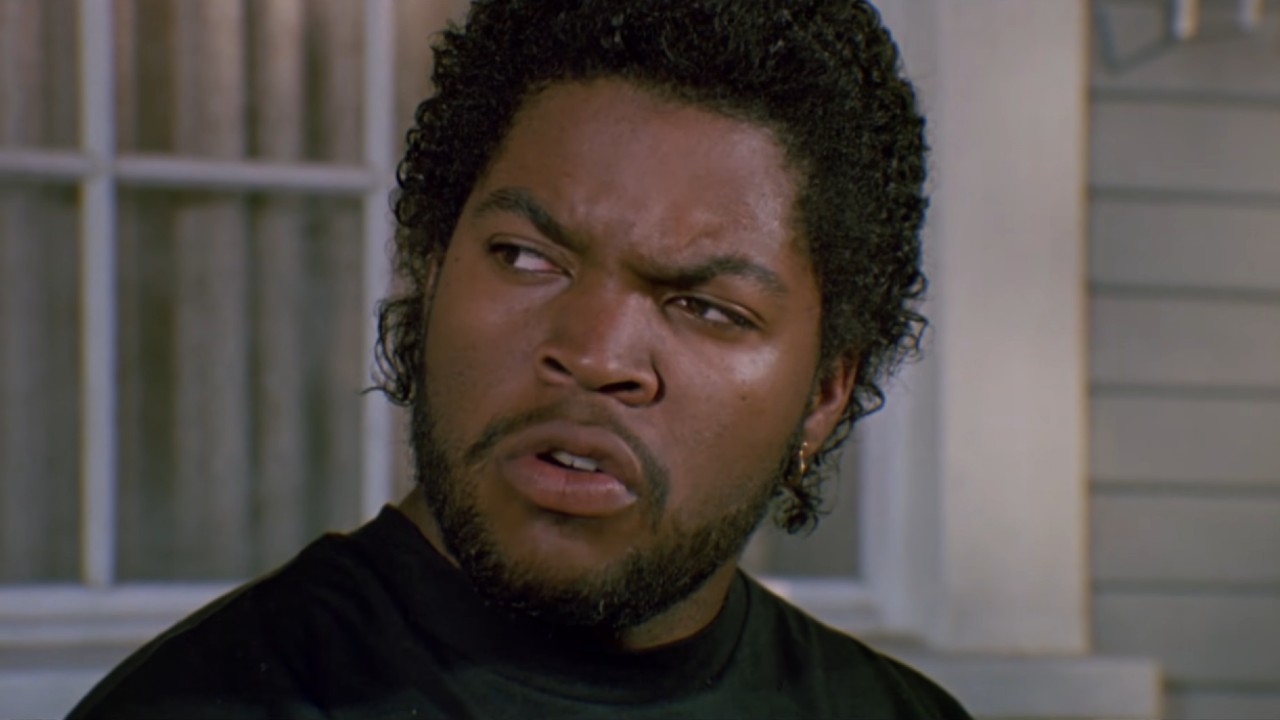
50. Boyz n the Hood (1991)
Relatively few directors made great movies on their first try, and the late John Singleton did just that with 1991’s Boyz n the Hood. Set in South Central Los Angeles, the film centers on three young men, whose paths begin to diverge as they steadily approach adulthood. Singleton, who also wrote the Oscar-nominated drama, provided a nuanced look at life in a low-income neighborhood.
In doing so, he shed light on gang violence, systemic racism, and other elements that still negatively impact many communities today. For better or worse, this well-acted and directed film is as timeless and relevant as they come.
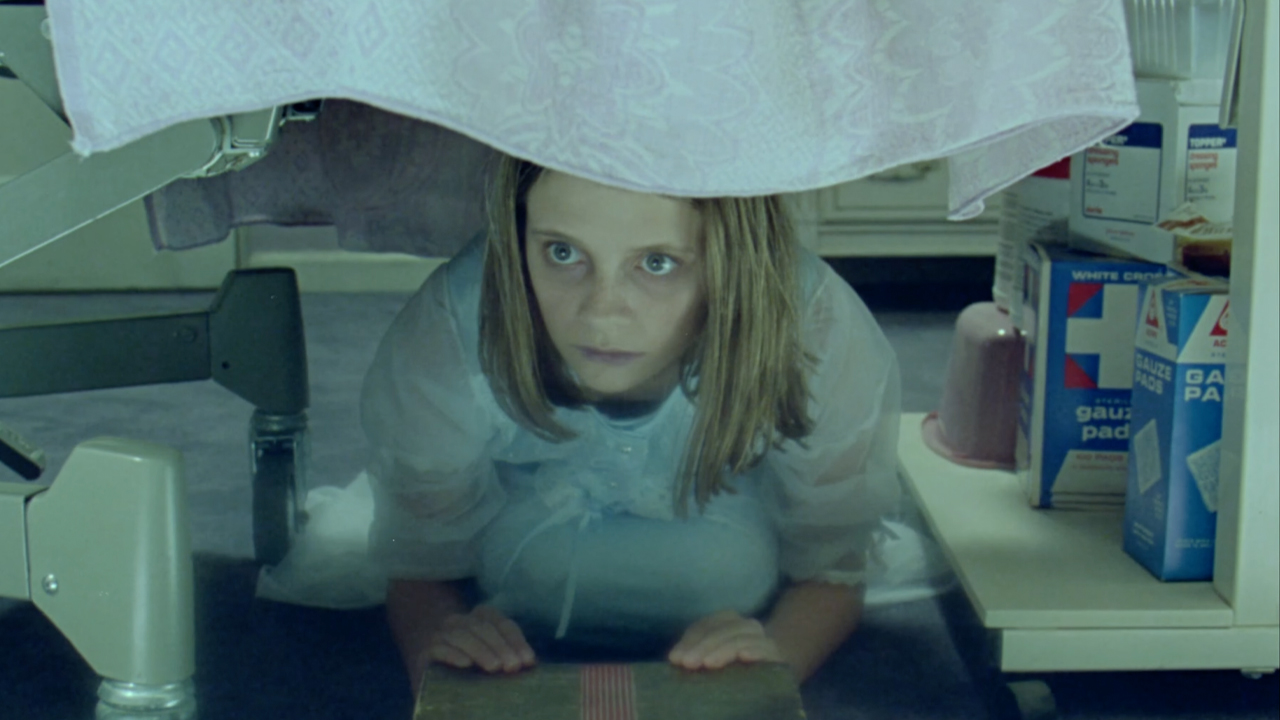
49. The Sixth Sense (1999)
While the ending twist may have helped put the film and its director, M. Night Shyamalan, on the map near the close of the decade, The Sixth Sense is so much more than those final, incredible moments where all of the pieces fall into place (in a scene that comes after we think the story has been mostly resolved).
What elevates The Sixth Sense to ‘90s movie greatness is the combined efforts of the stellar performances of Bruce Willis, Haley Joel Osment, Toni Collette, and Olivia Williams; of the music combined with the fantastic shots; of the use of the Philadelphia backdrop. Every scene taps into something dark, scary, heartbreaking or humorous, and the best go for a little bit of all of those things at once.
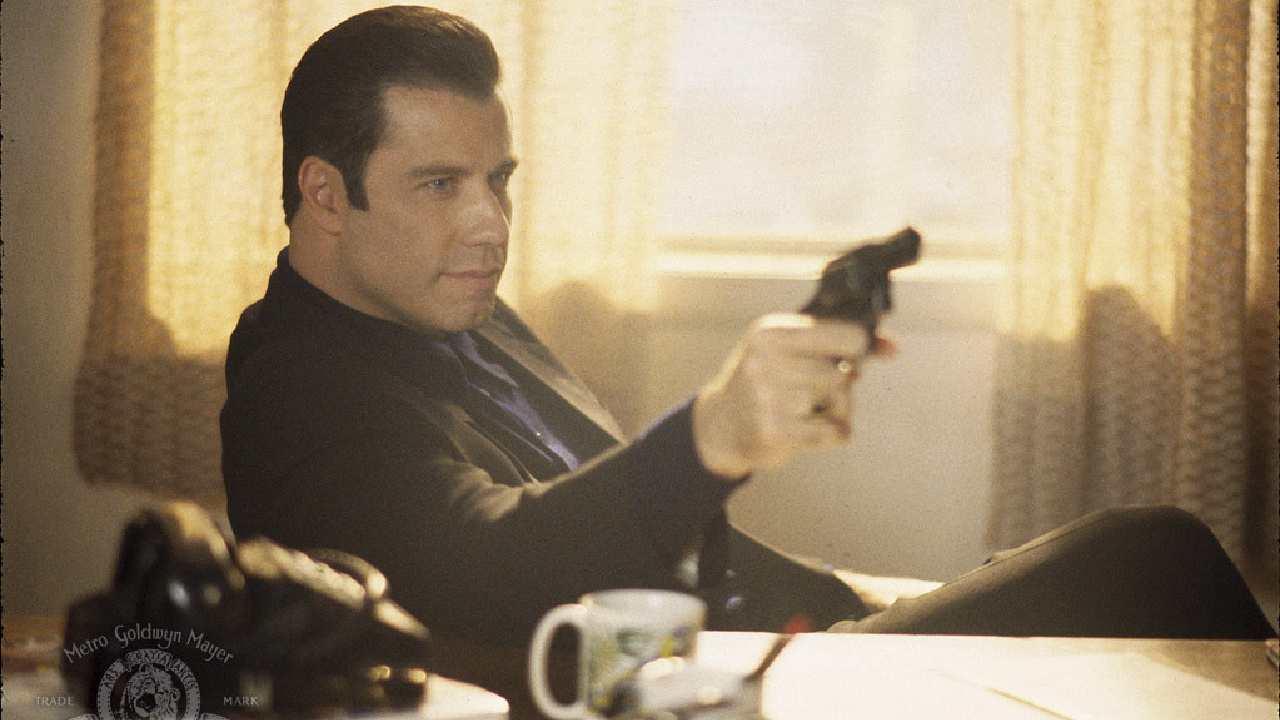
48. Get Shorty (1995)
What is the best Elmore Leonard adaptation? There are many candidates that qualify for consideration, including Quentin Tarantino’s Jackie Brown, Steven Soderbergh’s Out Of Sight and the TV series Justified, but Barry Sonnenfeld’s Get Shorty is my uncontested contender for the title.
It’s a dark, cynical, and hilarious take on the film industry where a shylock finds himself right at home in Los Angeles, and it brims with exceptional characters – from John Travolta’s Chili Palmer to Gene Hackman's skeezy producer Harry Zimm, to James Gandolfini's stuntman-turned-heavy Bear. The sequel that came out a decade later, 2005’s Be Cool, is dreadful, but that has thankfully not tainted its predecessor’s stellar legacy as one of the great “Hollywood on Hollywood” movies.
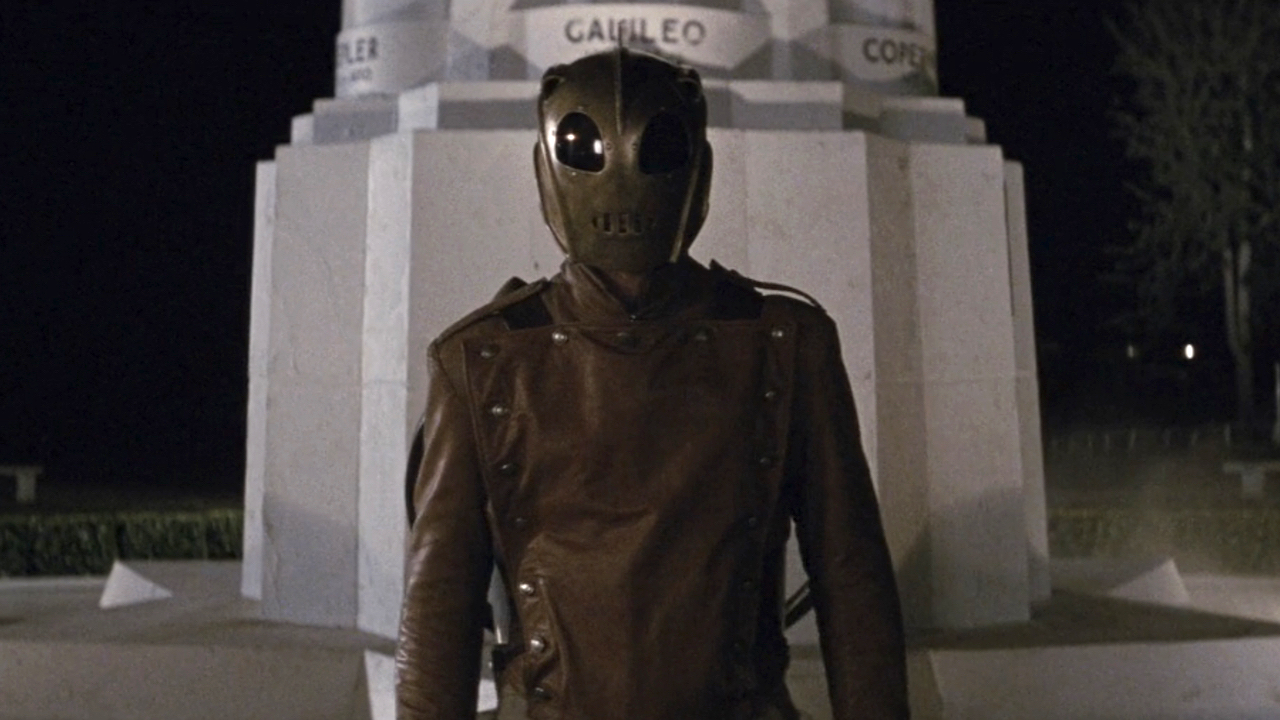
47. The Rocketeer (1991)
Believe it or not, The Rocketeer is a comic book movie. In the wake of the blockbuster success that was Batman, studios scrambled to get their own piece of that four-paneled pie; leading a pre-Marvel Disney to adapt Dave Stevens’ pulpy ‘30s throwback. Hoping this movie would be the studio’s answer to Bat-mania, director Joe Johnston’s picture suffered in the obscenely crowded summer of 1991.
Over time, fate has been kinder to the Billy Campbell and Jennifer Connolly adventure, as it developed into a cult classic much like the original Tron. Even if audiences didn’t flock to it at first, the message was never lost, because the quality was always there. Best experienced with a heart full of nostalgia and courage, The Rocketeer's mere existence is worth celebrating.
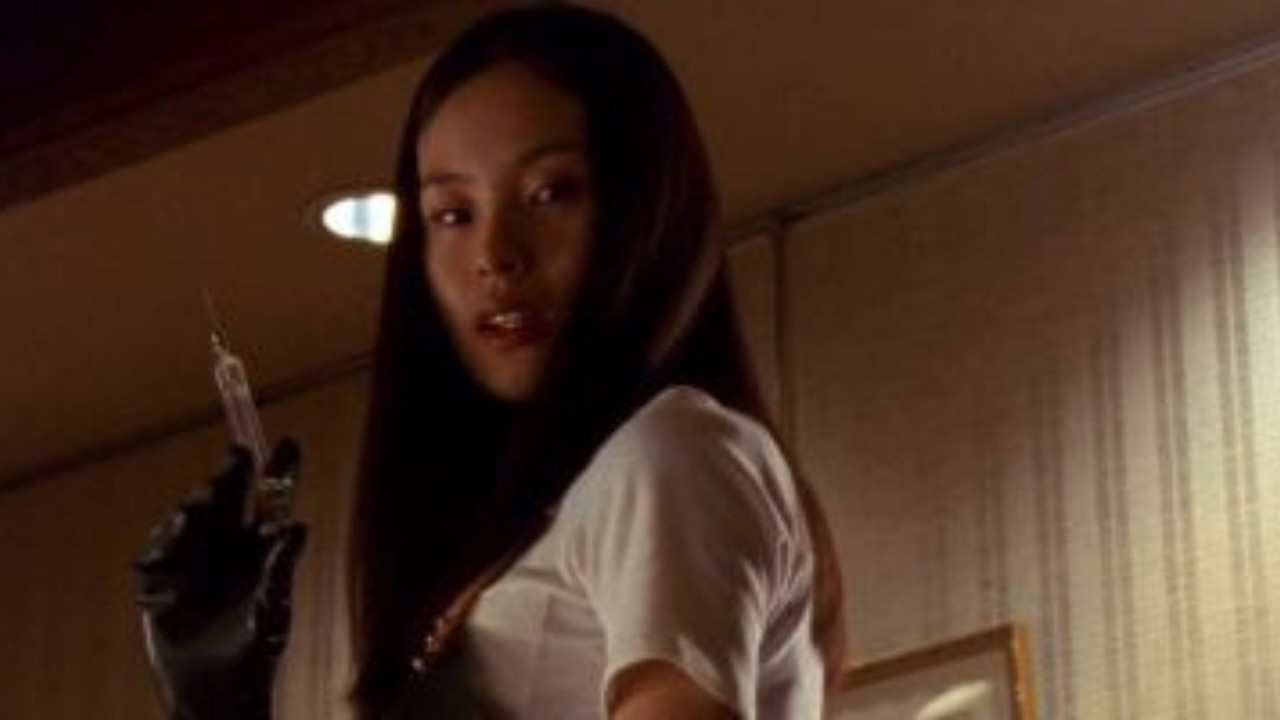
46. Audition (1999)
Few movies start off as unassuming as the psycho-horror Audition, whose first half sits among the legendarily prolific Takashi Miike’s most restrained directorial efforts. The story begins with Ryo Ishibashi’s widower Shigeharu Aoyama re-entering the dating world in the least natural way possible: via auditions with women who believe they’re vying for an acting role.
Things progress in an almost mundane manner as Shigeharu becomes more attracted to the quiet and seemingly reserved Asami (Eihi Shiina), but with enough peeks into her home life to send red flags waving. What makes Audition a unique ‘90s treasure is when the wheels fall off for its dread-flooded final act, in which Asami teaches Shigeharu a torturous lesson in stringing women along. Don't try this at home.
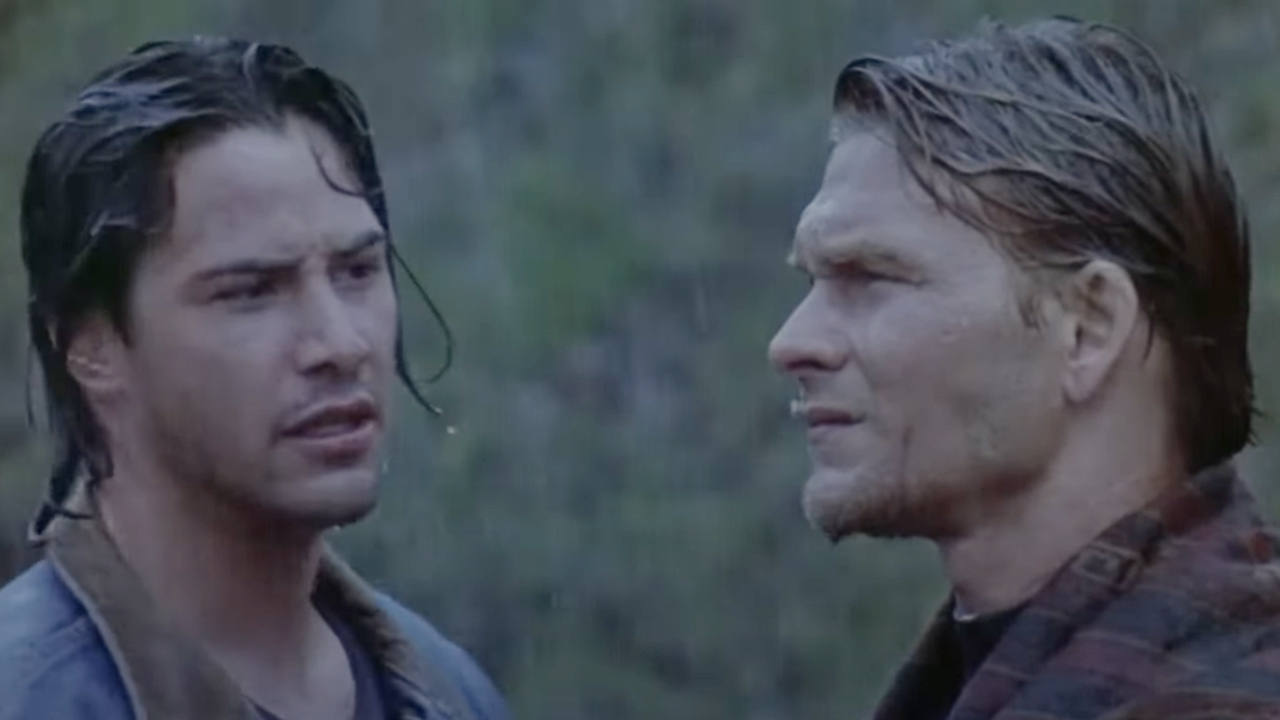
45. Point Break (1991)
Comically manly, but in the best ways possible, Point Break is the 1990s encapsulated. Clean-cut FBI agent Johnny Utah (tremendous character name) loses himself undercover when he tries to infiltrate a gang of surfers (tremendous plot twist) who may be posing as former presidents of the United States and robbing banks. What an awesome plot. And what an awesome movie.
Keanu Reeves and Patrick Swayze are the Yin and the Yang of Southern California cool, tapping directly into the “Brah” of it all while also delivering unforgettable action set pieces – notably, a skydiving chase without parachutes. Credit most of this to director Kathyrn Bigelow, who eventually won her Best Director Oscar for 2010’s The Hurt Locker.
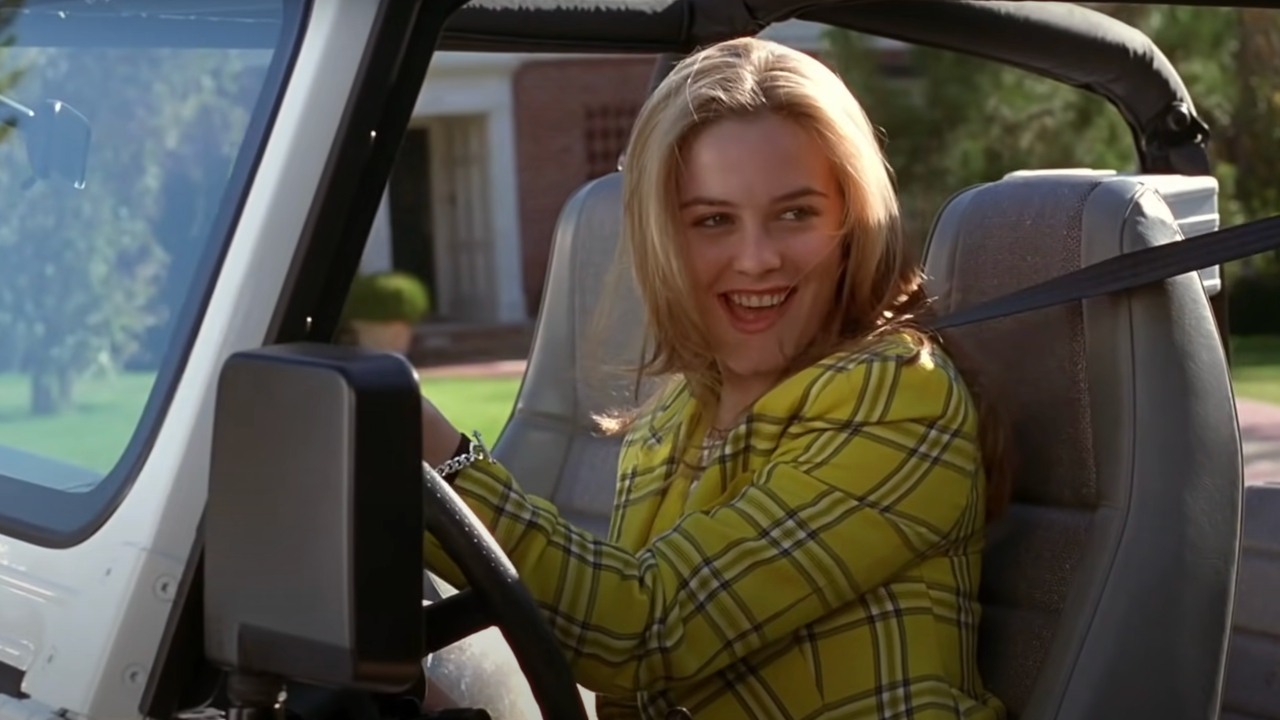
44. Clueless (1995)
We’ve seen movies put a new spin on old classics before, but rarely has the result been as entertaining as Clueless, Amy Heckerling’s take on Jane Austen’s Emma. Alicia Silverstone stars as Cher, a beautiful and rich Beverly Hills high school fashionista who decides she wants to use her popularity for the betterment of humanity.
The 1995 coming-of-age comedy — which also stars Stacey Dash, Brittany Murphy, Paul Rudd and more — still stands up today with its iconic looks and quotable dialogue (not to mention Cher’s inspiring speech comparing refugees to guests at her father’s garden party). And has there ever been a movie takedown more savage than Tai calling Cher “a virgin who can’t drive”? As if!
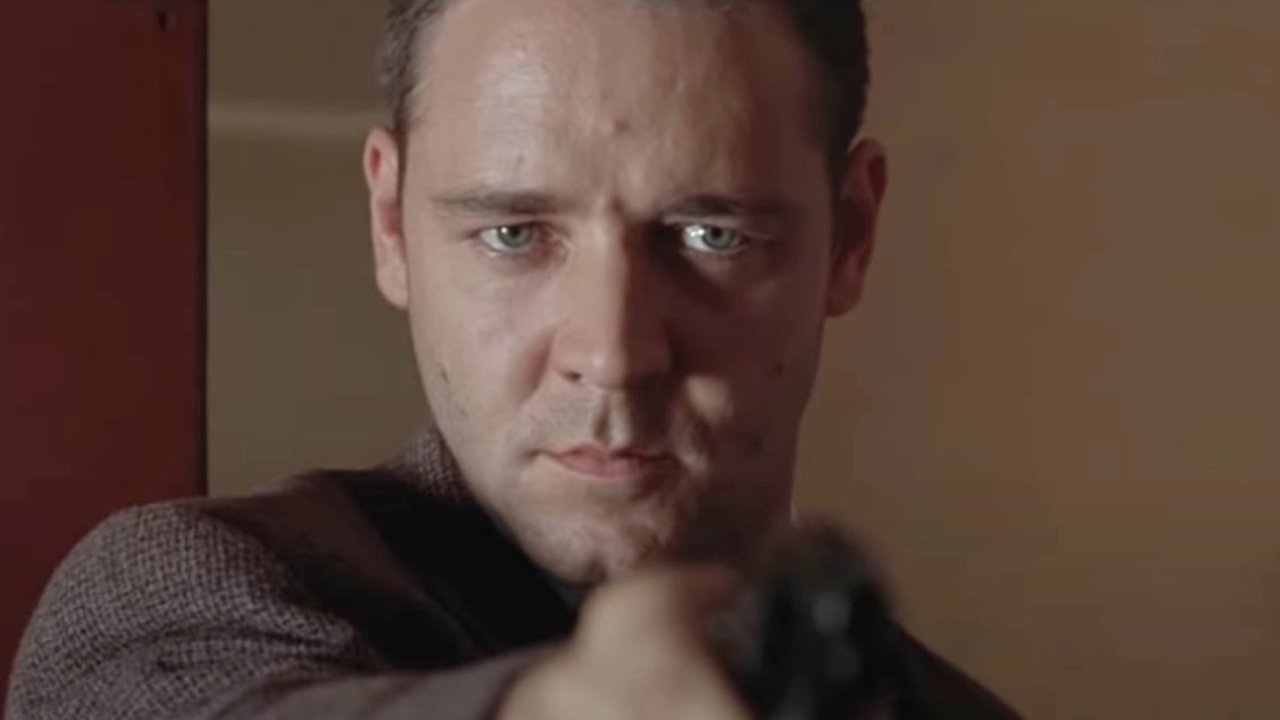
43. L.A. Confidential (1997)
Once upon a time, the noir detective story was a staple of film, but fewer and fewer examples have emerged with each decade that passes. So when a movie like Curtis Hanson's L.A. Confidential comes around, you really begin to wonder why we don’t see more of these.
It’s an absolutely incredible film that likely would probably be better remembered if it hadn’t come out the same year as Titanic. On top of everything else, the film introduced Russell Crowe and Guy Pierce to U.S. film audiences, and for that alone, it should be recognized, but it also won Kim Basinger an Oscar for a reason.
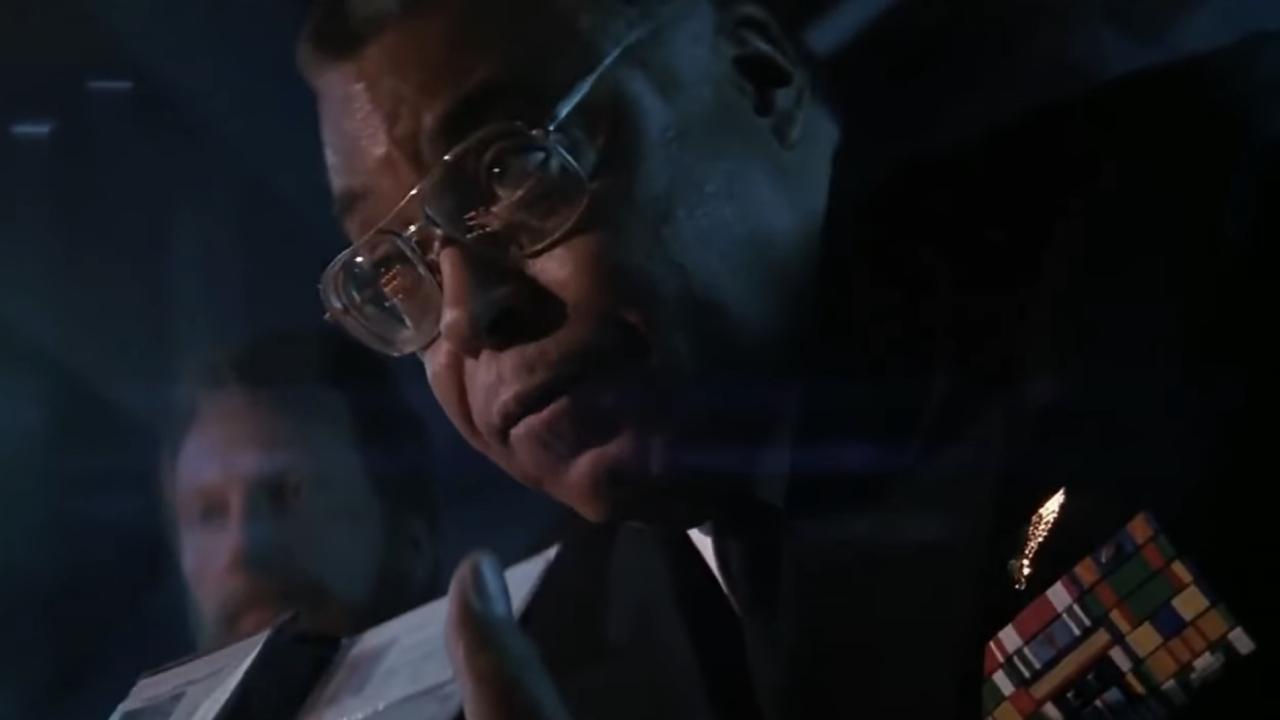
42. The Hunt for Red October (1990)
While The Hunt for Red October was a huge success when it hit theaters in 1990, it took years for people to see it as a classic. It’s not a flawless movie. Sean Connery, as amazing as he is, plays what appears to be a Scottish Russian, not changing his accent at all. The underwater scenes of the special effects submarines, while praised at the time, have not aged well, either. Accents aside, the actors are all superb here.
Alec Baldwin as Jack Ryan, Tim Curry, Sam Neill, Scott Glenn, James Earl Jones, Stellan Skarsgård, Fred Thompson, Courtney B. Vance, and everyone else are all amazing, and John McTiernan’s direction is snappy and perfectly paced. This is THE submarine movie.
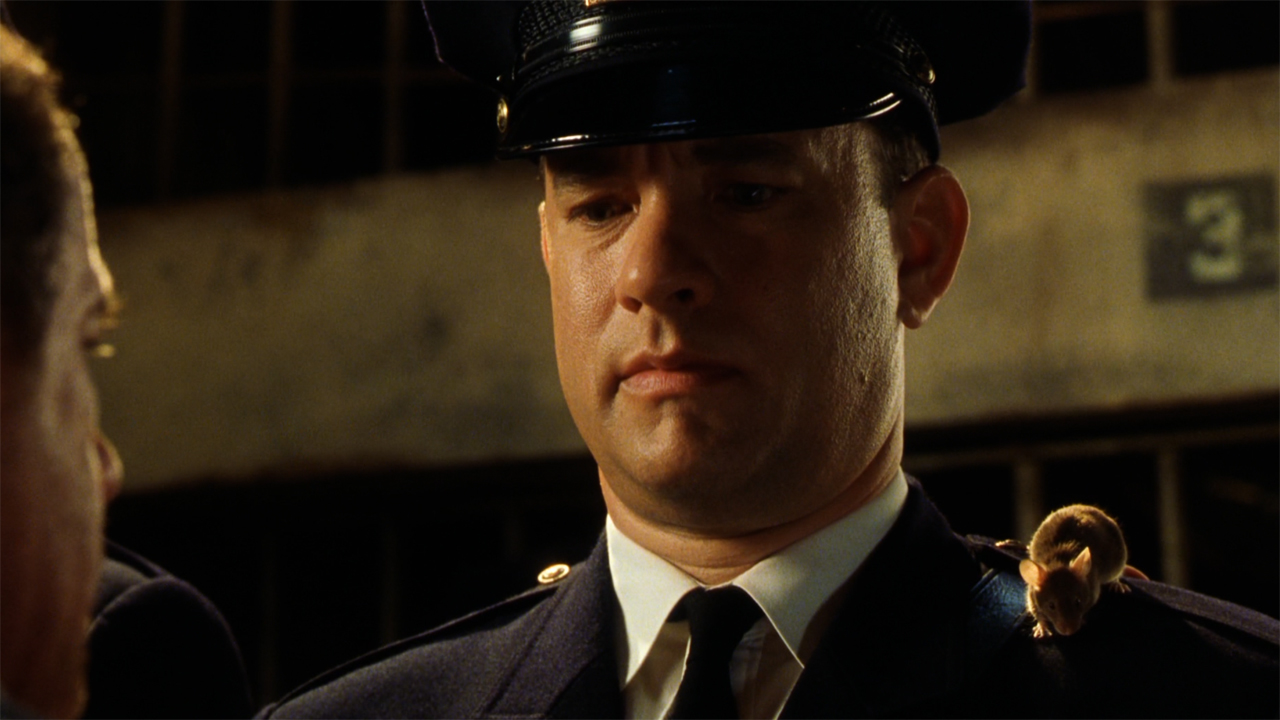
41. The Green Mile (1999)
Considered one of the best Stephen King adaptations of all time, The Green Mile is a fantasy drama directed by Frank Darabont, telling the story of a wrongly convicted man and his time at a prison in the 1930s and the strange supernatural events that follow his arrival.
I feel like The Green Mile is just one movie everyone should watch at least once. It's a classic for a reason, featuring all-time career performances from Tom Hanks, Sam Rockwell, and Michael Clarke Duncan. The Green Mile will capture your heart and crush it into a million pieces by the end – and might just make one admire the horror-driven Stephen King all the more for writing such an emotional story. If you're not ugly sobbing by the end of this, you may not be watching it right.
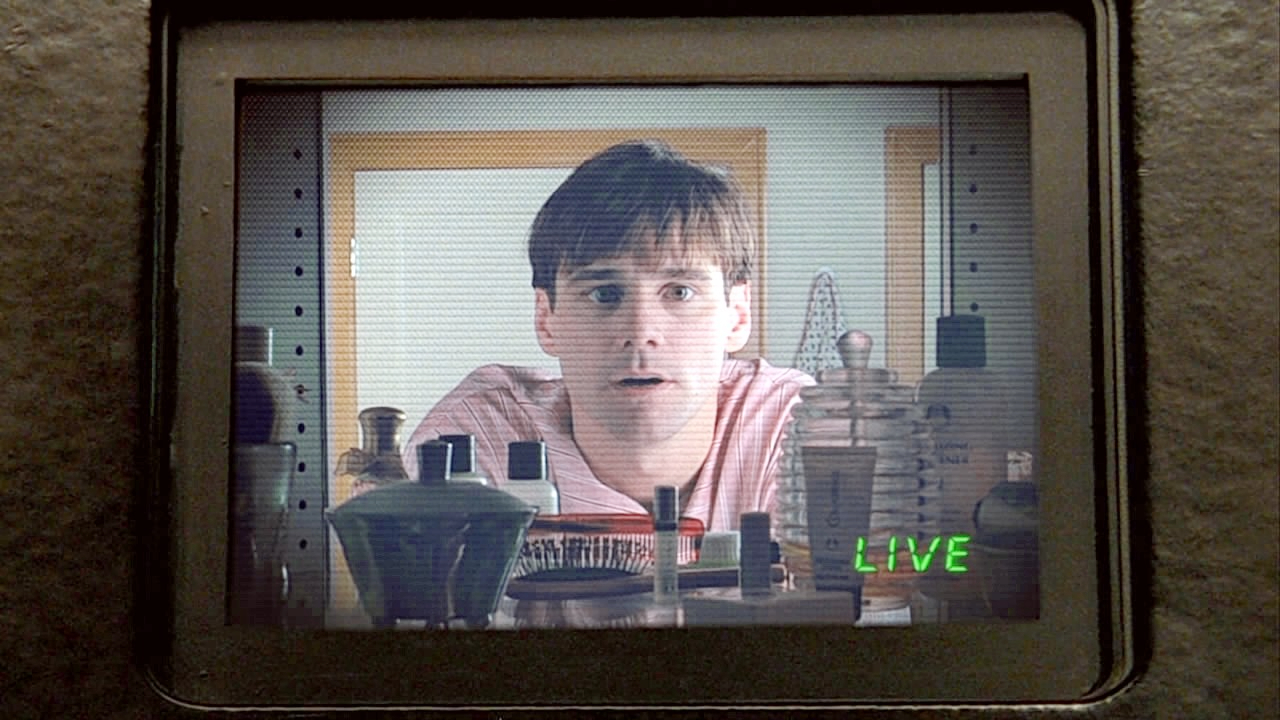
40. The Truman Show (1998)
Easily considered one of Jim Carrey’s best movies, The Truman Show – which is about a man who realizes his reality isn’t real – uses its star’s signature over-the-top sense of humor and physicality to make you laugh. Then his dramatic skills come to the forefront as you take this journey with Truman, and you feel all the emotions as it becomes clear that this comedy is more of a searing satire.
Overall, this film is about Truman coming to terms with the fact that the world’s been watching him live in a simulated reality, and it gives us all an example of how exploitative social media can be. That’s why The Truman Show is not only one of the best movies of the ‘90s, but it’s also one of the more relevant films when it comes to the present.
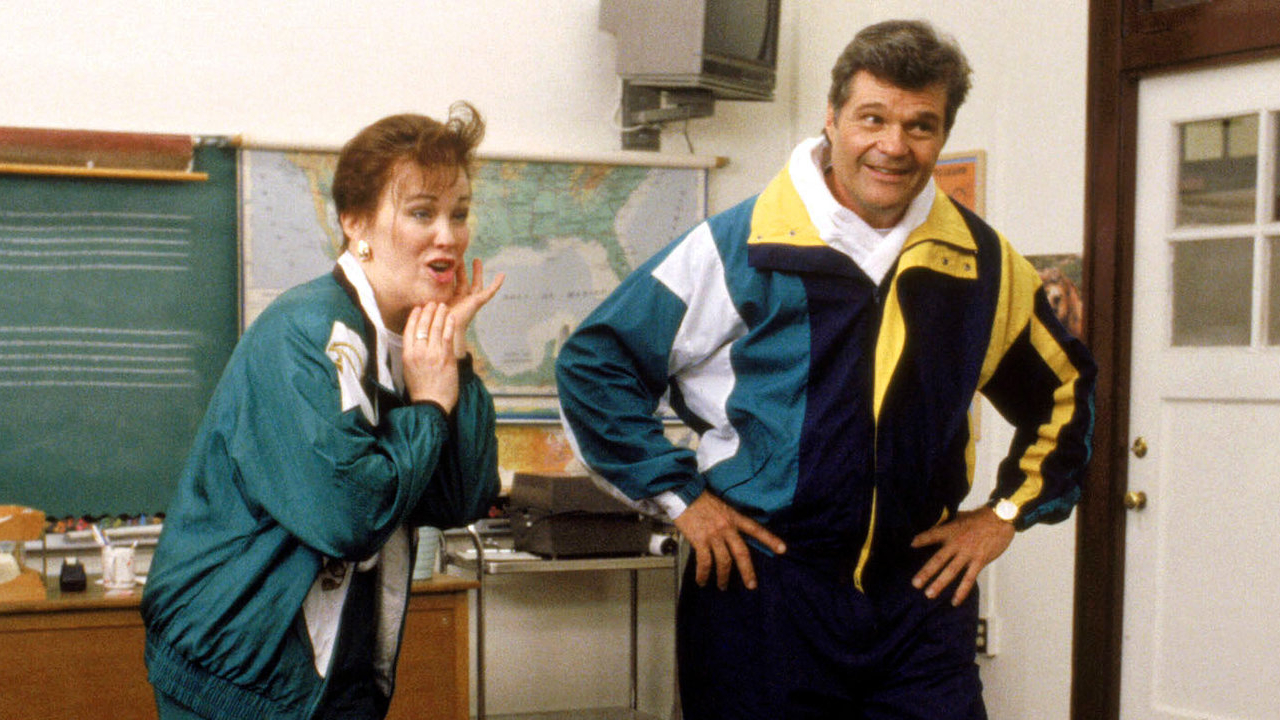
39. Waiting for Guffman (1996)
Waiting for Guffman is mockumentary gold. Christopher Guest and his group of comedic geniuses — Catherine O'Hara, Eugene Levy, Parker Posey, etc. — bring the sleepy berg of Blane, Missouri to life, with the audience watching as a motley crew of community theater actors put on a musical about their town.
The stakes get higher when Guest's Corky St. Clair tells everyone a Broadway production house is coming, and "we may be going to Broadway." The songs are insane, the cast is unhinged, and this movie is heaven; even more so for those who are personally familiar with the madcap process of staging plays.
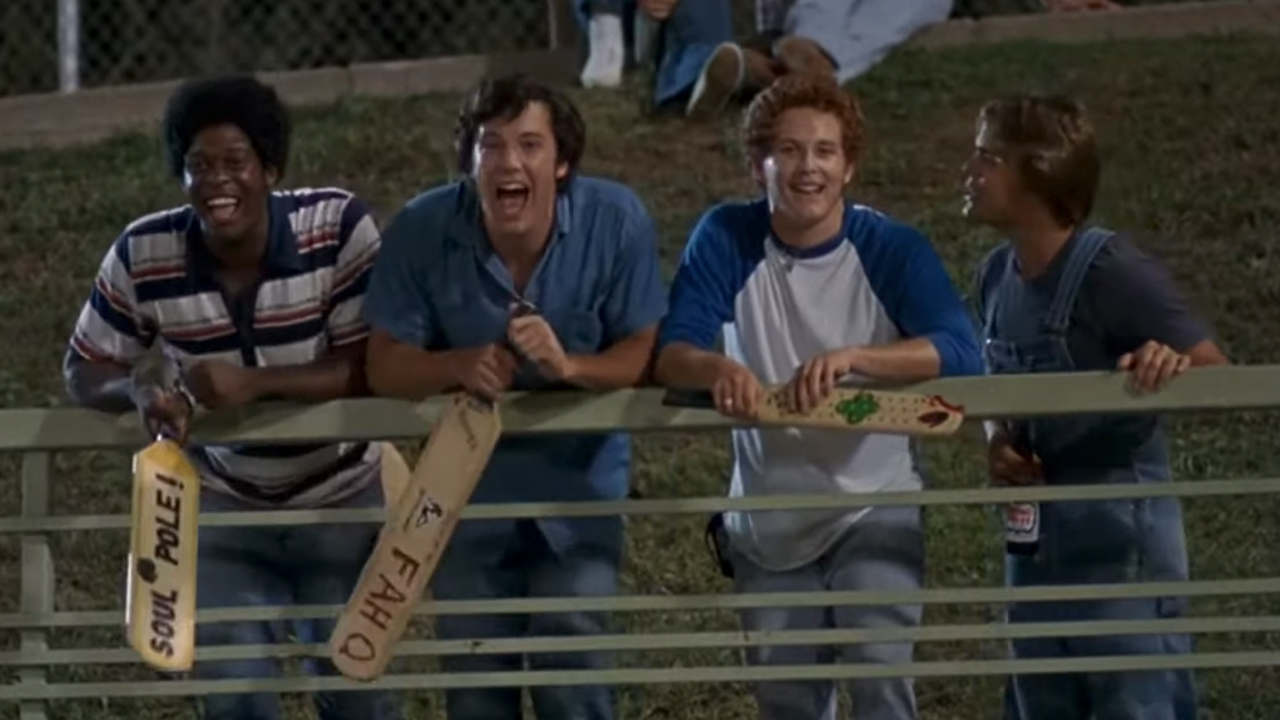
38. Dazed and Confused (1993)
It’s really hard to make a comedy that stands the test of time, yet as we get older, Dazed and Confused stays the same age, er, quality. Director Richard Linklater’s love letter to his teen years in Texas transcends generations and keeps fans coming back again and again. Sure, it’s the 1970s, but teenagers (and adults) of any generation can relate.
Of course, it also helps that so many huge stars got their first big break in the movie, including Matthew McConaughey in his first role. Ben Affleck, Parker Posey, Cole Hauser, Anthony Rapp, Rory Cochrane, Nicky Katt, and the rest of the cast are amazing. Everyone can point to one character and say “I knew someone just like that in high school!”
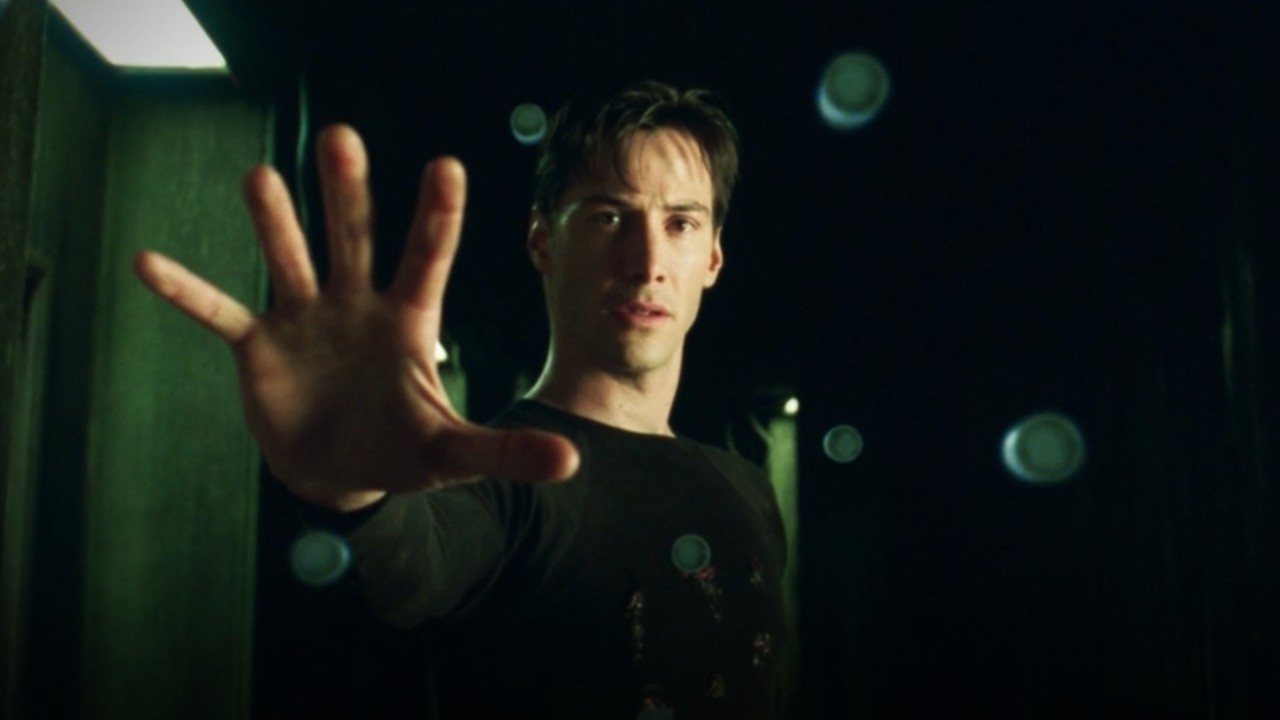
37. The Matrix (1999)
It’s hard to put into words just how mindblowing The Matrix was when it first came out. Of course, the successive sequels somewhat diminished the franchise’s legacy as a whole, though make no mistake, the first movie is just as much of a thrill in the modern era as it was back in 1999.
Keanu Reeves is the ultimate leading entity in the Wachowskis' game-changing mega-blockbuster, making every move look as cool as can be. Because of the filmmakers' work on this neo-classic (no pun), people will forever be cursed with the idea that everything we’re doing in life is a simulation, and that we’re all slowly and secretly being harvested in pods for energy by robotic overlords. Great movie, though.
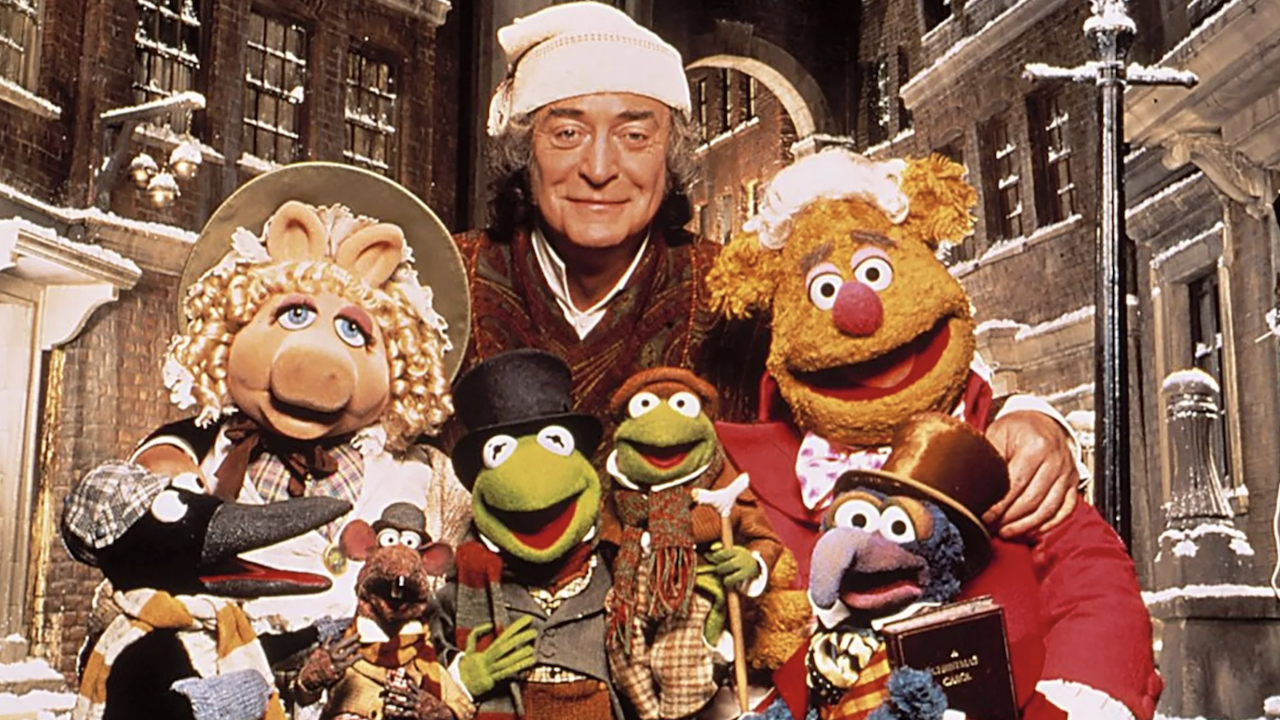
36. The Muppet Christmas Carol (1992)
Two years after Jim Henson’s death, son Brian Henson directed arguably the only truly great Muppets release of the entire 1990s: The Muppet Christmas Carol. (Excluding the final two years of Muppet Babies.) Based on the Charles Dickens novel that has spawned countless numbers of adaptations, the holiday film is anchored on the human side by Michael Caine’s Ebenezer Scrooge, and on the felt-covered side by Kermit and Miss Piggy’s Bob and Emily Cratchit, with Gonzo as Dickens himself.
Though it doesn’t offer any huge adjustments to the source material, the Muppets make everything twenty-fold more charming, and Statler and Waldorf’s ghostly jam “Marley and Marley” is among the best of any original Muppet tunes. Christmas just wouldn’t be Christmas without this movie.
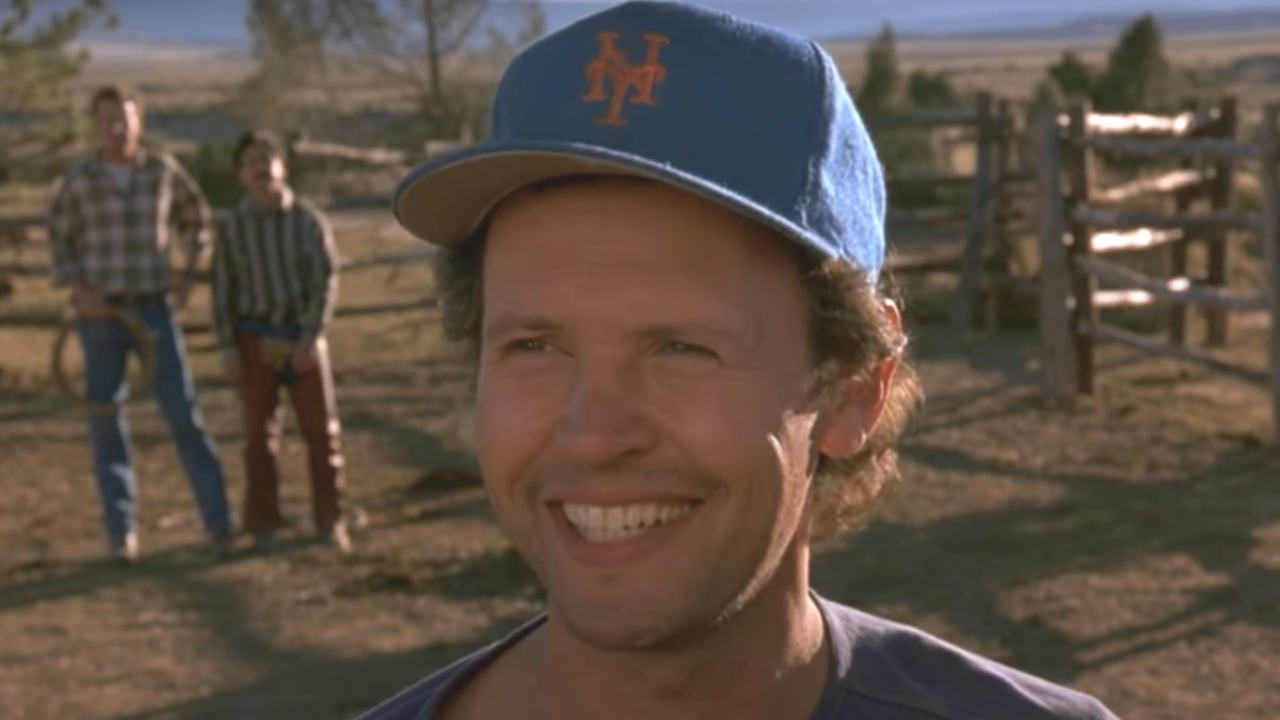
35. City Slickers (1991)
There are plenty of laughs to be had in Ron Underwood’s Western comedy City Slickers, and while that’s a safe bet for any of Billy Crystal’s best movies, what sets this one apart is its enormous heart.
Crystal’s Mitch Robbins, along with pals Phil and Ed (Daniel Stern and Bruno Kirby, respectively) are all suffering midlife crises of sorts when they embark on a cattle drive across the Southwest. It was refreshing to see the men open up to each other about their childhoods, relationships, and what matters most in life. Jack Palance gives an Oscar-winning performance as Curly, and the $124 million it earned at the domestic box office made it one of the top 5 movies of 1991.
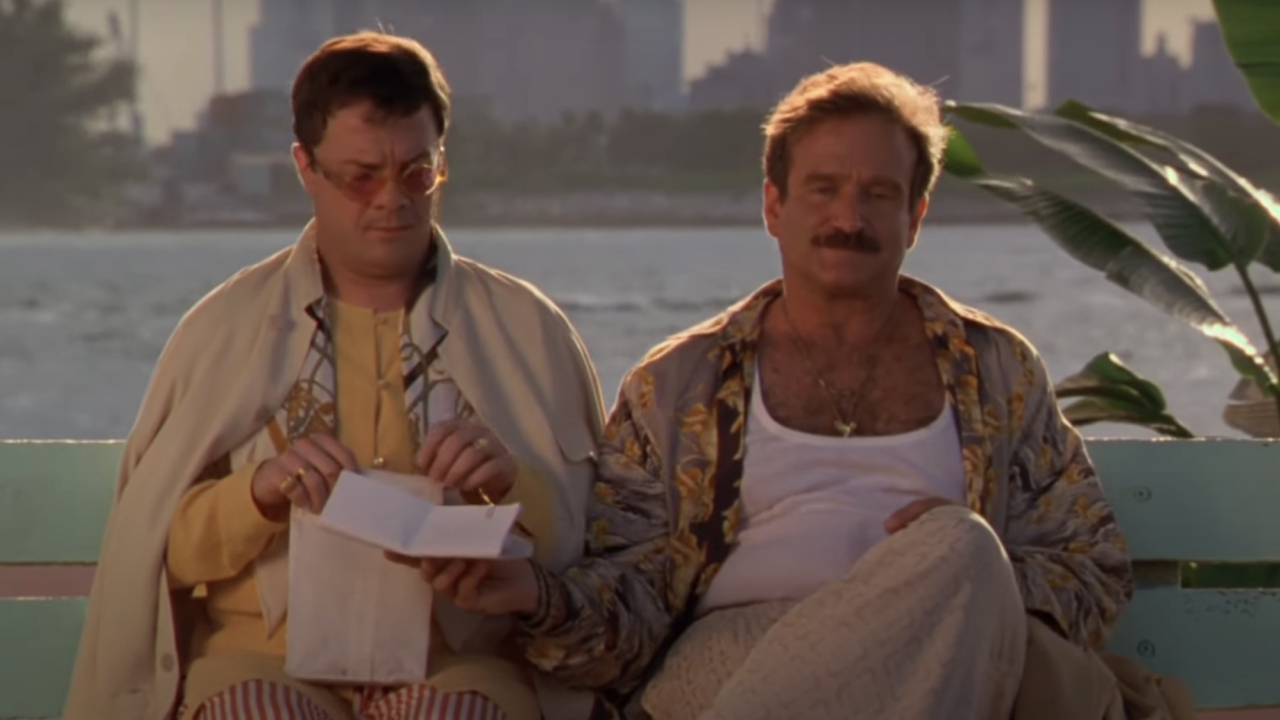
34. The Birdcage (1996)
Robin Williams was a brilliant comedian, a supernova of personality that could command our attention with his hysterical stream-of-conscious thoughts. But Williams, to me, truly shined bright when he downplayed his natural comedic energy to either try serious drama (Good Will Hunting, Dead Poets Society), or to support an equally brilliant comedic performance – as he did with Nathan Lane in The Birdcage.
While broad and flamboyant at times, The Birdcage captures the heart of a family rallying behind their beautiful son (Dan Futterman) who is getting engaged to a Conservative girl (Calista Flockhart). Williams and Lane, as an on-screen couple, are tender, touching, funny, sweet, and perfectly paired in this special gem of a film.
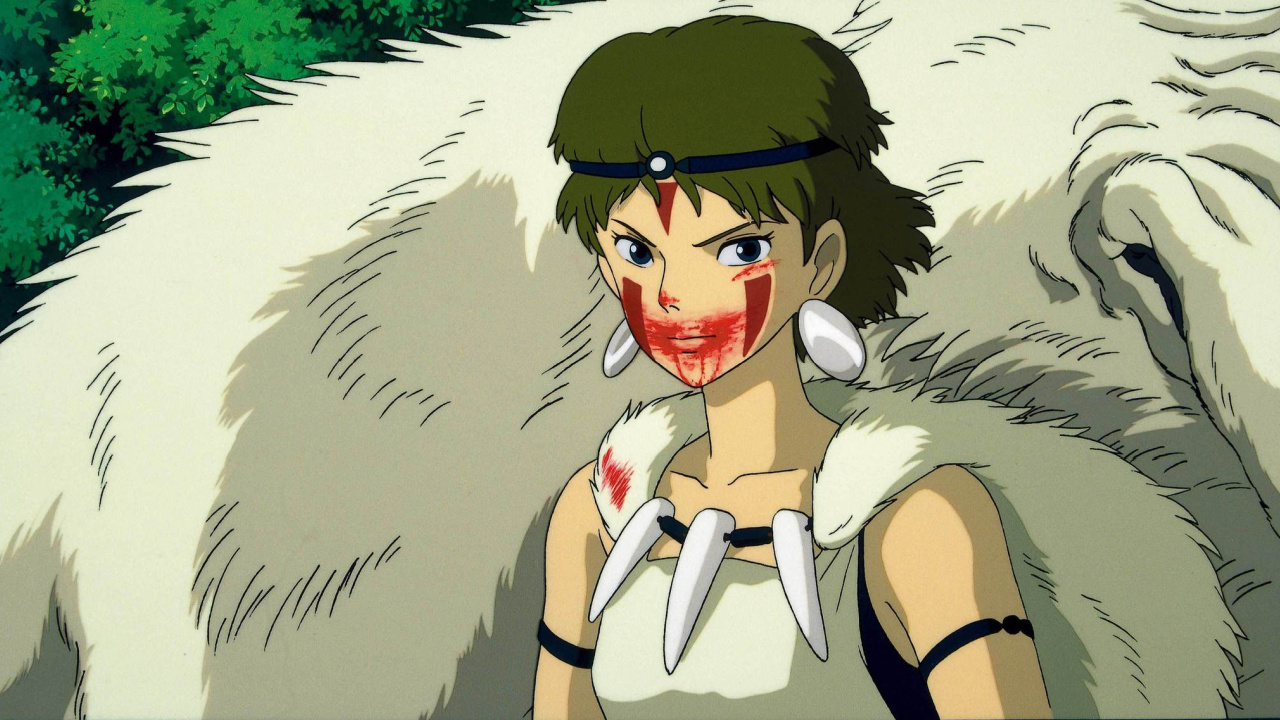
33. Princess Mononoke (1997)
As someone who has watched every single Hayao Miyazaki movie, there's something about Prince Mononoke that speaks deeply to my soul. While I possibly think Spirited Away is Miyazaki's best film, and I have a love for Howl's Moving Castle, this is a movie that has changed the way I view the world.
Princess Mononoke follows the story of a young prince who discovers that the gods of the forest are upset at the humans for consuming their precious resources. While the anime film itself has breathtaking animation and a story that pulls you in; both are equally sating while leaving a desire for more. Truthfully, this is the one movie that speaks on human consumption in simple ways that everyone should be required to watch.
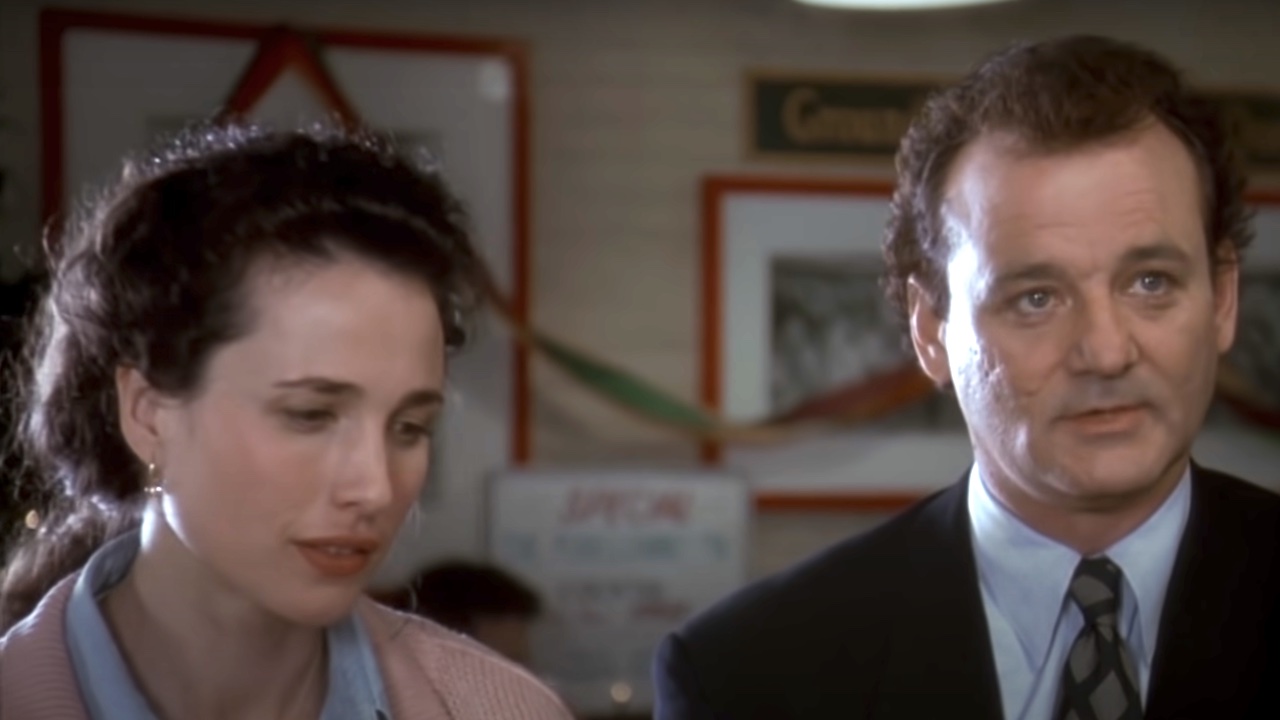
32. Groundhog Day (1993)
By all accounts, the creative process behind Groundhog Day was not easy. The film was originally conceived as a darker, more philosophical movie with independent sensibilities. That’s what Bill Murray liked. Director Harold Ramis saw it as more of a good-natured and broad comedy. So they fought about it, plaguing the shoot with delays, rewrites and enough acrimony to sever their friendship for decades.
Amidst that disharmony, or perhaps even because of that disharmony, the two comedy masters compromised and created a perfect blend of the two: a broad and funny romantic comedy that’s weird enough and dark enough to feel totally original.
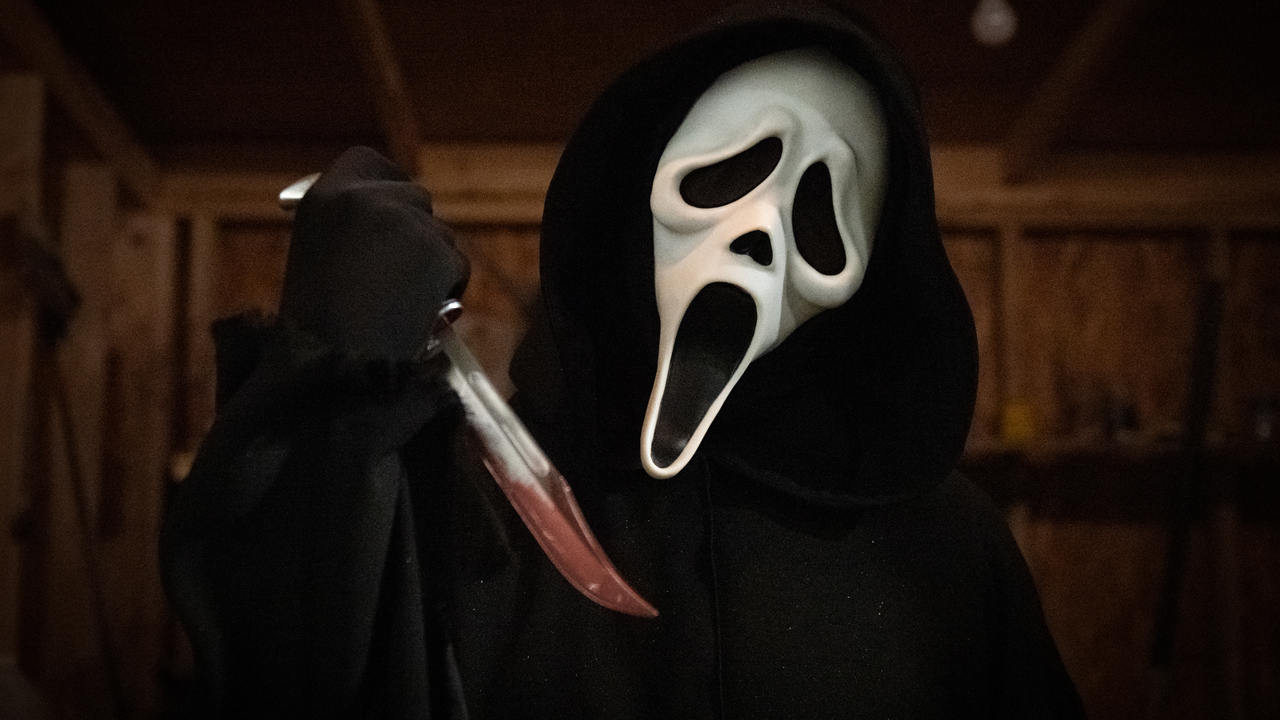
31. Scream (1996)
With A Nightmare on Elm Street and its two best sequels already under his belt (among many other frightfests), Wes Craven made horror franchise lightning strike twice with the post-modern whodunit slasher Scream, and it kept striking across two eras of sequels. Led by one of the ‘90s greatest scream queens in Neve Campbell, the 1996 classic became such a blueprint for Hollywood horror that the inciting film doesn’t feel anywhere near as novel as it did when audiences first sat down thinking they were about to watch “a Drew Barrymore movie.”
But that opening remains chilling AF, David Arquette’s Deputy Dewey remains a loveable dork alongside Courteney Cox’s hardcore bitch Gail Weathers, and Ghostface’s pop culture-tinged massacre has only become more relevant in an ever-connected world.
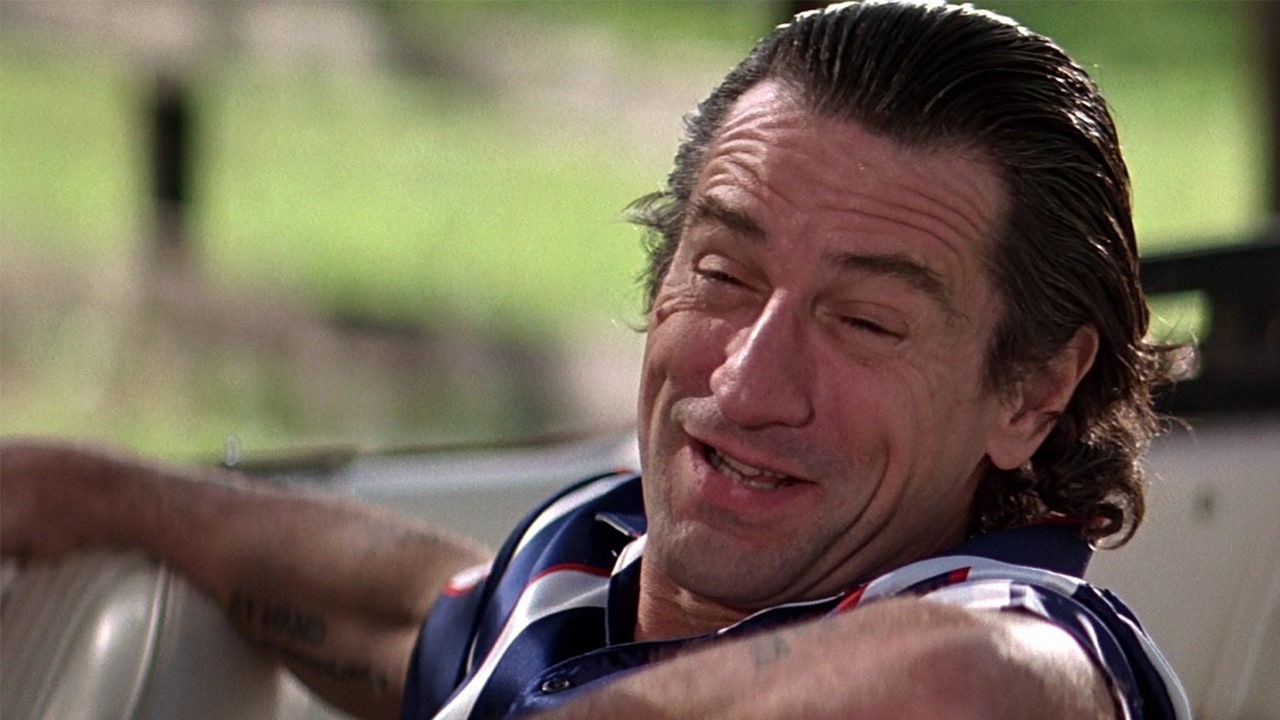
30. Cape Fear (1991)
I was way too young when I watched Cape Fear for the first time. I was experienced with plenty of slasher or jump scare style horror movies and figured I’d be fine. Wrong. Cape Fear is an entirely different type of scary than what I was used to.
With a prime Martin Scorsese at the helm and a fantastic all-in performance from Robert De Niro, it’s a relentlessly creepy and unnerving take on slow-burn vengeance. It haunted my sleep for weeks as a kid, and during an adult rewatch decades later, its themes of religion, underage sexuality, criminal justice and moral relativism were every bit as disturbing.
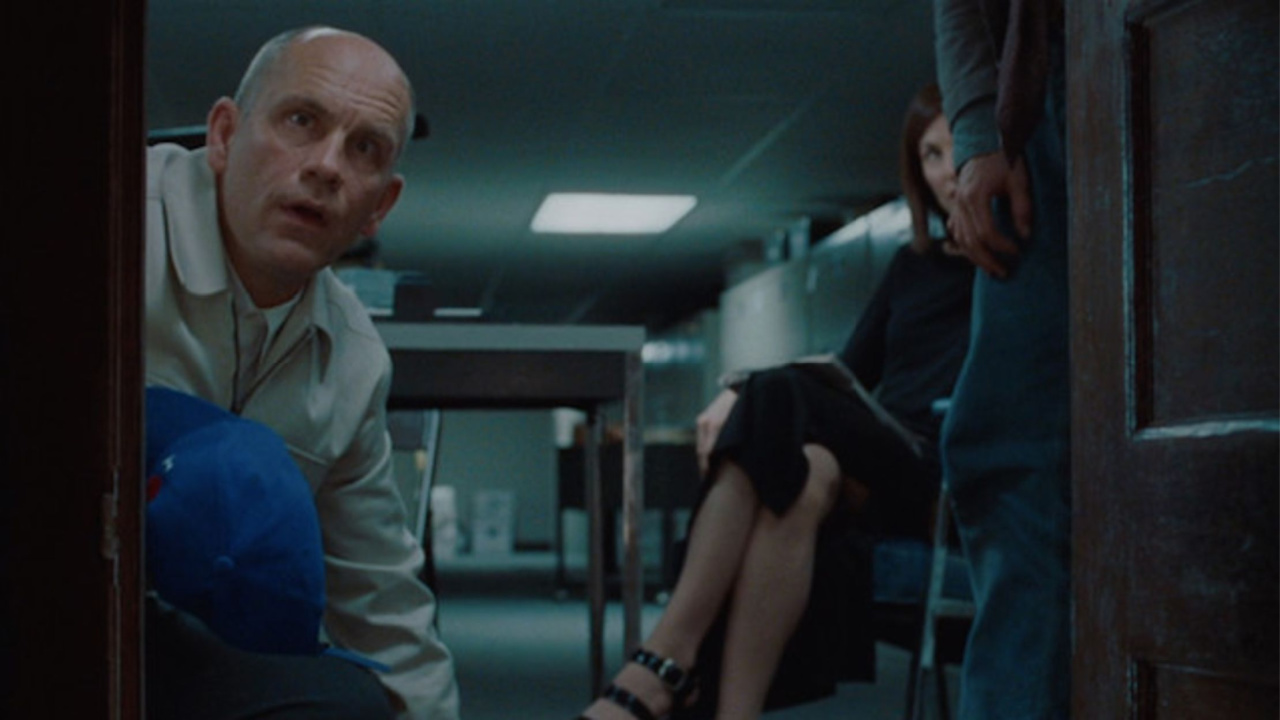
29. Being John Malkovich (1999)
Being John Malkovich may not be the very best ‘90s movie, but it may very well be the strangest that still qualifies as a great time. The premise itself — that a door exists allowing others to enter the mind of another person — is odd enough, but for the person whose brain is invaded to be celebrated actor John Malkovich?
That brilliant choice somehow gives the otherwise impossible story a slight jolt of realism, and it all comprises a cinematic experience that should not be missed. It’s also a movie full of incredible performances, as Malkovich plays a fantastic version of himself, while John Cusack and Cameron Diaz play against type about as much as possible.
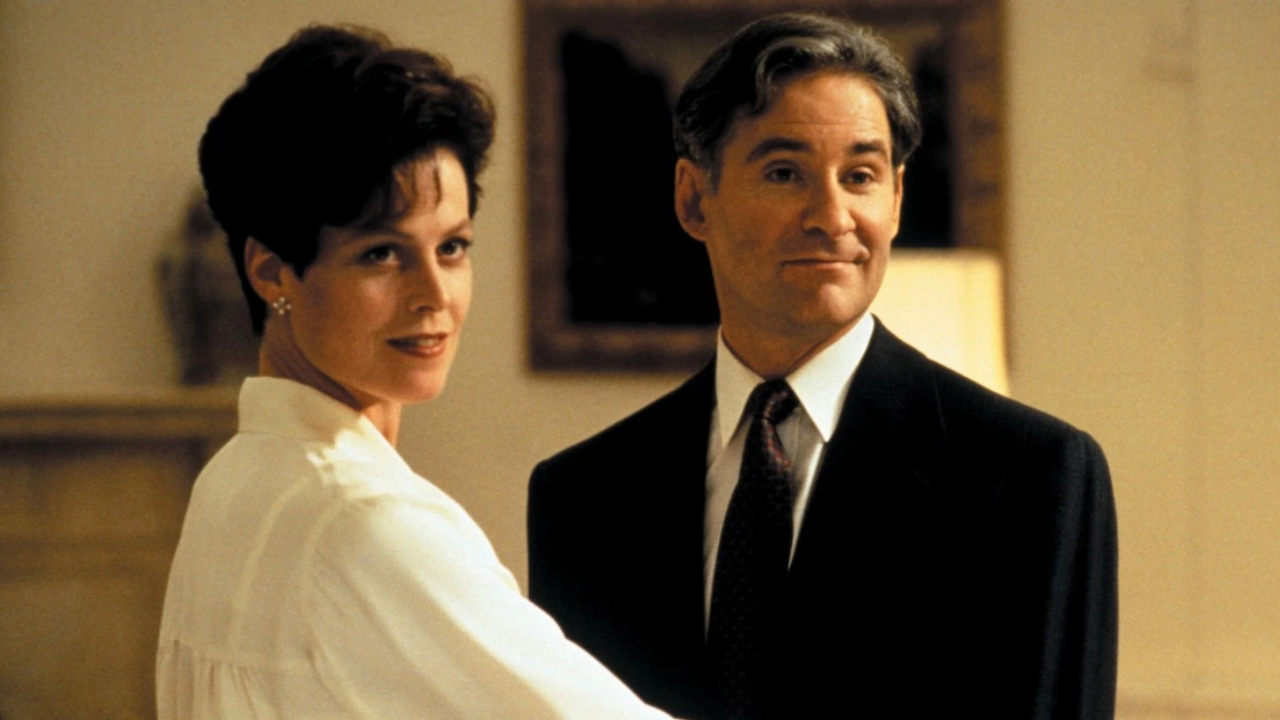
28. Dave (1993)
Probably the funniest movie that uses the presidential line of succession as a plot device, Ivan Reitman’s Dave is a hilarious, charming, and oddly sentimental exploration of politics in the early 1990s. There’s just something about Kevin Kline’s portrayal of Dave Kovic that makes this movie about a presidential impersonator becoming the Commander-in-Chief so innocent and pure, especially when compared to the political climate we live in 30-plus years later.
Whenever I revisit Dave every couple of years, it feels like opening a time capsule to the final decade of the 20th century with its optimism and promise of a better future.
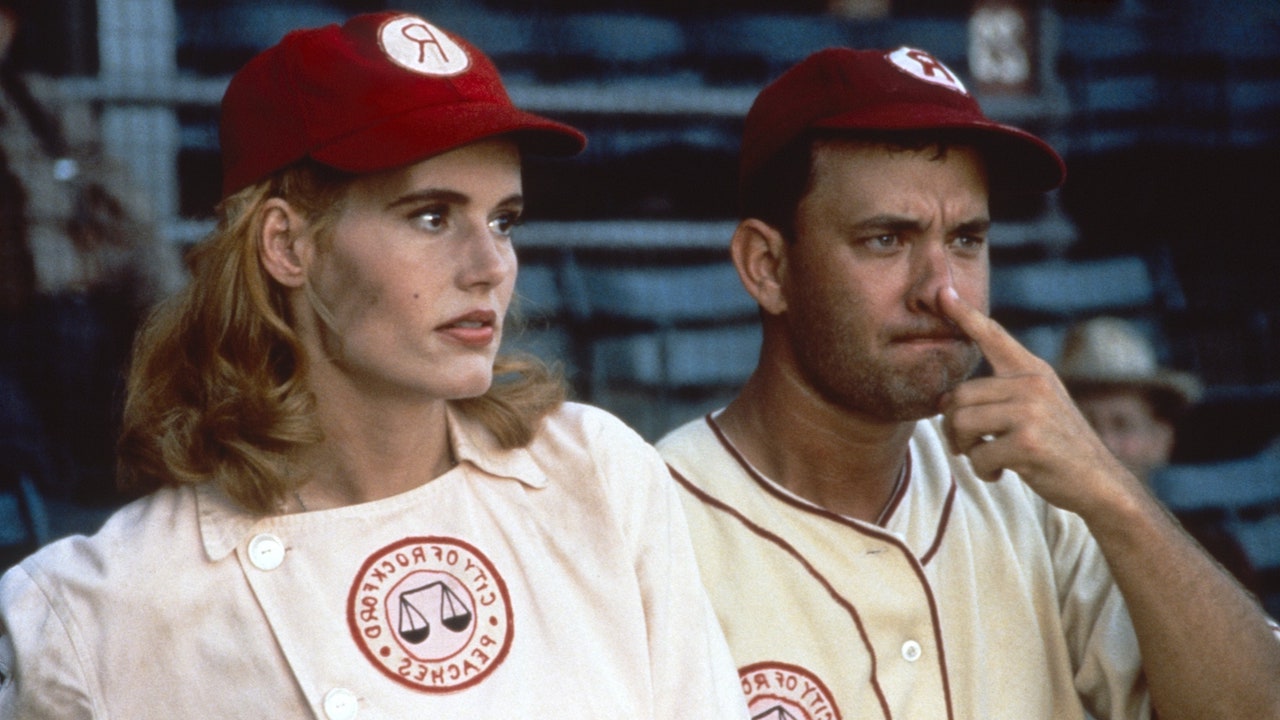
27. A League of Their Own (1992)
A League Of Their Own is too busy with meaningful character development and telling an awesome baseball story to go for jokes all the time, but on a per-attempt basis, I would put it up against almost any comedy ever made. Director Penny Marshall has a wonderful tonal sense of when her actors should play it straight, when they should add in a little humor, and when they should drunkenly pee for thirty seconds.
The result is one of the best sports movies of all time, one that delivers all those laughs but also plays it straight enough to give viewers fantastic and relatable plots about friendship, sisterhood, and what it means to thrive and find your own space.
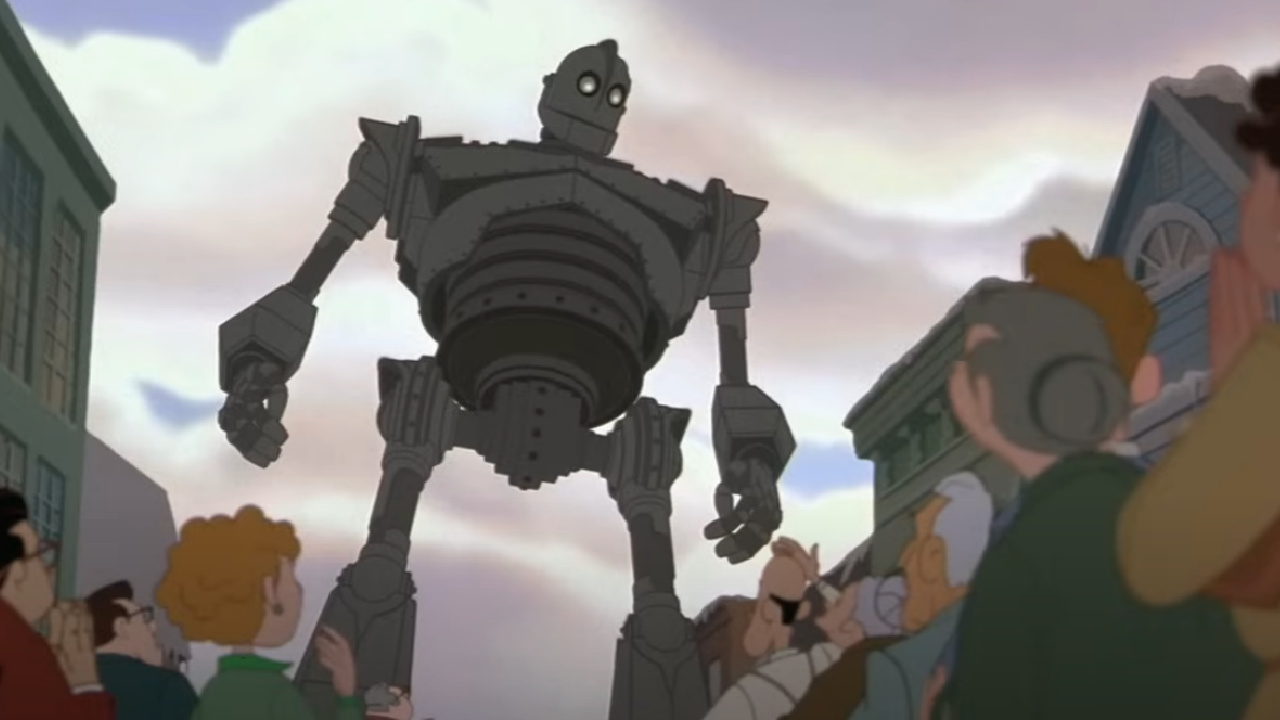
26. The Iron Giant (1999)
The Iron Giant is Brad Bird's heartstrings-pulling story about a young boy who befriends a massive alien robot in 1957, and it proves that a movie bombing at the box office doesn’t mean it can’t still become a cinematic classic. Though its theatrical run didn’t even make back the initial budget, thanks to its home video rollout and stellar word-of-mouth buzz, it’s now considered one of the best animated movies of all time. Rightly so, because this is one of those movies that remains timeless no matter when it’s being viewed.
Watching Hogarth teach the Giant about life on Earth and urge him to overcome his original purpose of being a weapon never gets old. The Iron Giant remains arguably Vin Diesel’s best movie from before the Fast & Furious franchise's launch, and co-stars like Eli Marienthal, Jennifer Aniston, Harry Connick Jr., and Christopher McDonald also shine.
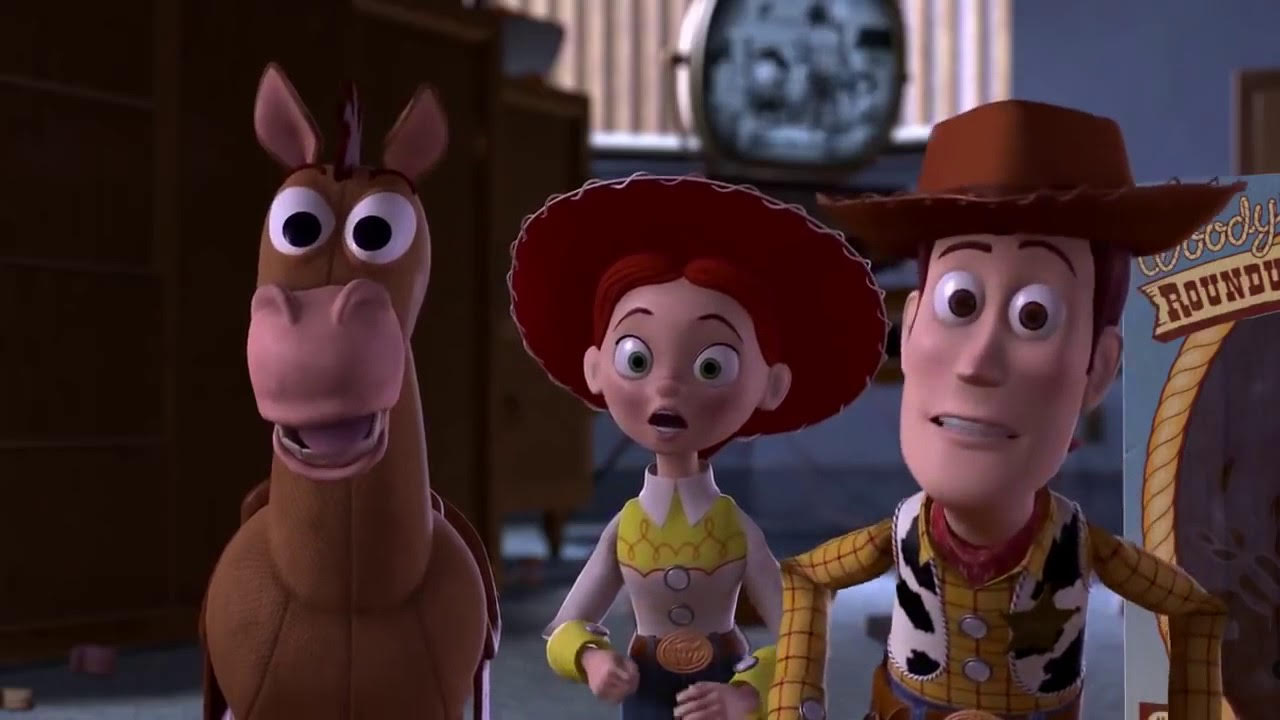
25. Toy Story 2 (1999)
I remember that Toy Story 2 was the first film that made me uncontrollably sob – like fat tears rolling down my face and having a stuffy nose for hours afterward, and I'm sure I'm not alone there. A sequel to Toy Story, which took the world by anthropomorphic storm with its industry-revolutionizing animation, the follow-up adventure was released in 1999, and follows Woody after he is accidentally sold to a toy collector. There, he meets companions from a former TV show that he had no idea about – a show all about him. (And Joan Cusack's Jessie, of course.)
The Toy Story 2 voice cast is stellar, and the animation was a huge step forward in CGI films, but the heart-wrenching story of love, friendship, and so much more is what made Toy Story 2 one of the best Pixar films out there – and yes, I still cry during, "When Somebody Loved Me."
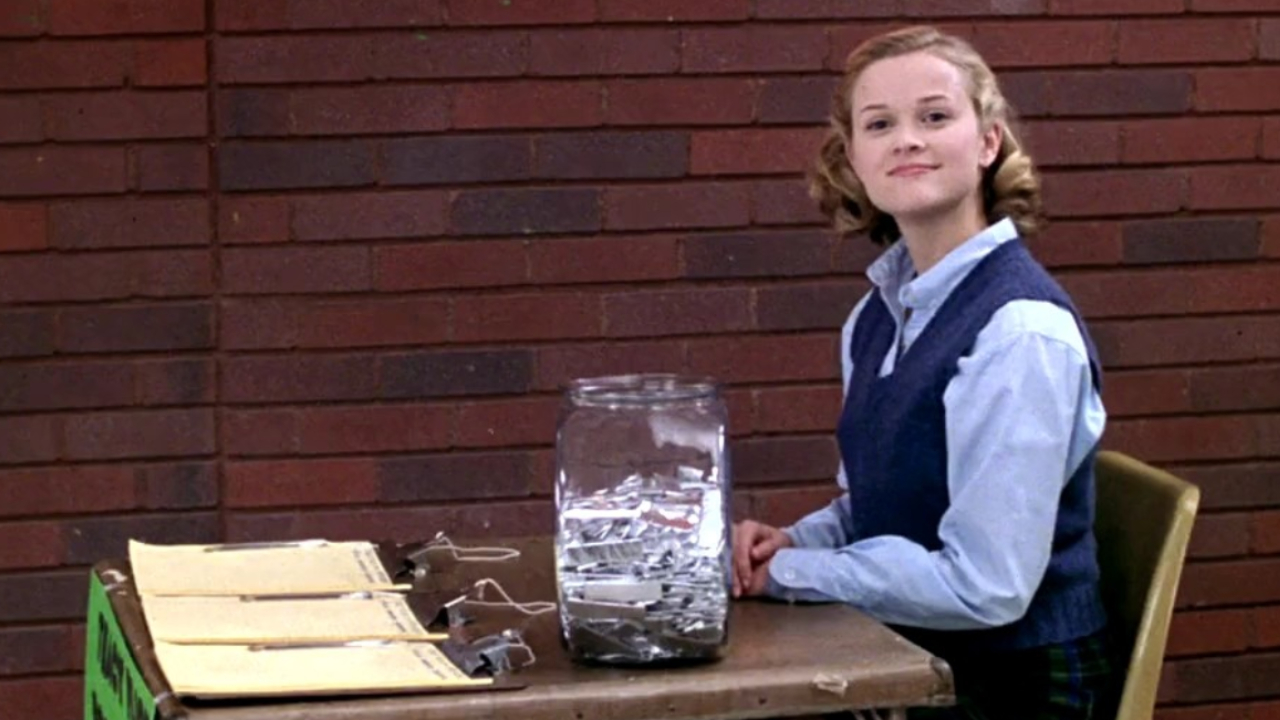
24. Election (1999)
How did Reese Witherspoon not win an Oscar for her performance as Type-A goodie two-shoes Tracy Flick, the textbook overachiever who bites off more than she can chew by running for student government president? It’s possible that we have come to realize that Witherspoon might just BE Tracy Flick in real life.
But at the time, she was a tornado of talent matching Matthew Broderick beat for beat, bringing to life the sharp school-set satire in director Alexander Payne’s screenplay. Election has as much to say about the greed and immaturity powering politics many years after its release – at every level – as it did back in 1999, which is yet another reason why it remains special.
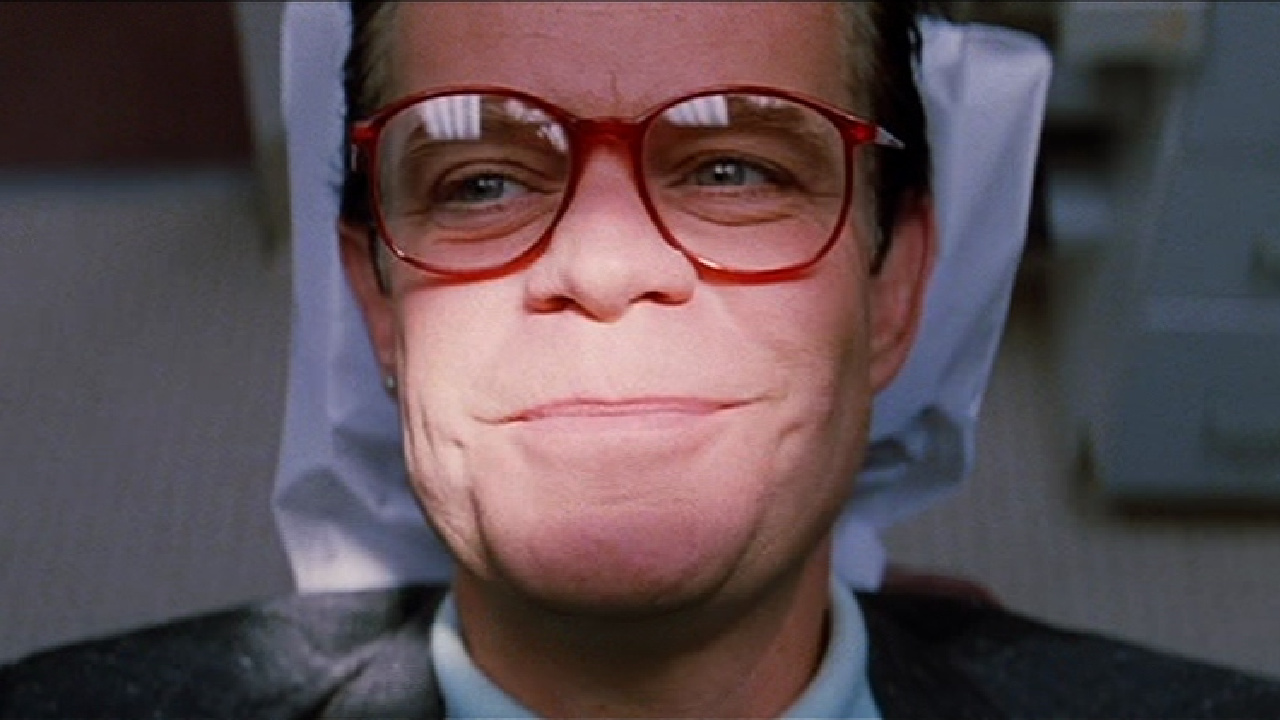
23. Magnolia (1999)
While not the highest-ranked Paul Thomas Anderson film on this list, Magnolia is a film to be marveled at for its phenomenal ambition. The Los Angeles-based epic juggles the stories of nearly a dozen protagonists who are not only dealing with a wide variety of personal conflicts and demons but are all linked to one another in the stunning cinematic tapestry.
As the hyper-misogynist motivational speaker Frank T.J. Mackey, Tom Cruise delivers one of his most brilliant turns, and Julianne Moore’s pharmacy monologue is flooring, but the reality is that every member of the ensemble – including Philip Seymour Hoffman, William H. Macy, Philip Baker Hall, John C. Reilly, and many more – deliver some of the best work of their respective careers. Further considering the frogs and the stunning performance of Aimee Mann’s “Wise Up,” it’s indelible cinema.
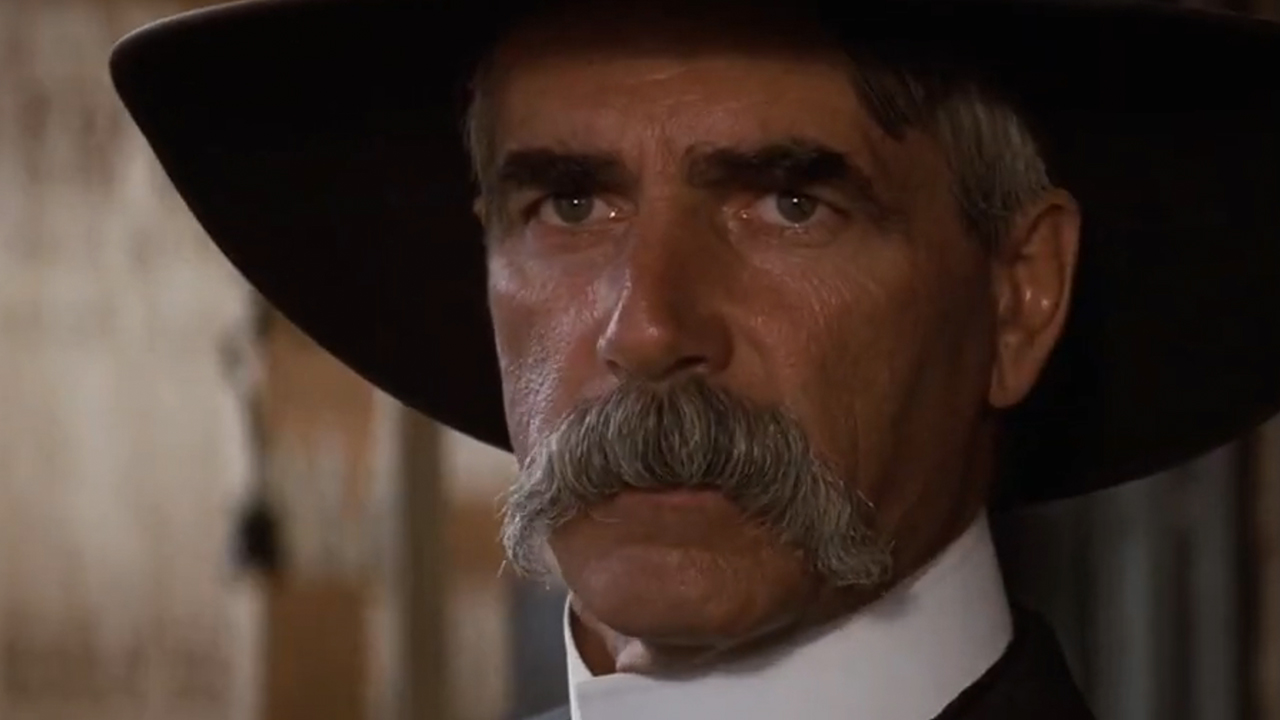
22. Tombstone (1993)
I don’t think you could ask for a more star-studded cast for any genre of film, much less a Western. 1993’s Tombstone is blessed by a top-notch cast including Kurt Russell, Val Kilmer, Sam Elliott, the late Bill Paxton, Michael Biehn, Stephen Lang, the late Powers Boothe, Thomas Haden Church, Michael Rooker, Charlton Heston, and many more, making it an instant classic in the Western genre.
The story behind how this film came to be, along with many behind-the-scenes facts, is bizarre enough, but the struggles resulted in one of the best cowboy films of all time. And one that has stood the test of time against a similar movie released around the same time, Kevin Costner's Wyatt Earp.
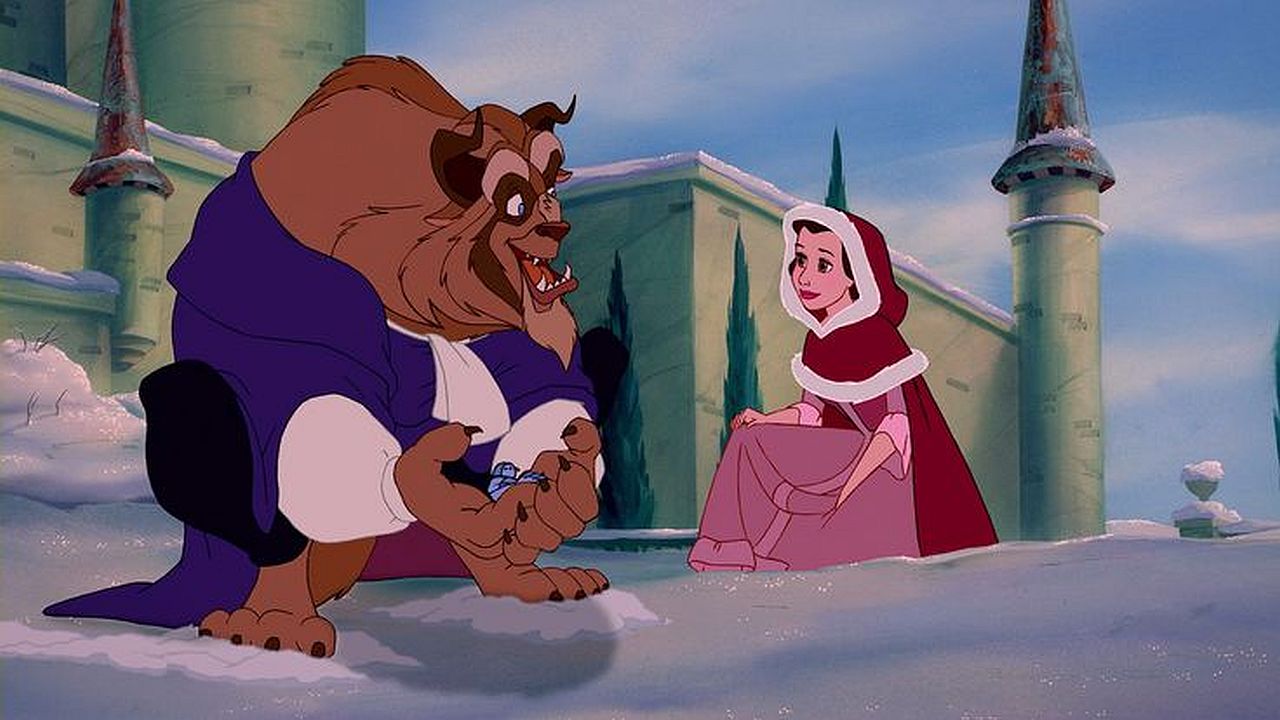
21. Beauty and the Beast (1991)
Beauty and the Beast was the first animated film to be nominated for the Best Picture Oscar, and decades later, it’s still clear that was the right call. The movie is beautiful, with early computer animation enhancing some of the most visually stunning hand-drawn shots in the medium’s history. It also has one of the best soundtracks of any Disney musical, if not any musical, full stop. This is Howard Ashman’s greatest achievement as a songwriter.
But beyond even that, the two title characters are about as three-dimensional as any animated characters ever were. It may be a tale as old as time, but Beauty and the Beast is one the audience gets wrapped up in from the first notes to the last. It’s the definition of Disney magic.
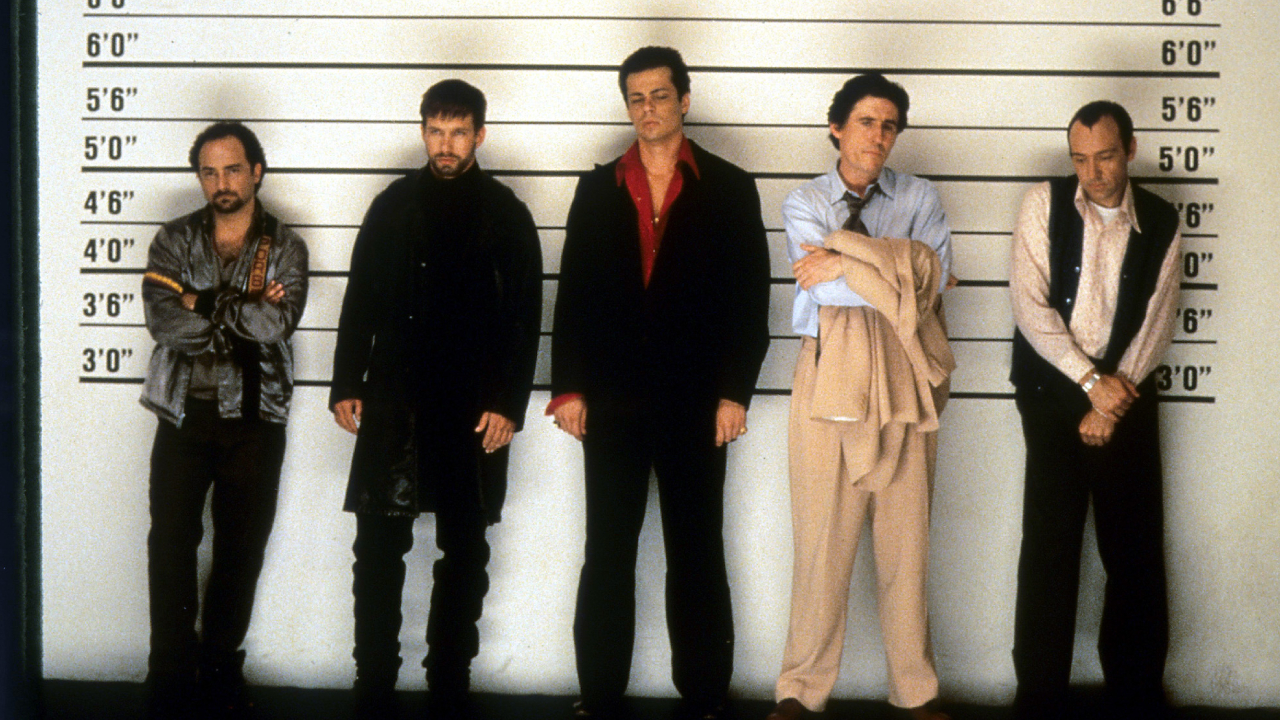
20. The Usual Suspects (1995)
No one saw the twist ending coming. Trust me. No one. It caught audiences off guard completely, exactly the way it crashed down like a ton of bricks on Chazz Palminteri's cop. He finally understood who Keyser Soze was, and we all rushed right back into theaters to watch the puzzle snap into place all over again.
But The Usual Suspects is more than just its “dropped shoe,” miraculous as that reveal is. The cast of colorful criminals assembled by director Bryan Singer played off of each other wonderfully, with many of them defaulting to the natural leader in Gabriel Byrne, but still finding ways to steal the spotlight every now and then. (Benicio Del Toro mumbling under his breath in the jail lineup belongs in the conversation of funniest five-minute performances, ever). As twisty crime thrillers go, few are tighter and more entertaining than this.
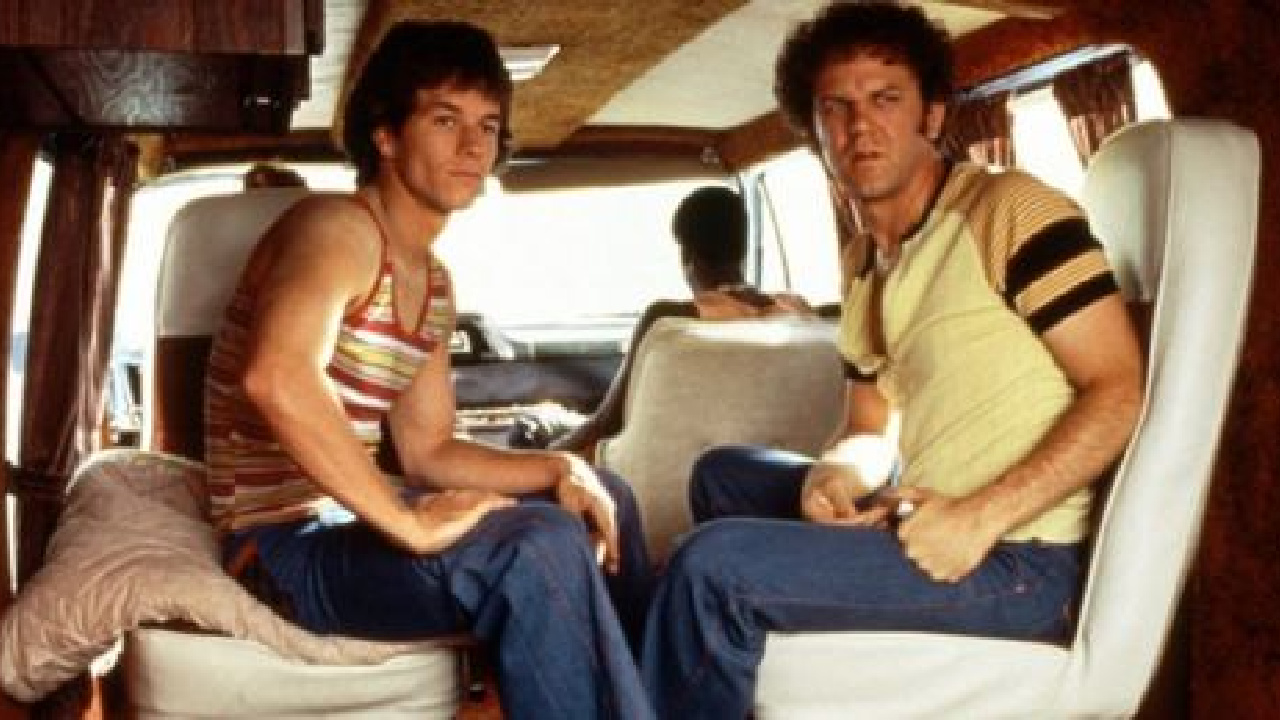
19. Boogie Nights (1997)
Introductions can make or break anything in this world. Careers, reputations, even the flow of a movie can be bungled if you don’t know how to open. Writer/director Paul Thomas Anderson must have known that when he made Boogie Nights, because when he introduced that picture to the world, he gave himself one hell of a calling card.
Following young Dirk Diggler (Mark Wahlberg) in his journey through the underground of porn films, we see a man still growing up in an industry that feels as young as he is. An ensemble drama boasting the likes of Don Cheadle, Julianne Moore, Heather Graham, and Phillip Seymour Hoffman, Boogie Nights is a cautionary tale with style and tension to burn. Good luck ever listening to “Sister Christian” without having flashbacks to this big, bright, shining star that still manages to break hearts and crack jokes with everyone it meets.
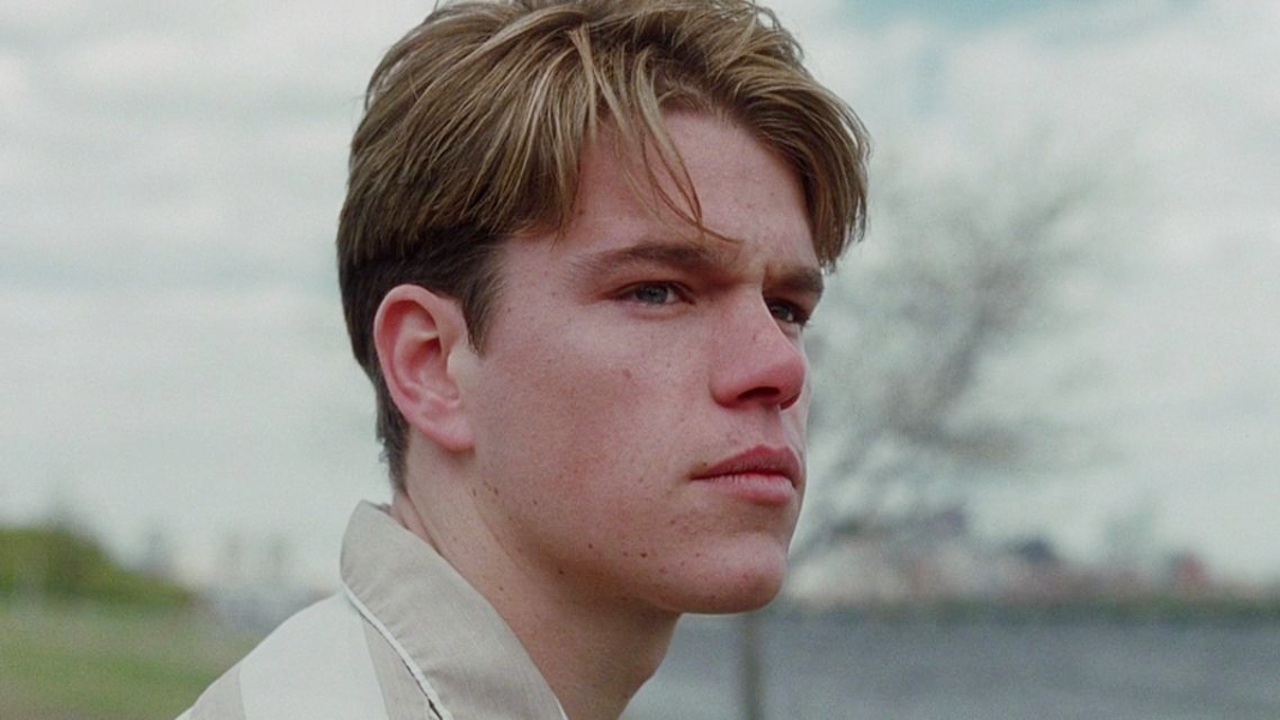
18. Good Will Hunting (1997)
Good Will Hunting is one of those films that changes you forever once you watch it. Starring Matt Damon and Robin Williams, the drama follows a young janitor at MIT who's discovered to be a secret math genius. The premise itself isn't as catchy as some of the other big-time blockbusters of the 1990s, without aliens, robots or crazy action fights, but Good Will Hunting is a film that leaves its message imprinted on audiences long after the credits roll.
A story of perseverance, hope, and so much more, this movie gave movie fans one of Robin Williams's best roles and catapulted the careers of Matt Damon and Ben Affleck. (You gotta like them apples.) This kind of film teaches you that sometimes, the people you meet turn you into your best self, so we just have to be fearless enough to go out there and find them.
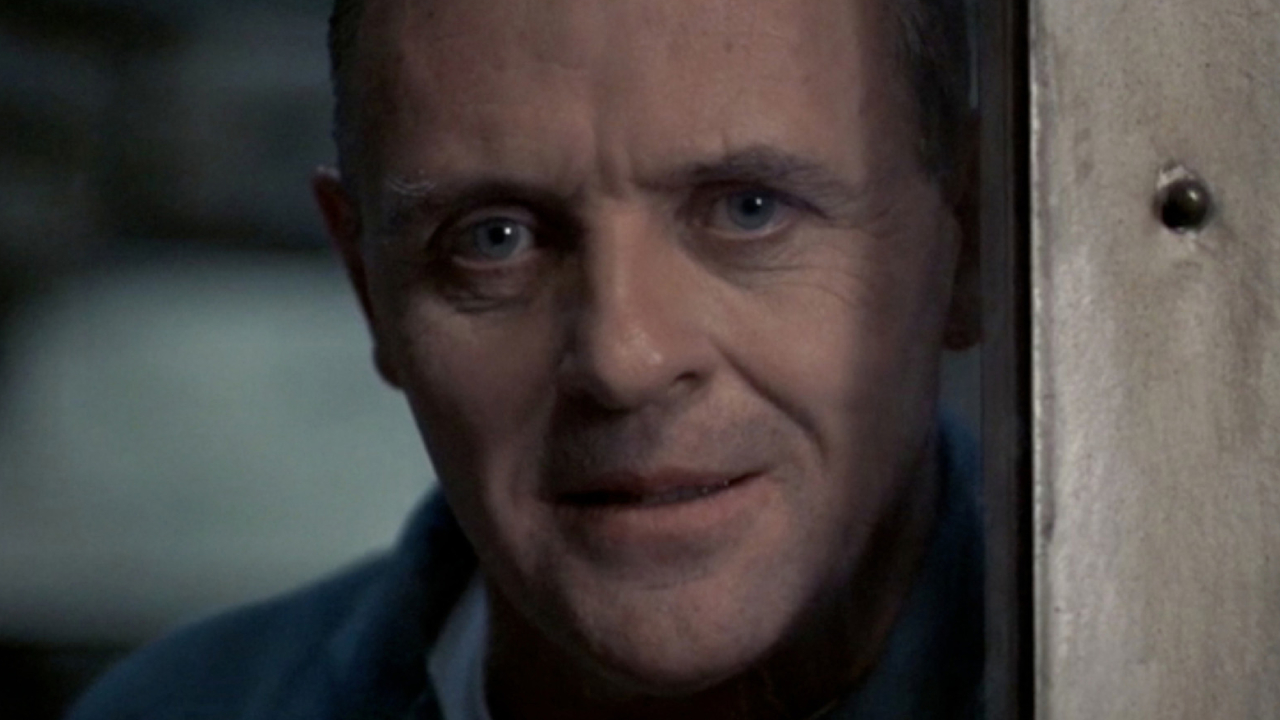
17. The Silence of the Lambs (1991)
Anthony Hopkins is fantastic in The Silence Of The Lambs, and every positive thing you’ve ever heard about his performance is deserved and probably an understatement. He’s that engrossing, but with all due respect, The Silence Of The Lambs isn’t his movie. It’s Jodie Foster’s movie, hingeing on her career-best performance here as Clarice Starling, which just gets better with every rewatch.
Foster finds the perfect balance between uncertain and determined. She lets her FBI trainee lead character feel the weight of every obstacle, whether it be sexism, personal loss or physical danger, and then she pushes forward. With relentless determination, she just keeps going and that one step at a time, careful momentum gives the film its narrative structure and allows director Ted Demme to create one of the 90s best and most memorable movies.
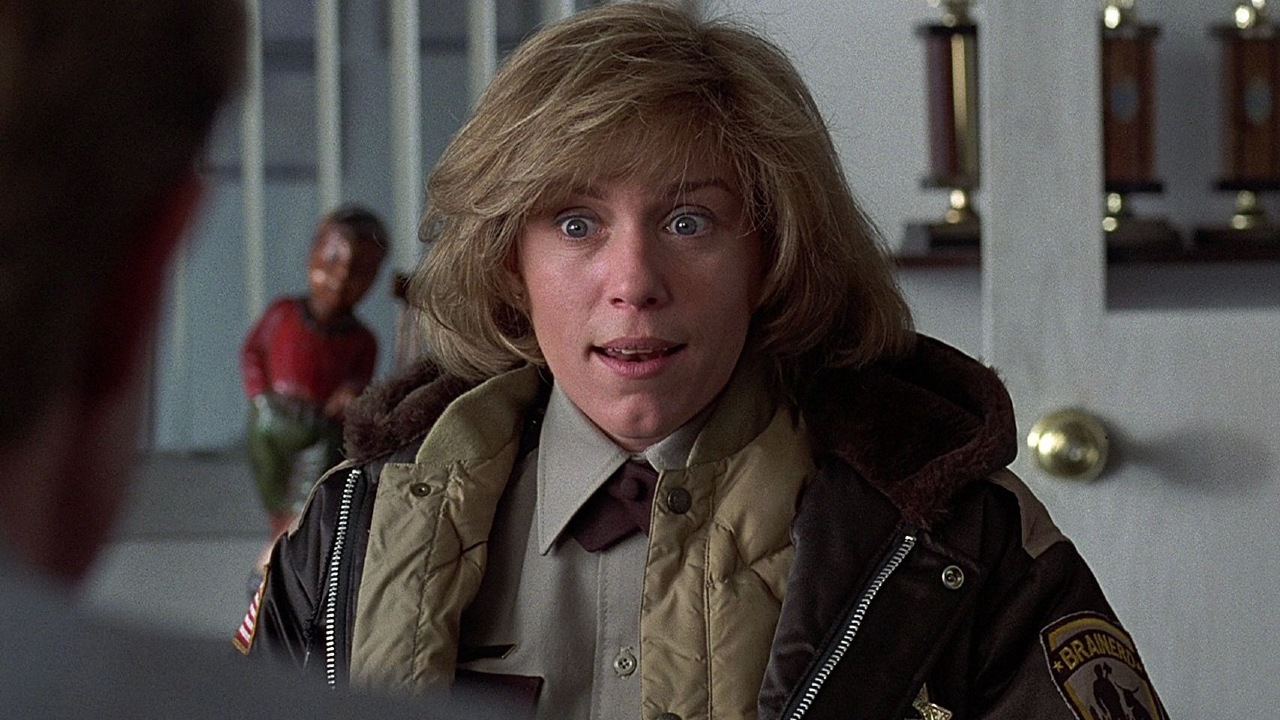
16. Fargo (1996)
Joel and Ethan Coen have crafted films both stoically grounded and ludicrously fantastical in their long and storied careers, with Fargo possibly the one straddling both of those lines with the greatest of ease. The faux-kidnapping-gone-wrong and the ensuing investigation are smart story beats, and were enough to win the Coens the Best Original Screenplay Oscar, if fairly rote for the genre in general. But it’s the cast, the Minnesota location, and the singular nature of being a snow-white noir that make Fargo one of the greatest films of the decade.
The always affable William H. Macy is aces as a man being eaten alive by guilt, opposite the gosh-darn excellent police skills of Frances McDormand’s Marge Gunderson, with Steve Buscemi and Peter Stormare as the pair of amoral criminals making everyone’s lives (and deaths) worse. Fargo is a chilling masterpiece, and it’s got nothing to do with the weather.
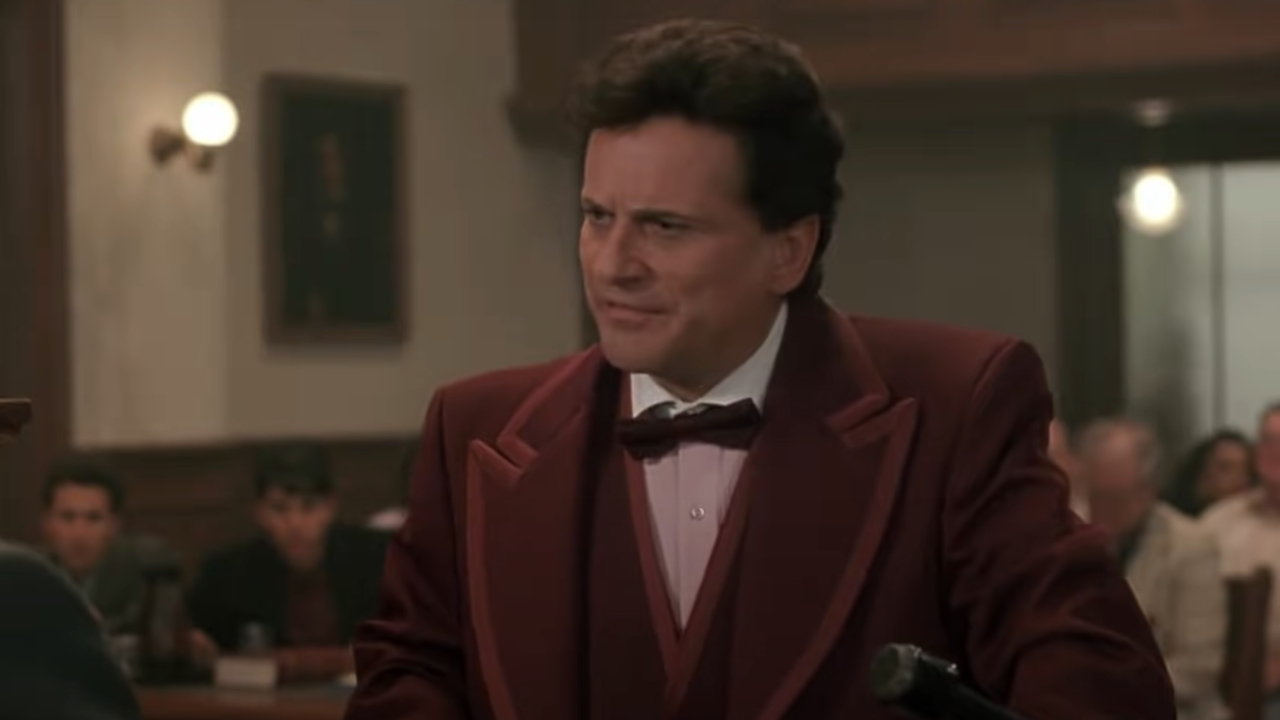
15. My Cousin Vinny (1992)
Even though one of my colleagues claims her testimony was incorrect in the film, I will still stand before the court and argue that Marisa Tomei, Joe Pesci, and their cast of supporting characters make My Cousin Vinny guilty as hell of being one of the best comedies of all time.
The film is widely used in an educational capacity to showcase one of the few times that a court case is mostly portrayed accurately through a film, and to be honest, the wordplay coupled with the main character/judge dynamic is something to write home about.
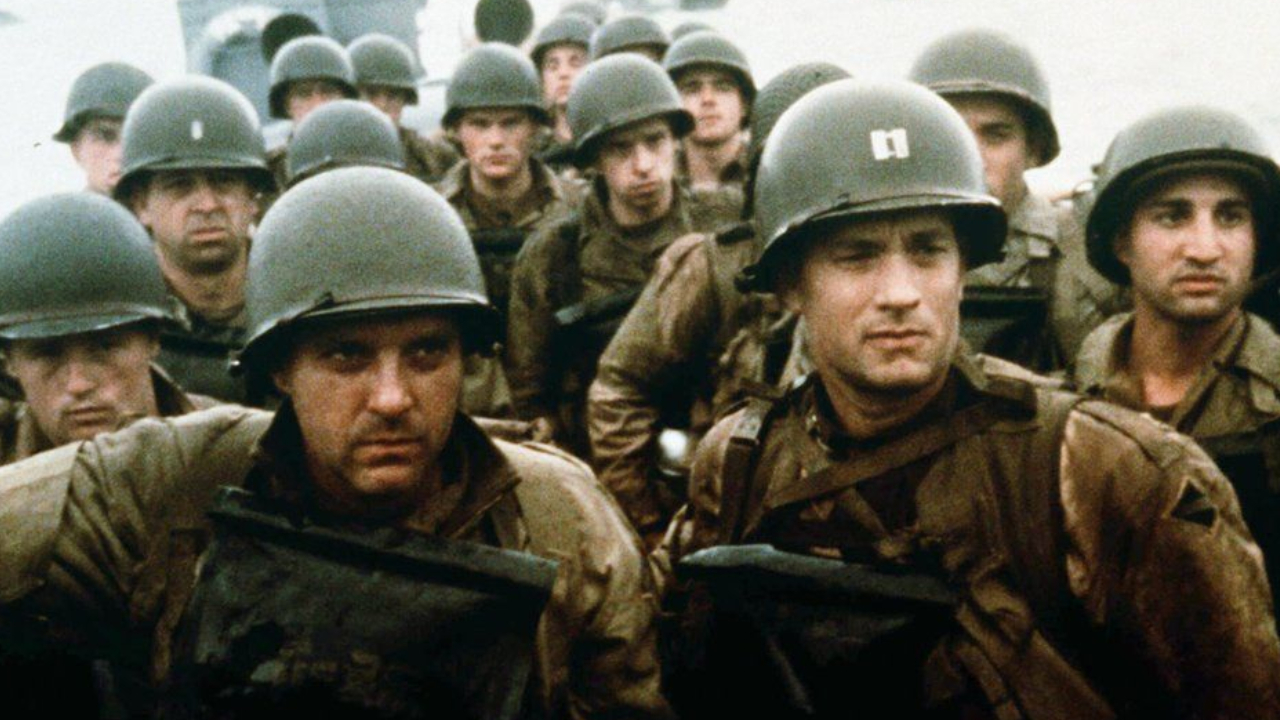
14. Saving Private Ryan (1998)
For years, veterans would be the first to say that cinema's depiction of combat — especially that of World War II — is a cakewalk compared to the real thing. Because few films offered a truly accurate portrayal of the hellish, soul-crushing conditions soldiers faced, at least before the release of Saving Private Ryan.
This story of a U.S. military captain (played by Tom Hanks) tasked with leading his crew on a mission to bring a family's last living son home is easily one of Steven Spielberg’s best movies (the second to earn him a Best Director Oscar) and is widely considered to have been unjustly robbed of the Best Picture honor (which went to Shakespeare in Love that year). From the landmark D-Day sequence to the heartbreaking final act and every unforgettable moment in between, it is one of the harshest films you could ever experience, but the passion and craftsmanship put into makes for a grand reward.
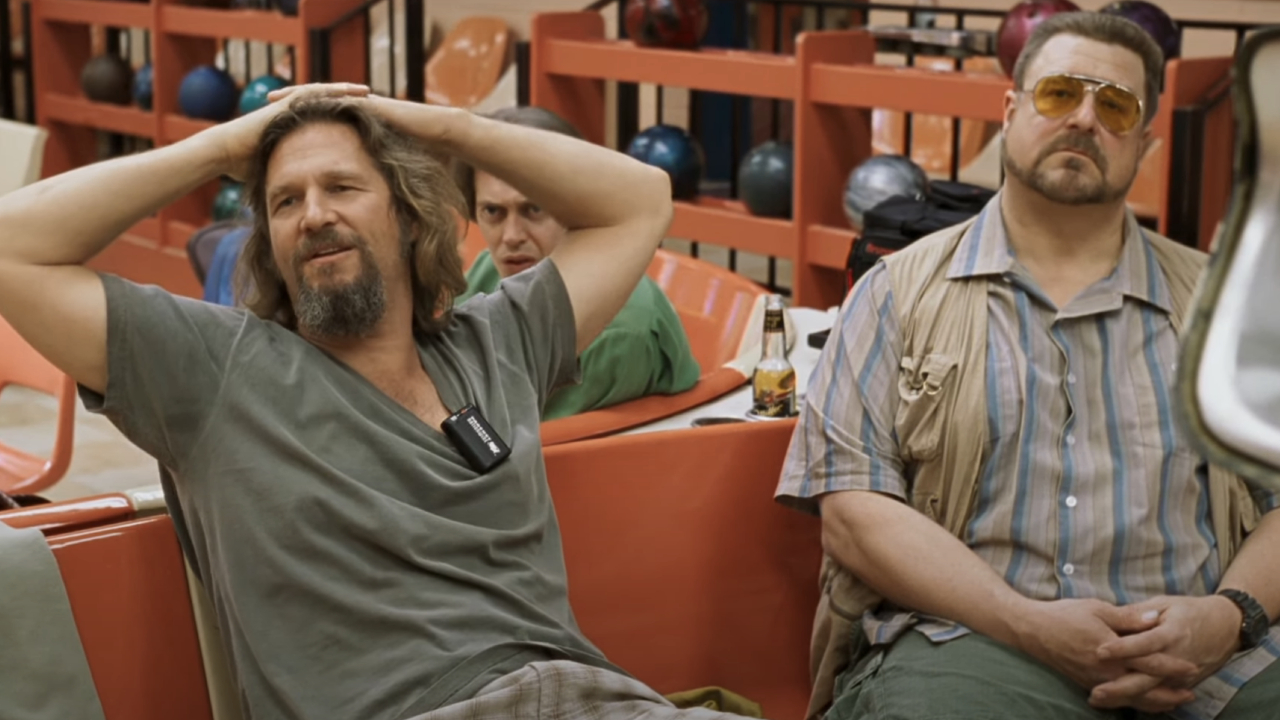
13. The Big Lebowski (1998)
I’m a Lebowski, you’re a Lebowski, we’re all Lebowskis who love the Coen brothers’ The Big Lebowski, even if its massive fandom wasn’t automatic. It was only a moderate success in the spring of 1998 when it sauntered into theaters on the heels of the Coen’s winning their first writing Oscar for Fargo a year earlier. Reviews at the time were middling, as was the audience reaction.
Then, over the next couple of years, The Big Lebowski turned into a bonafide cult craze. Pages have been written about its status as such, but too often overlooked is what makes the movie so lovable. It’s quotable, it’s silly, and the plot is the ultimate shaggy dog story with a ridiculous McGuffin — the Dude’s rug — but as it goes for the Dude’s living room, the whole movie ties together just brilliantly. It’s world-class storytelling and the performances from Jeff Bridges, John Goodman, and the rest of the cast are perfect.
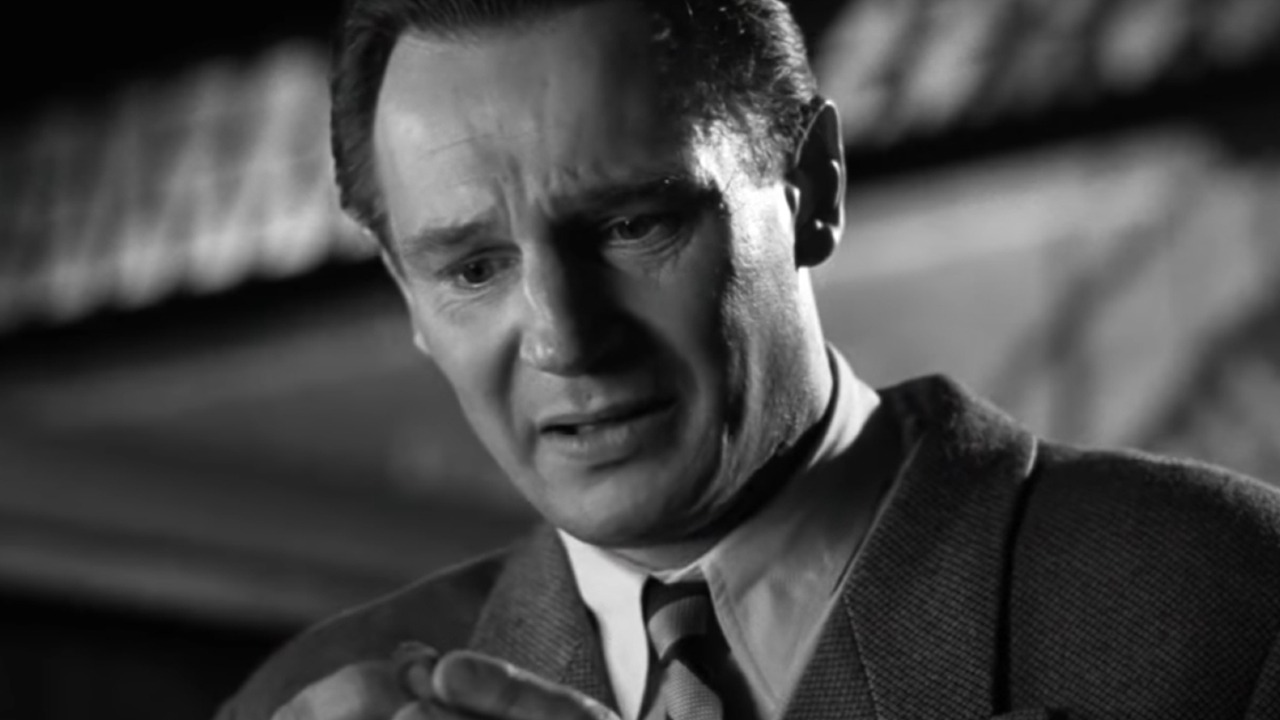
12. Schindler's List (1993)
Sometimes what makes a movie from a particular era great is how it represents its time, but some movies would be considered an important work of art in any decade. Steven Spielberg’s Schindler’s List is one of those that transcends eras. The film is great in all the traditional ways: Liam Neeson gives a career-making performance as Oskar Schindler, an Industrialist who saved the lives of hundreds of Jews during World War II. The supporting performances are equally strong. It’s beautifully filmed.
But beyond that, Schindler’s List is an important movie, offering audiences a sobering look at the tragic events of World War II through a character based on a real-life survivor that many were not even aware of before the movie's release. Schindler’s List is one of those movies that you don’t forget after having seen it, and it may be Steven Spielberg’s greatest achievement.
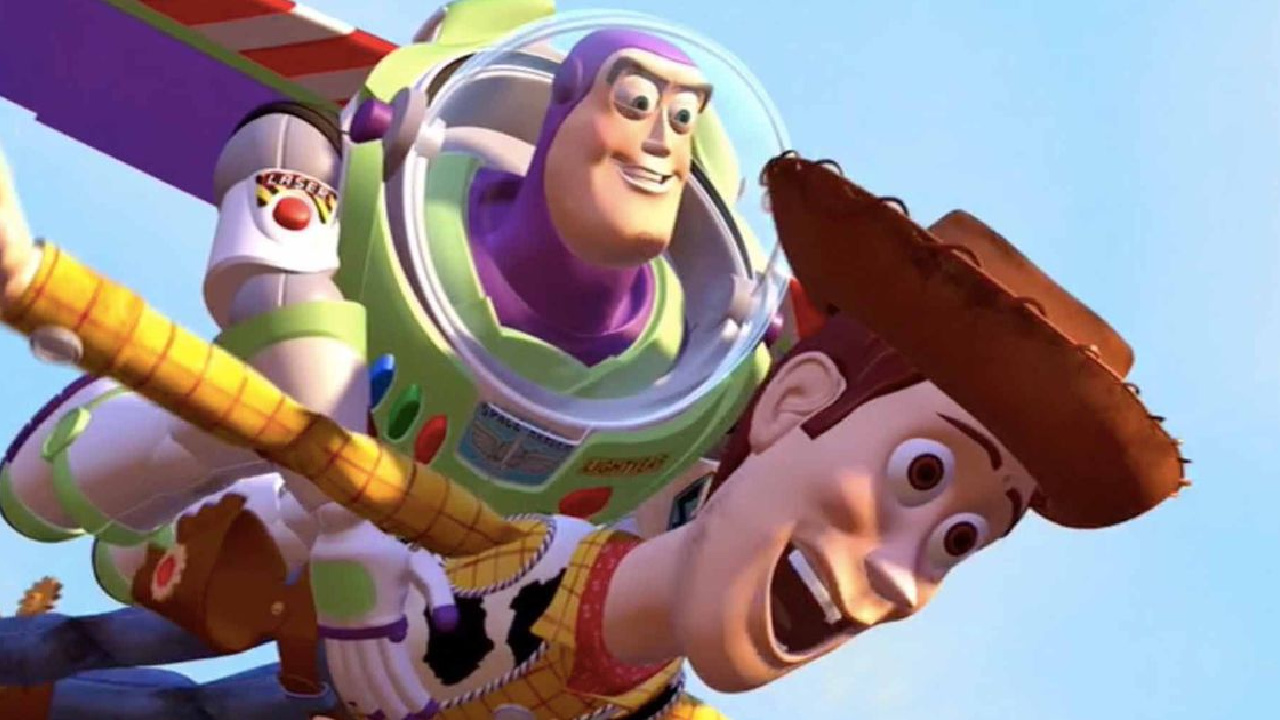
11. Toy Story (1995)
More than 25 years after moviegoers were first introduced to Woody, Buzz Lightyear, Bo Peep, and the rest of Andy’s collection, it can be easy to forget just how big the impact John Lasseter’s Toy Story had when it hit theaters in 1995. It’s the film that put Pixar on the map, and while it sadly helped kickstart the downfall of hand-drawn animation in lieu of CGI, it also paved the way for three of the greatest Hollywood sequels to ever be produced. Tom Hanks’ Woody and Tim Allen’s Buzz are an all-time great animated duo, sharing hallowed space with Bugs & Daffy and Tom & Jerry, though obviously with a lot more heart than what short-form characters are allowed.
The Toy Story franchise hinges a lot on childhood memories, nostalgia, and maintaining a sense of fun in life as one gets older, and this first film delivers the most distilled take on that idea, with Andy still attached in some way to his inner child. Life, as it were, gets way more depressing for the toys as he gets older, which perhaps is why Toy Story rewatches are all the more enjoyable in comparison.
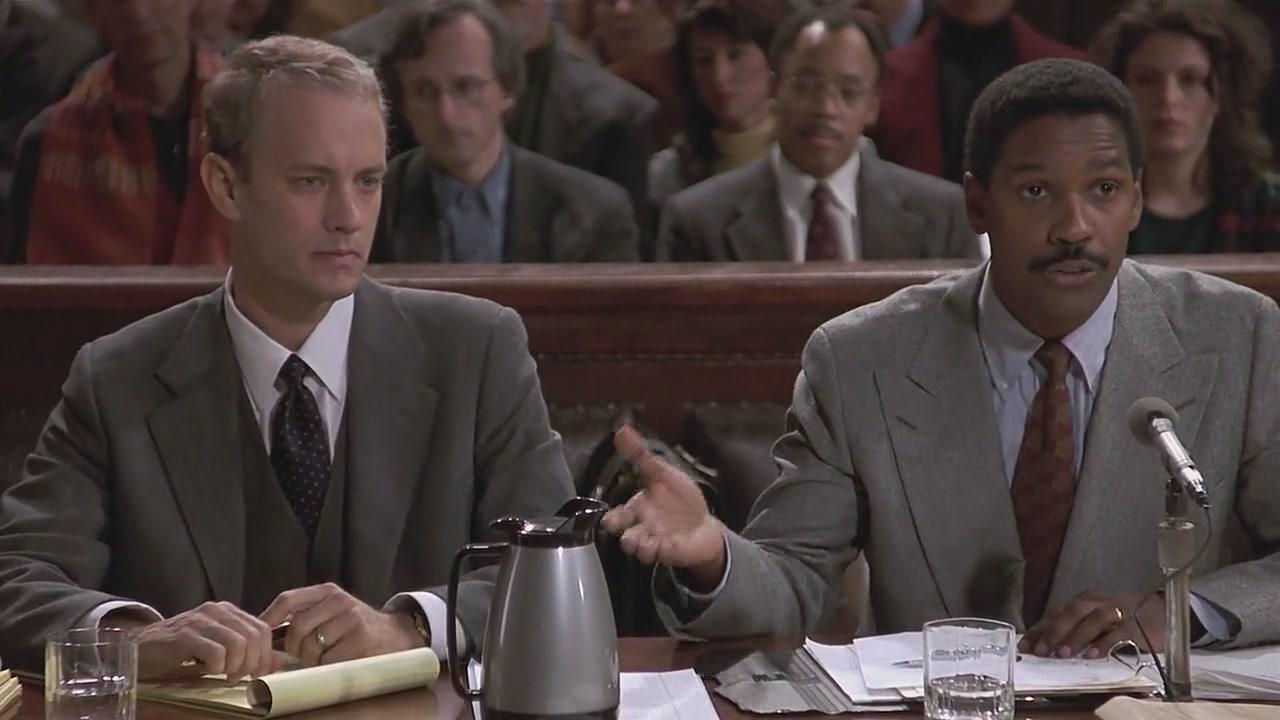
10. Philadelphia (1993)
Philadelphia is not only a well-made movie, but is first and foremost an important movie. LQBTQ+ rights were non-existent at the time, as the movie highlights and one cannot discount the role this movie, directed by Jonathan Demme, had in awakening the general public not only to the plight gay people faced at the time but the discrimination people with HIV/AIDS faced as well when it was released in 1993. Tom Hanks’ portrayal of a gay man with AIDS who is fired from his job won the actor his first Oscar and for good reason, he’s amazing. Equally amazing is Denzel Washington, who plays Hanks’ character’s (Andrew Beckett) lawyer, Joe Miller.
Miller, like most people in 1993 when Philadelphia was released, is scared of Beckett and AIDS, because he, like many, didn’t understand it. It’s Miller’s reaction that resonates with audiences. After watching Beckett get asked to move to a “private room” at a library, Miller realizes the discrimination is similar to that faced by African-Americans in the United States, and by the end of the film, he touches Beckett’s lesion-covered face, after learning the truth about AIDS. It’s a powerful moment that still reverberates today.
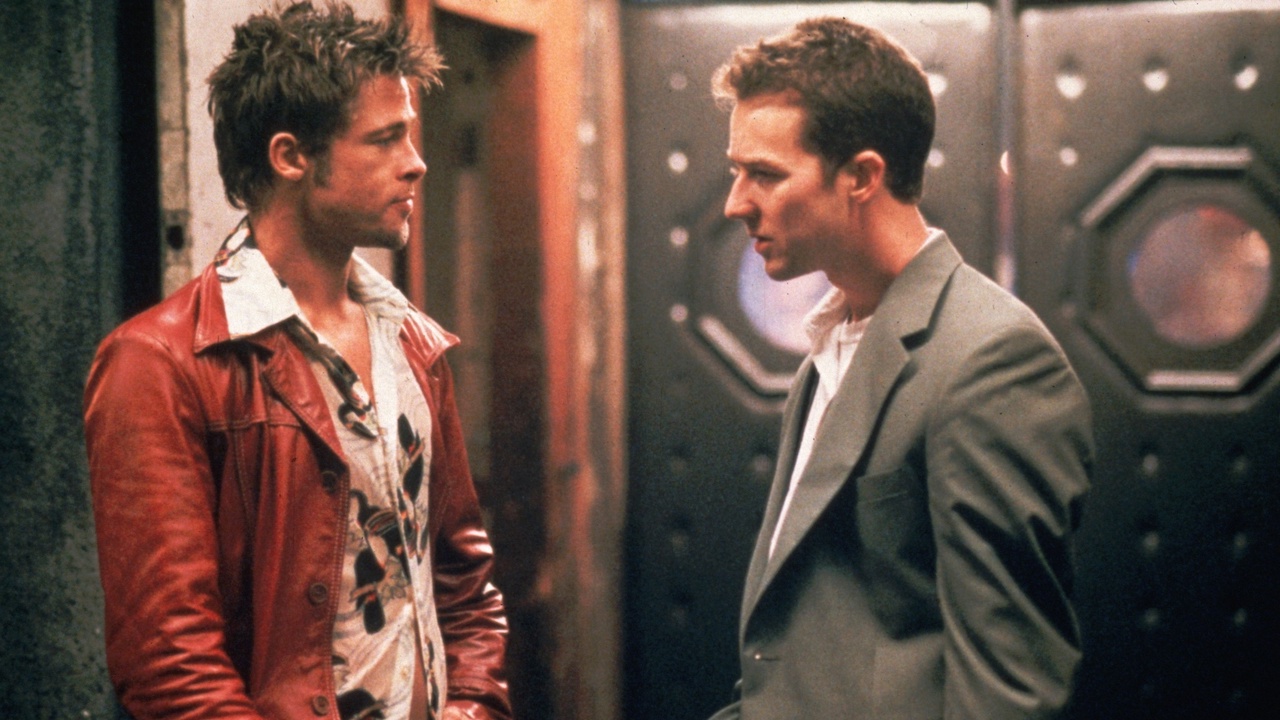
9. Fight Club (1999)
So many “futuristic” sci-fi movies from years past have failed to successfully depict modern society and behavior, but David Fincher’s Fight Club now feels it was adapted from some of Nostradamus’ naughtier quatrains, instead of Chuck Palahniuk’s 1996 novel. Seemingly both a love letter to, and a cautionary tale about, nihilistic anti-consumerism and anarchy, Fight Club features one of cinema’s most convoluted love triangles in Edward Norton’s spine-lacking unnamed narrator, Brad Pitt’s ultra-male Tyler Durden, and Helena Bonham Carter’s impulsively erratic Marla Singer. A demented character study in part, the movie oozes testosterone both before and after the titular underground brawls come together, and maybe even oozes a bit of estrogen when Meat Loaf’s Bob is around.
For all of the smart and discussion-worthy topics that are tackled with face-pounding glee, Fight Club is, unfortunately, the kind of movie whose natural sheen has been somewhat tarnished by a fanbase who lost the point of the satire, but still holds so many visual and verbal treasures for those outside such bubbles. Especially for any new viewers who manage to go into it without knowing what kicks off the final act. It’s hard to think of a ‘90s movie with a more story-heightening ending, and The Pixies’ “Where Is My Mind?” remains an inarguably perfect needle drop.
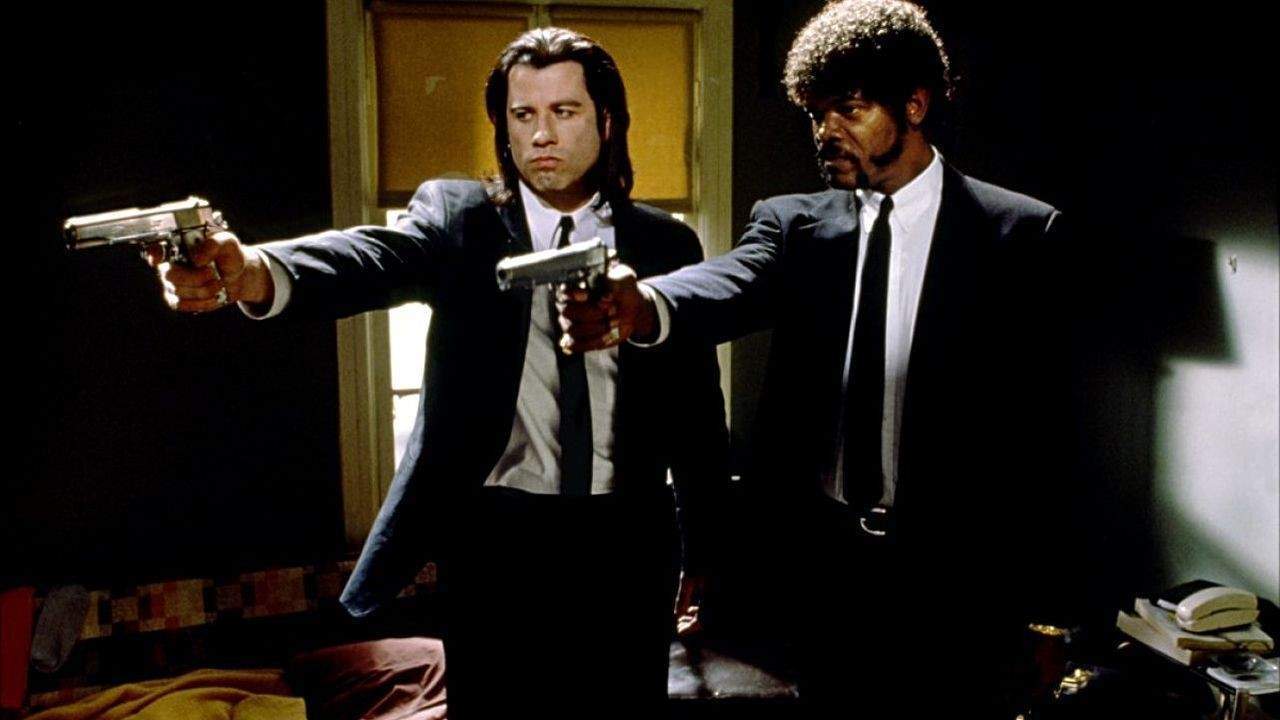
8. Pulp Fiction (1994)
Pulp Fiction changed the rules of Hollywood moviemaking. That’s no exaggeration. Before Quentin Tarantino fired a shotgun blast through the screen with his nonlinear gangster picture, there was a chasm separating big-budgeted studio films and independent cinema that usually thrived on the film festival circuit before making its way to art house theaters. In the years following Pulp Fiction, studios, actors and audiences chased talent and inspiration, wherever it could be found.
The irony of Pulp Fiction blazing so many trails is that the movie itself is a pastiche of well-worn genres that Tarantino pored over while working the counter of a video shop. He’s paying homage to countless, gratuitous stories that had come before it. Only, Pulp Fiction built on the buzz created with Reservoir Dogs to attract a constellation of stars: John Travolta, Samuel L. Jackson, Uma Thurman, Harvey Keitel, Tim Roth, Christopher Walken, Ving Rhames, and Bruce Willis. Pulp Fiction remains one of the best scripts you will ever read, crisscrossing itself at various intersections and packing repeated surprises (usually of the violent nature). But it was Tarantino’s powerful voice, and his use of soundtrack, that had clones copying his style for decades… and still, to this day.
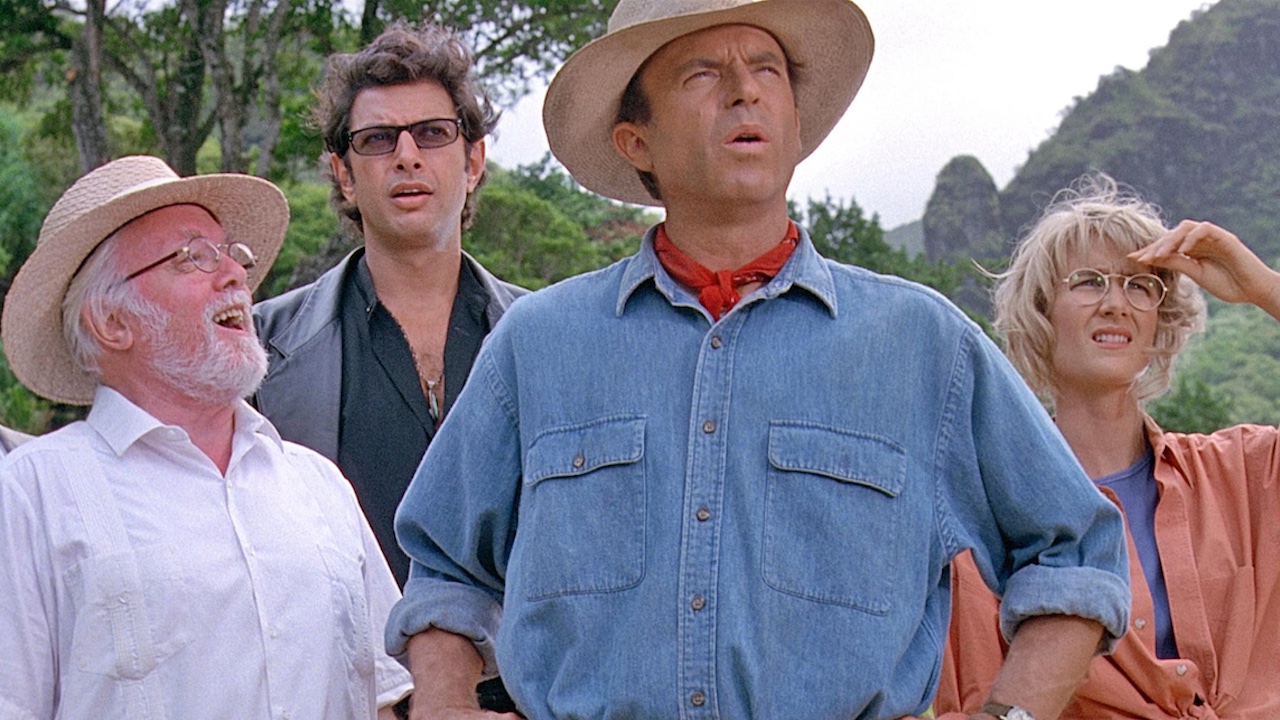
7. Jurassic Park (1993)
Anticipation for Jurassic Park began years before its release in the summer of 1993. Michael Crighton sold the rights to the film before he finished the book and because Steven Spielberg was the director who acquired it, the hype started early. Then, in June 1993, it finally hit theaters and was an absolute cultural sensation. Critics loved it, praising the unbelievable special effects and realism of the dinosaurs. Speilberg and the team at ILM broke so much new ground in creating the creatures that it changed how movies were made. Audiences loved it even more and showed up at theaters in hordes. Jurassic Park broke every box record there was to break. It had the biggest opening day, the biggest opening weekend, and finally, it became the highest-grossing movie of all time.
Jurassic Park also earned a slew of awards, mostly for its technical achievements, but that doesn’t mean the acting performances were bad, they were fantastic. Jeff Goldblum, Sam Neill, Laura Dern, and Sir Richard Attenborough are all perfect in their roles. Finally, there’s the score by John Williams, which remains one of the most iconic of all time.

6. Se7en (1995)
The film that rescued David Fincher’s career from the stench of Alien 3, and proved that the versatile music director could apply his grungy, moody, techno-acid style to a feature-length nightmare. It’s easy to say now that Fincher was destined to be a contemporary, visionary genius of a filmmaker. But prior to The Social Network, Zodiac, and Fight Club, we needed to see some evidence. Consider this disturbing plunge into the moral sewers to be Exhibit A in the case for Fincher’s mastery.
Se7en is routine in many ways. It’s set in a rainy and nondescript city, which feels like San Francisco but could be anywhere. It follows odd-couple cops (Morgan Freeman, Brad Pitt) tracking a mysterious serial killer who cunningly stays one step ahead of them. But the performances are remarkable, including Gwyneth Paltrow as Pitt’s loving and innocent newlywed, plucked and moved to the grimy city so her husband can do his job. The film’s riveting conclusion – which benefits from the icy calm delivery of Kevin Spacey as John Doe – elevated Se7en above most others in the genre. Now, when someone asks, “What’s in the box?” you don’t have to say, “Gwyneth’s head.” Just tell them the box contains an unforgettable masterpiece.
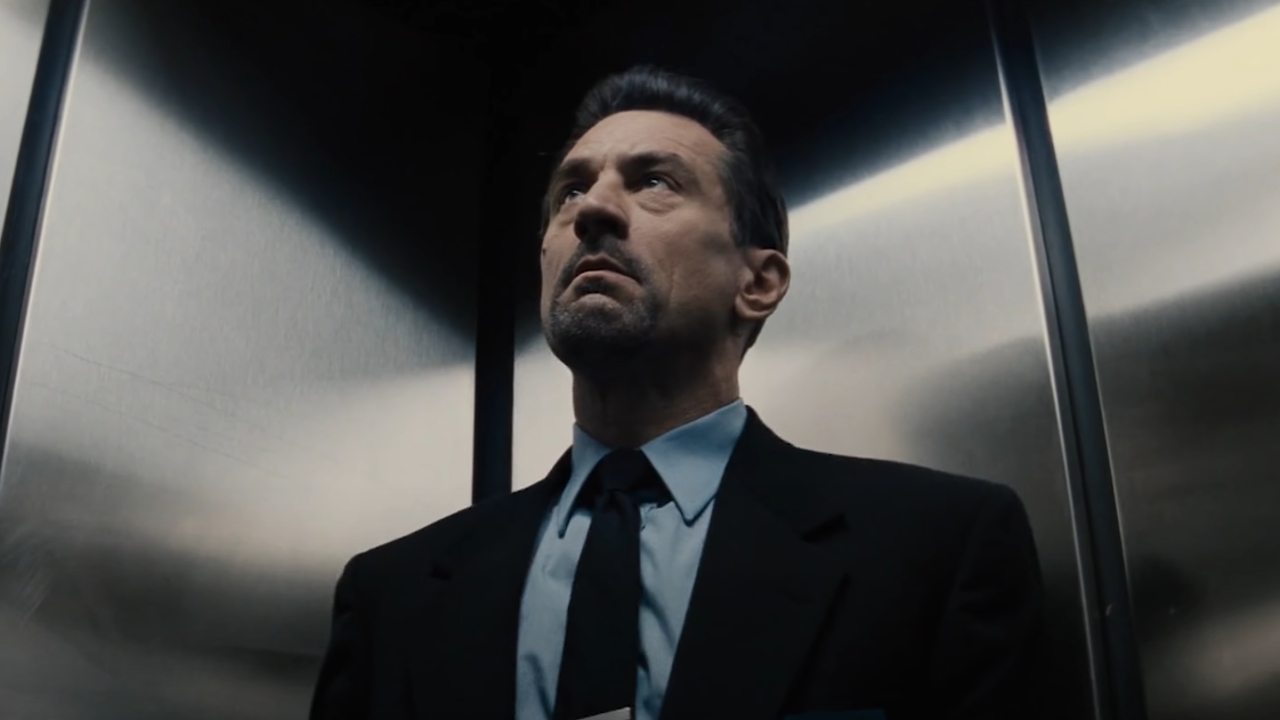
5. Heat (1995)
Look at just about every list breaking down the best heist films ever made and the movie you’re probably going to see the most is Michael Mann’s 1995 crime epic, Heat. With some of the most iconic (and loudest) robbery and shoot-out sequences, the first on-screen pairing of Al Pacino and Robert De Niro (both were in The Godfather Part II but appeared in different timelines), and an incredible cat-and-mouse story that uses Los Angeles as a backdrop better than any other film, there’s so much to love about this legendary film.
On top of all of that, Heat has become one of the most influential films of all time in the nearly 30 years since its theatrical release. Watch movies like The Town, Widows, and even The Dark Knight, and you’ll see how Mann’s thriller was so influential. Hell, even the Grand Theft Auto franchise has taken aspects of the movie to create some of the most action-packed video game moments of all time.
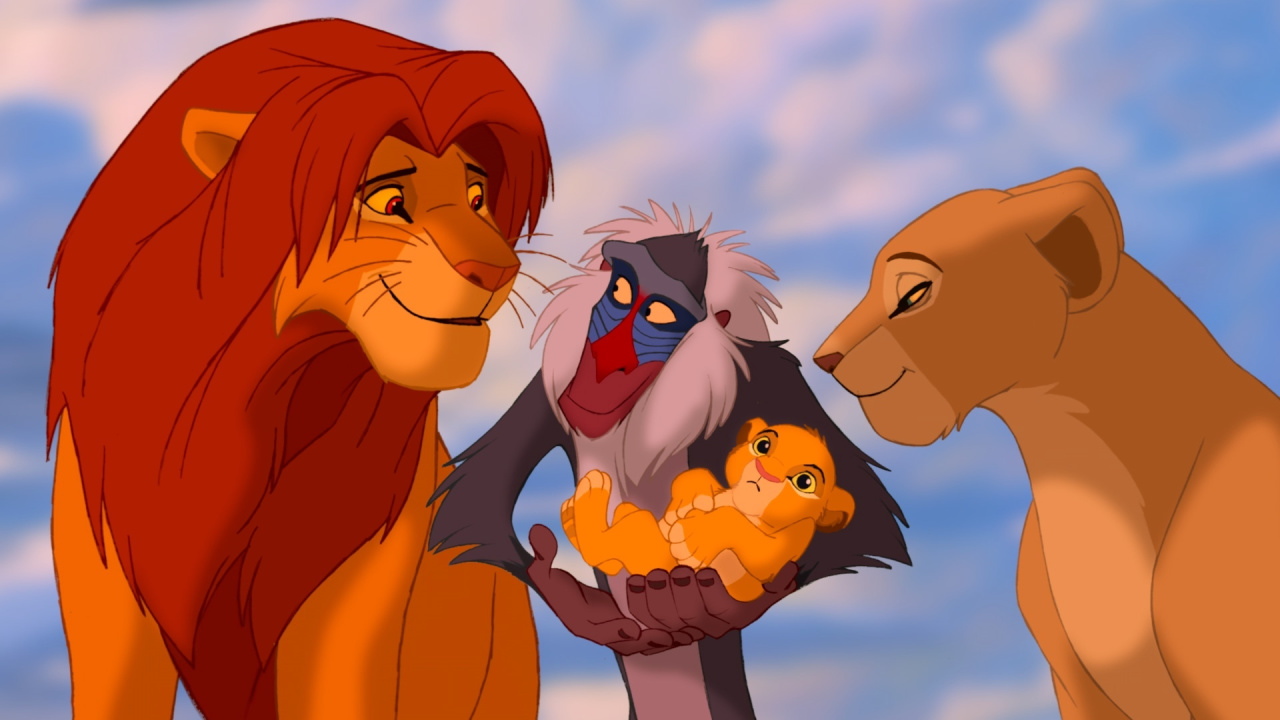
4. The Lion King (1994)
1994’s The Lion King is perhaps the most effective entry in the Disney Renaissance era when it comes to combining gorgeous animation, original songs, and a story that continues to pack a punch decades later. As the coming-of-age story for cub-turned-king Simba, the film delivers arguably the most famous Disney death with the demise of Mufasa, and Scar’s villain song is both incredibly catchy and incredibly chilling. Aladdin lyricist Tim Rice joined forces with Elton John for the songs, while Hans Zimmer composed the score, earning The Lion King an Academy Award for Best Original Score, while “Can You Feel the Love Tonight” won for Best Original Song.
The Lion King was a massive commercial hit, becoming the highest-grossing traditionally animated film and holding that record to this day. The original movie also has a legacy that has extended to two TV shows, two direct-to-video sequels, and the 2019 CGI remake that was massively successful for Disney, although divisive among fans of the original animated version. Plus, there’s a generation of adults who learned about coups and succession crises thanks to Mufasa, Scar, and Simba back in the ‘90s. What’s not to roar with love about?
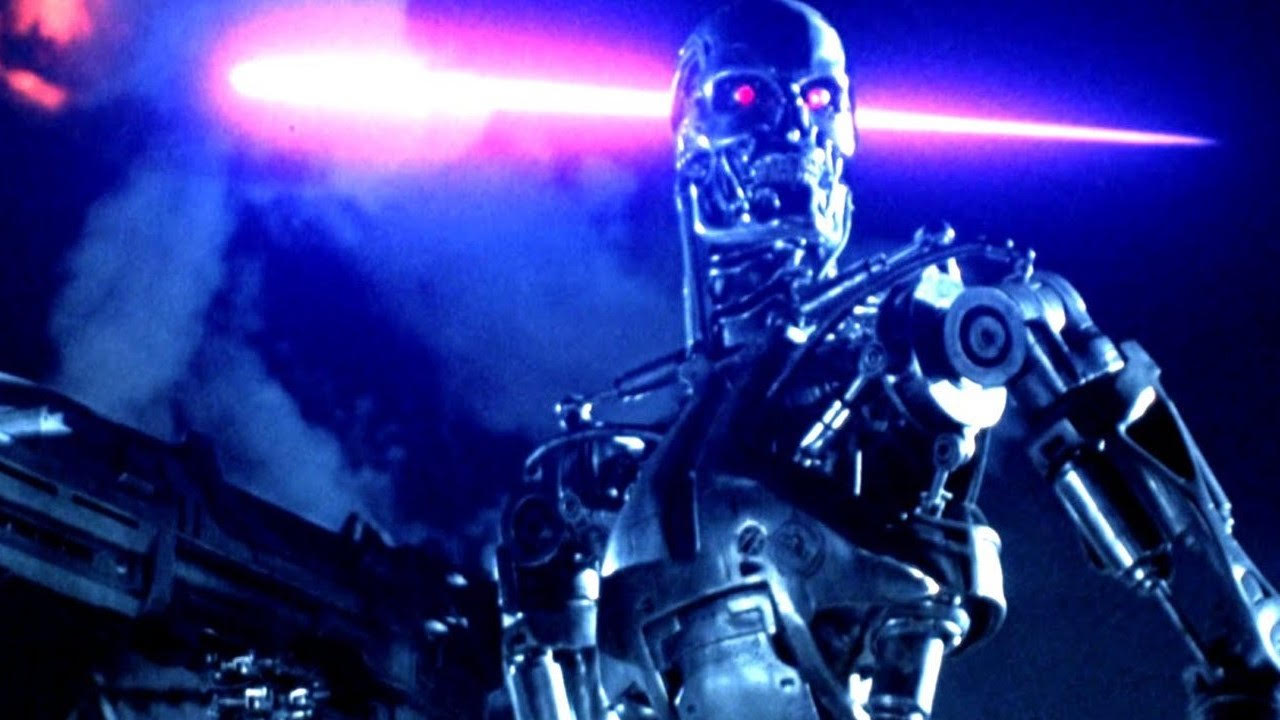
3. Terminator 2: Judgment Day (1991)
Taking what he learned from making The Terminator and the two movies that followed (Aliens and The Abyss), James Cameron gave audiences not just a sequel in July 1991, but a game-changer of a film that completely rewrote the summer blockbuster and the action genre as we know it. While The Terminator was a small-scale sci-fi thriller about a futuristic cyborg sent back in time to kill a waitress before she could give birth to humanity’s last hope against extinction, T2 was a massive epic with numerous iconic action sequences and CGI that still holds up decades later.
The movie also gave us one of the best on-screen heroes with Arnold Schwarnegger’s T-800, a reprogrammed Terminator sent back not to kill John Connor but to protect him from the more advanced and more lethal T-1000, a character that remains an all-time villain. It is hard to imagine a timeline where Terminator 2: Judgment Day doesn’t exist, but luckily that’s a reality we don’t have to experience.
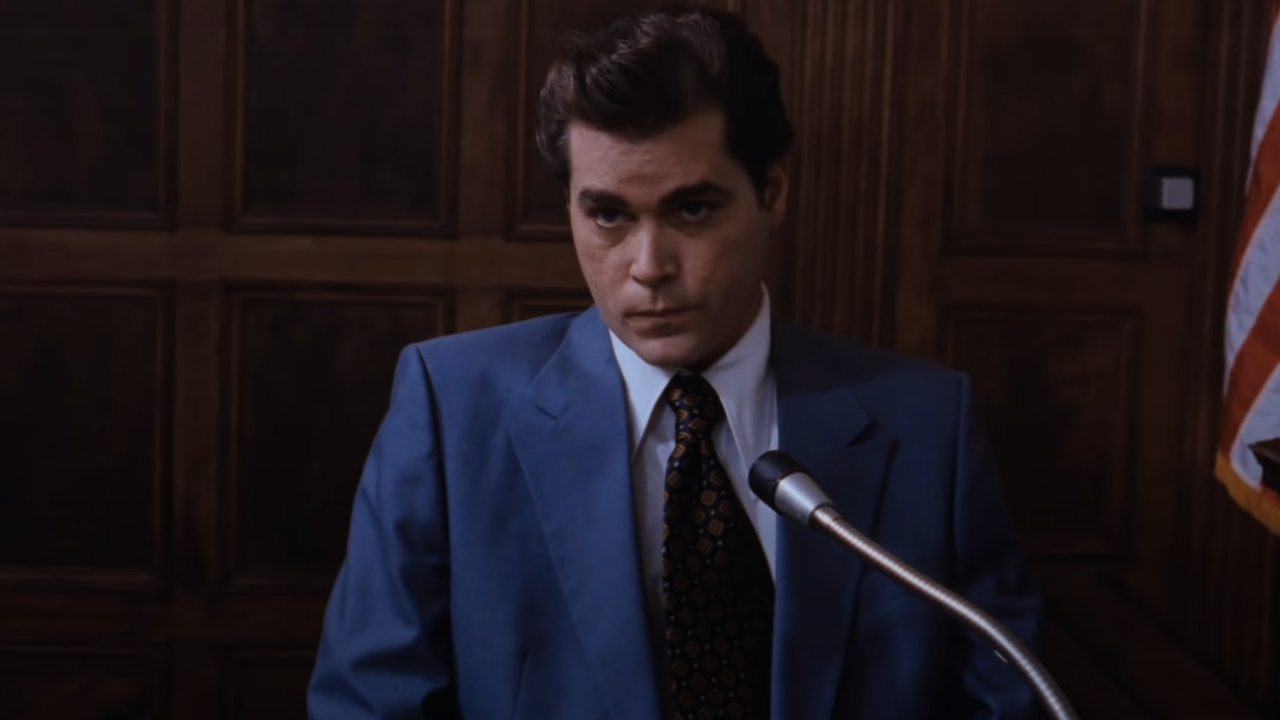
2. Goodfellas (1990)
Of everything that Goodfellas is in part — a mobster saga, a crime drama, an ensemble biopic, etc. — it can’t properly be boxed into such a limited description, though it’s certainly safer to use fewer words when the Gambino crime family’s around, lest Joe Pesci’s Tommy DeVito lose his temper. Based on reporter (and eventual co-screenwriter) Nicholas Pileggi’s 1985 Wiseguy: Life in a Mafia Family, the film rides on the back of Ray Liotta’s Henry Hill, whose idea of the American Dream is to be living it up as a made man, but realizes over and over again how hard such a goal is to attain when everyone else around is just as hungry and ruthless.
In many ways, it’s a perfect counterbalance to The Godfather saga, sharing similarities such as memorable food scenes and a stacked cast (with some mutual actors like Robert De Niro and Frank Sivero). But unlike Francis Ford Coppola’s masterpieces, Goodfellas was far less successful at the Oscars, with only Pesci taking home the gold, despite plenty of accolades earned elsewhere. Like much of Scorsese’s work, it’s only become more appreciated with time, and easily stands out as one of the best movies not just of the ‘90s, but of any era.
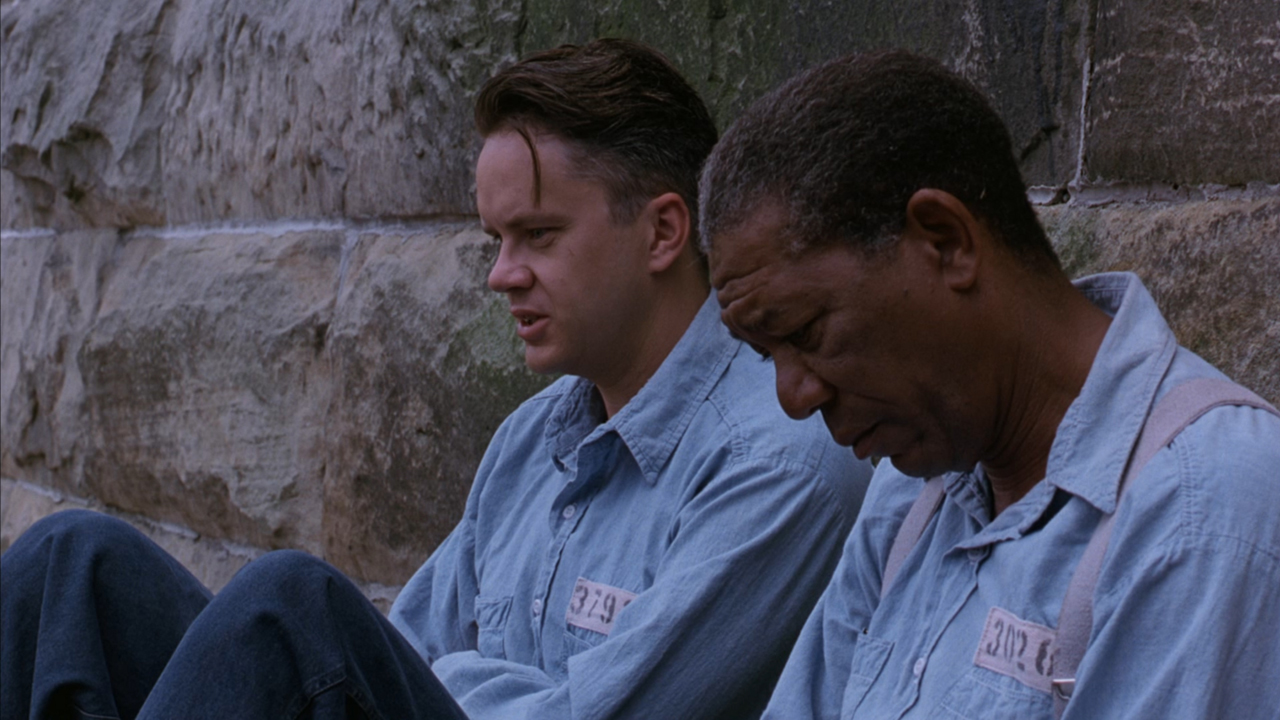
1. The Shawshank Redemption (1994)
“Get busy living, or get busy dying” may be the better remembered quote from Frank Darabont’s The Shawshank Redemption, but it’s the line that Red (Morgan Freeman) says in the final moments of the film that sums up the heart and soul of this story. Not only is The Shawshank Redemption our #1 pick for the best ‘90s movies, but it’s also easily one of the best adaptations of a Stephen King story – in this case, the novella, Rita Hayworth and the Shawshank Redemption.
The movie follows Andy Dufresne (Tim Robbins), a banker who’s wrongfully convicted of murdering his wife and her lover, and sent to prison. For a movie that doesn’t shy away from the brutality this character experiences throughout his years behind bars – both at the hands of some of his fellow inmates, and the warden and guards – The Shawshank Redemption never loses sight of that ultimate message of hope – the thing that Andy clings to every step of the way. It’s there in the friendships he makes, and in the moments of happiness Andy manages to find. And it’s there in the final words Red says in the closing narration: “I hope.”

Nick is a Cajun Country native and an Assistant Managing Editor with a focus on TV and features. His humble origin story with CinemaBlend began all the way back in the pre-streaming era, circa 2009, as a freelancing DVD reviewer and TV recapper. Nick leapfrogged over to the small screen to cover more and more television news and interviews, eventually taking over the section for the current era and covering topics like Yellowstone, The Walking Dead and horror. Born in Louisiana and currently living in Texas — Who Dat Nation over America’s Team all day, all night — Nick spent several years in the hospitality industry, and also worked as a 911 operator. If you ever happened to hear his music or read his comics/short stories, you have his sympathy.
- Kelly WestAssistant Managing Editor
- Cody BeckDirector of Product
- Mack RawdenEditor In Chief
- Mike ReyesSenior Movies Contributor
- Erik SwannSenior Content Producer
- Heidi VenableContent Producer
- Mick JoestContent Producer
- Eric EisenbergAssistant Managing Editor
- Riley UtleyWeekend Editor
- Dirk LibbeyContent Producer/Theme Park Beat
You must confirm your public display name before commenting
Please logout and then login again, you will then be prompted to enter your display name.
